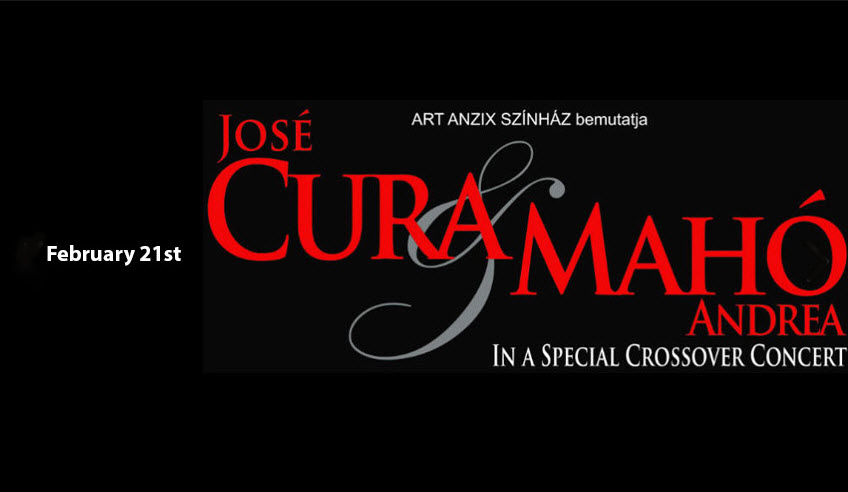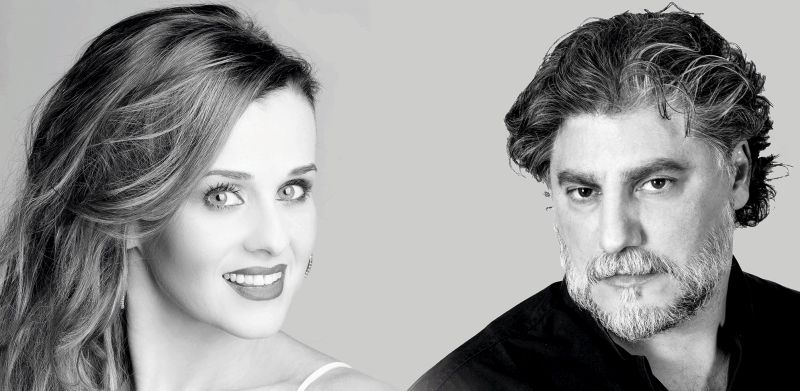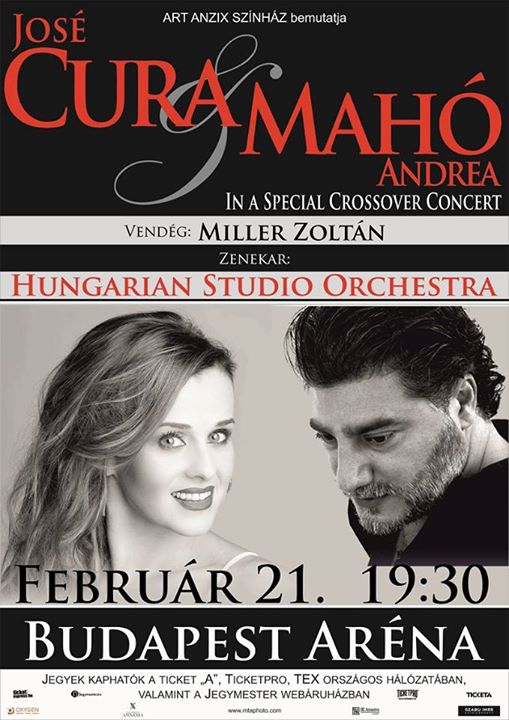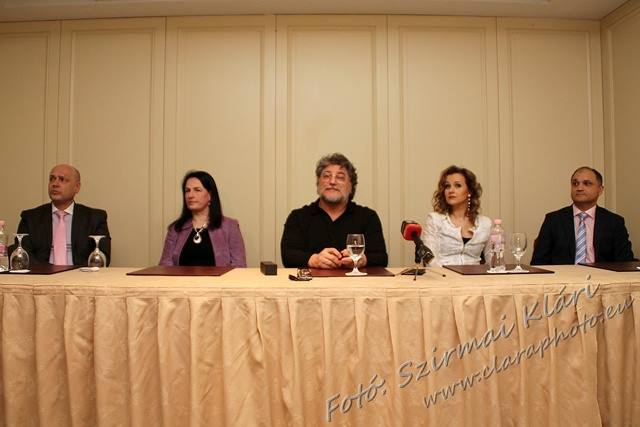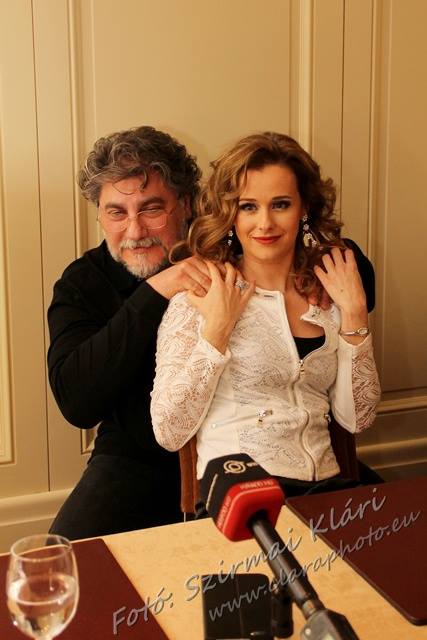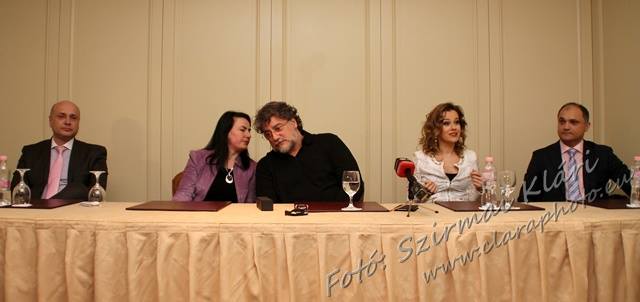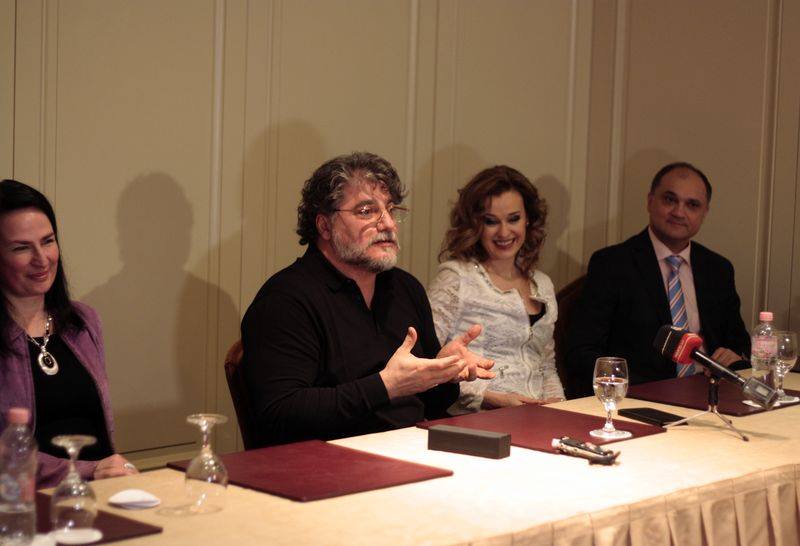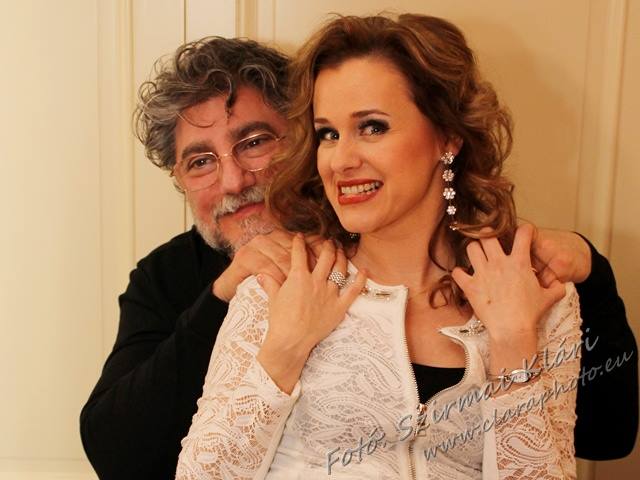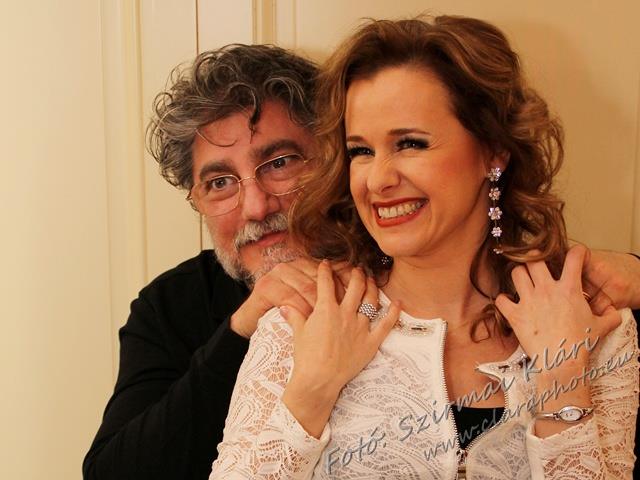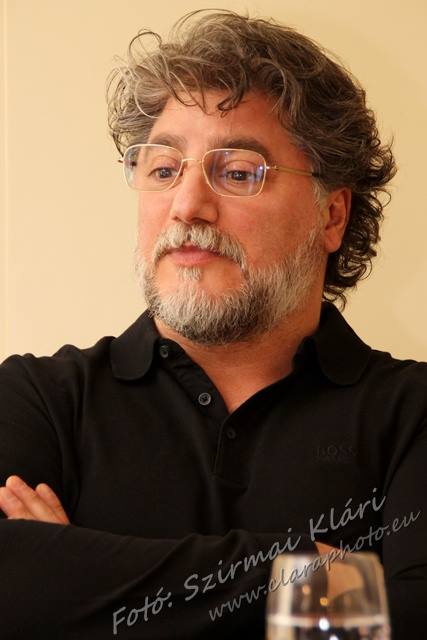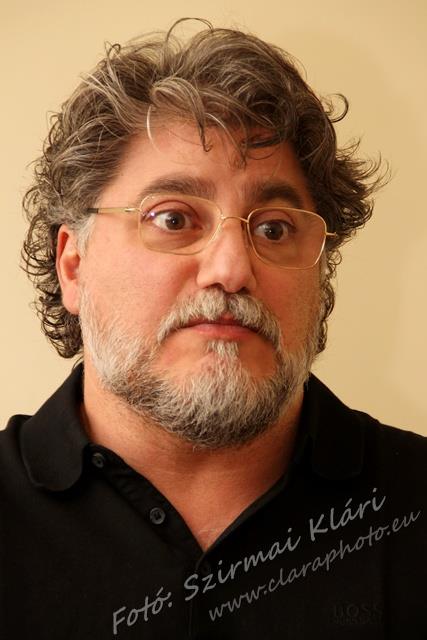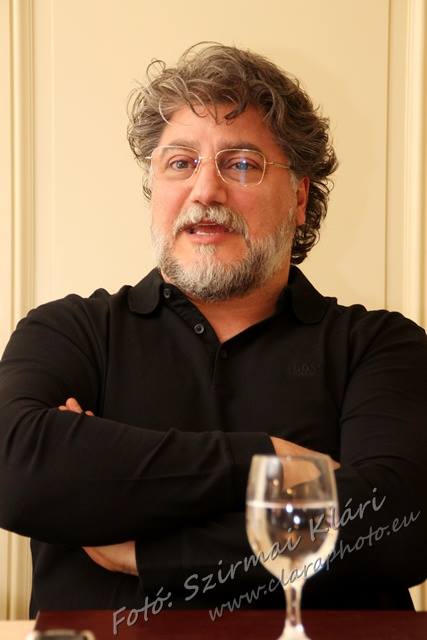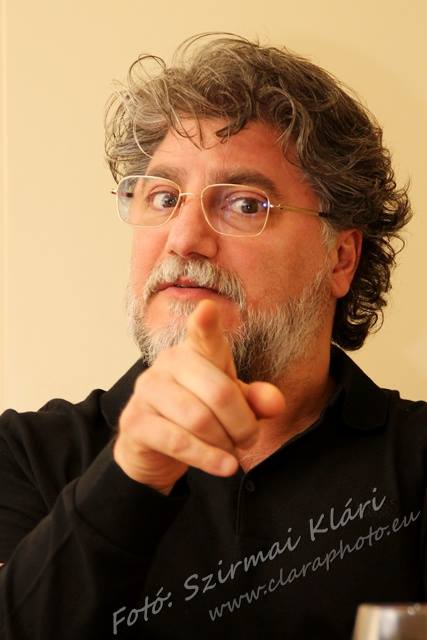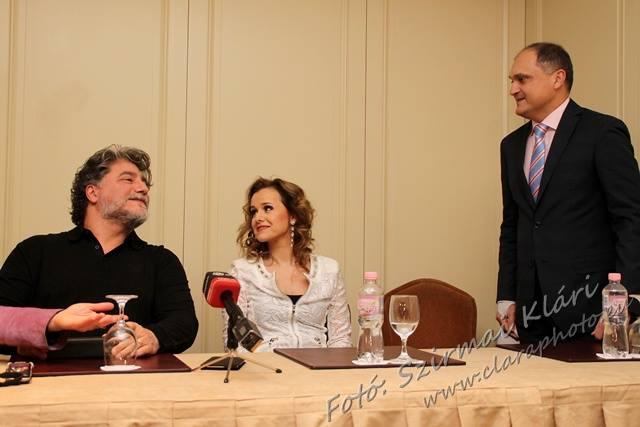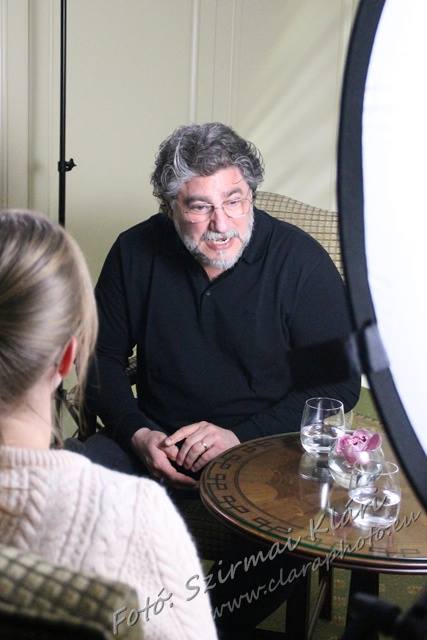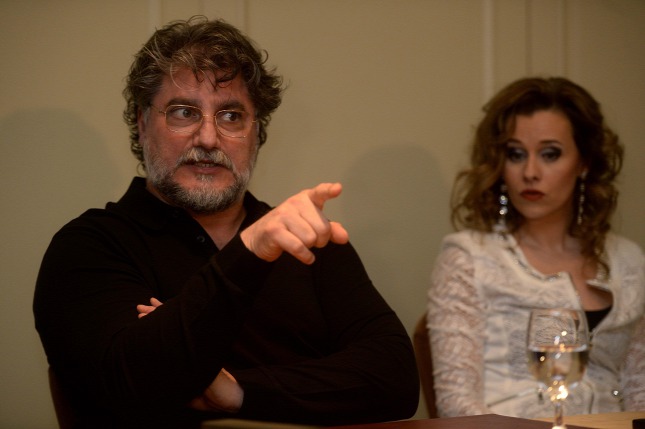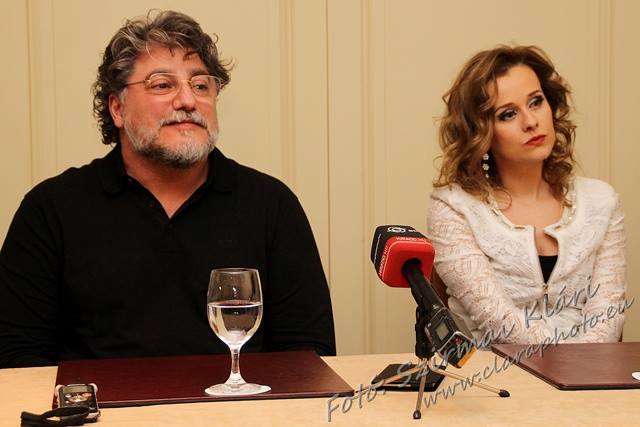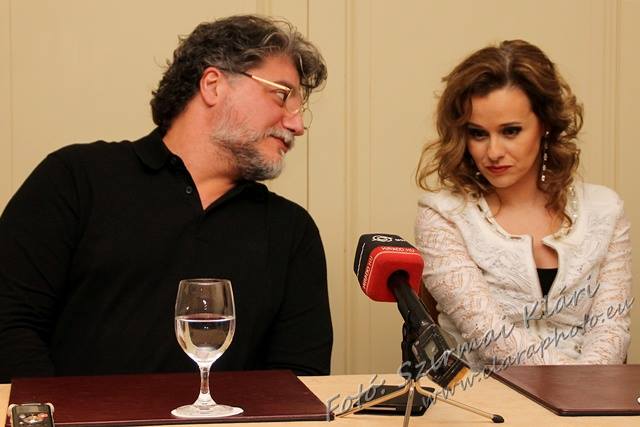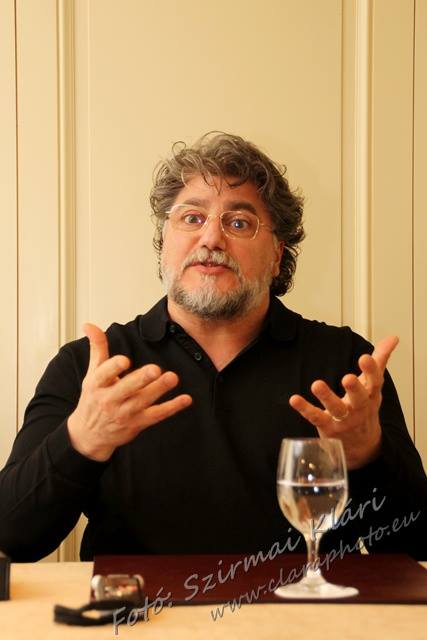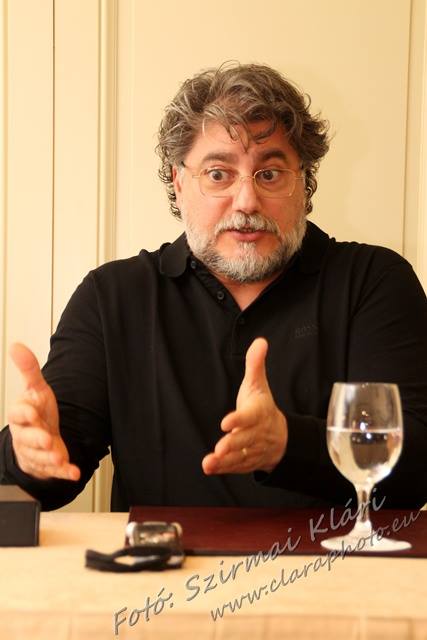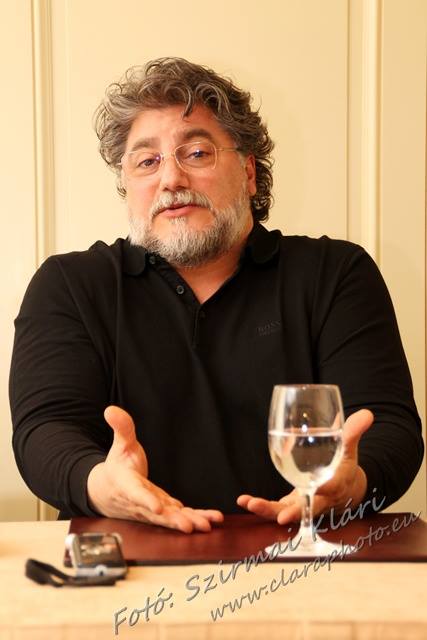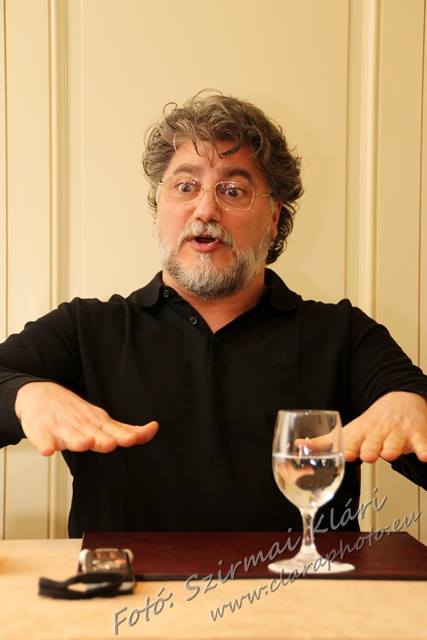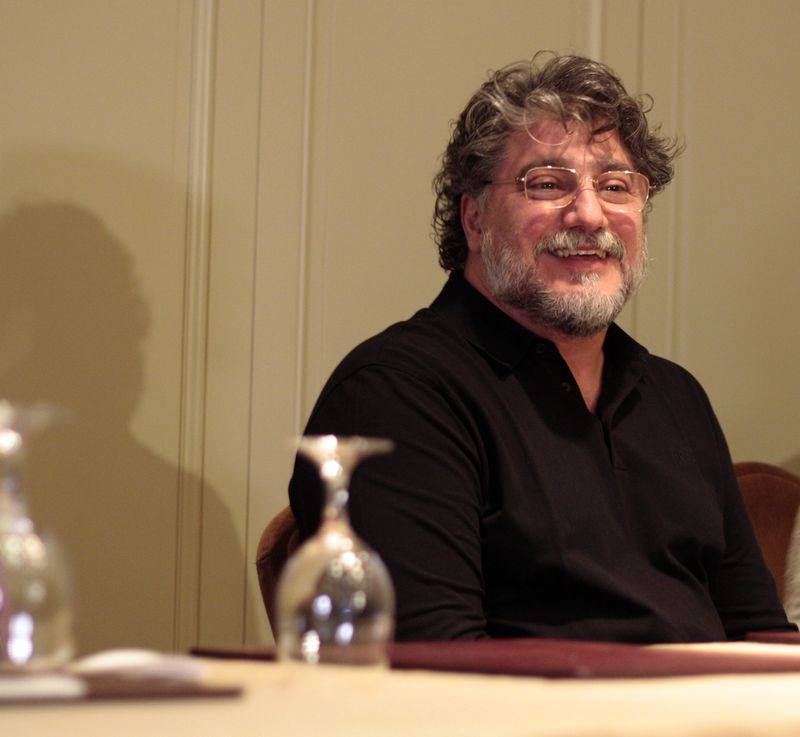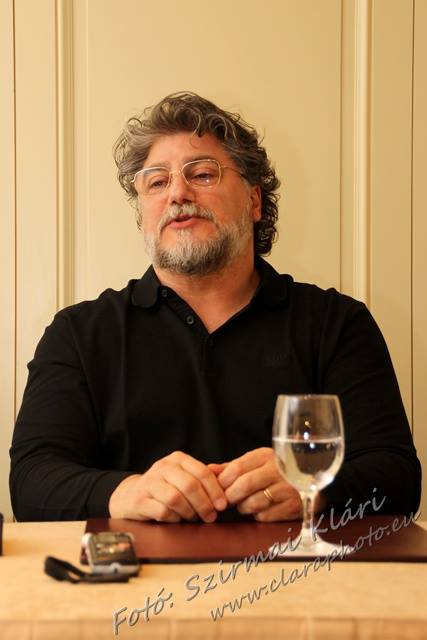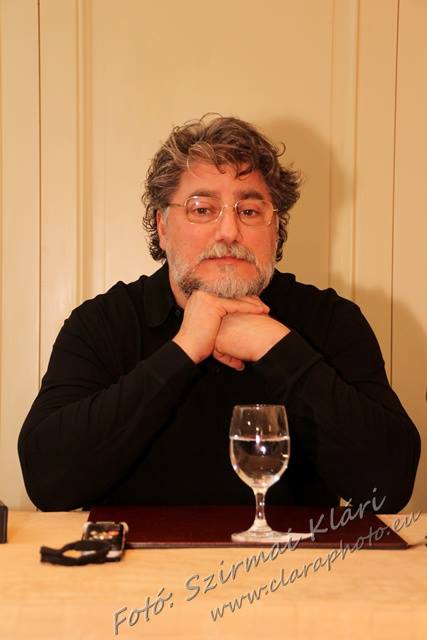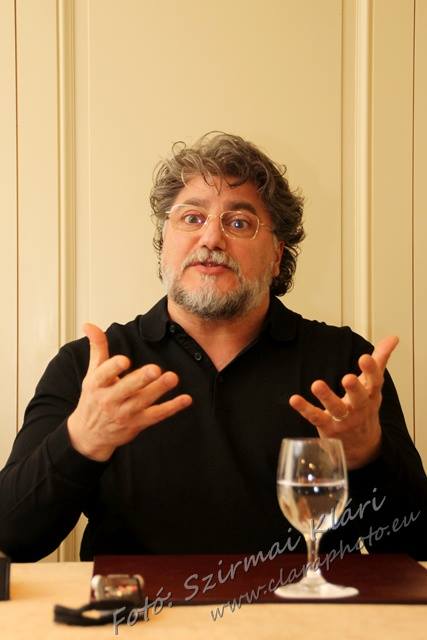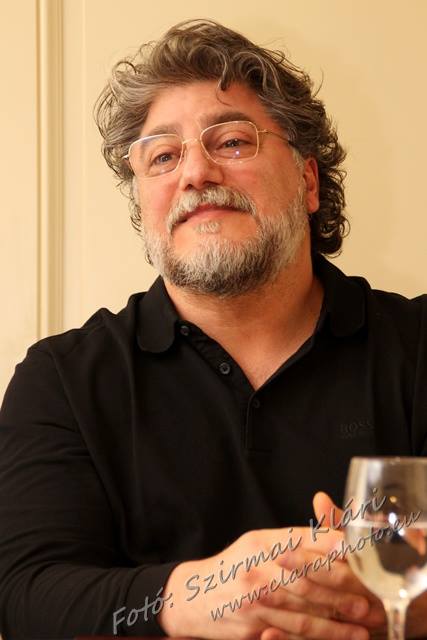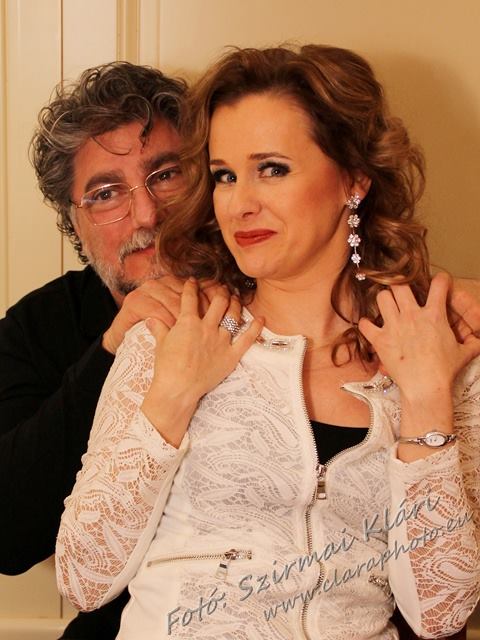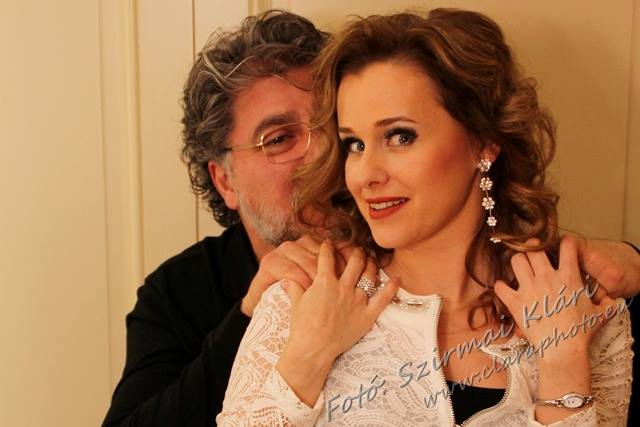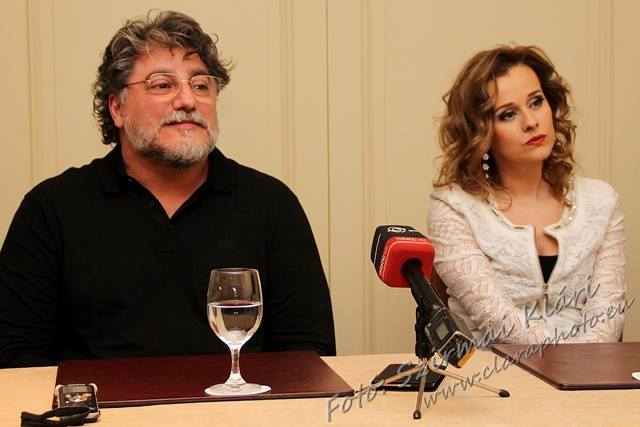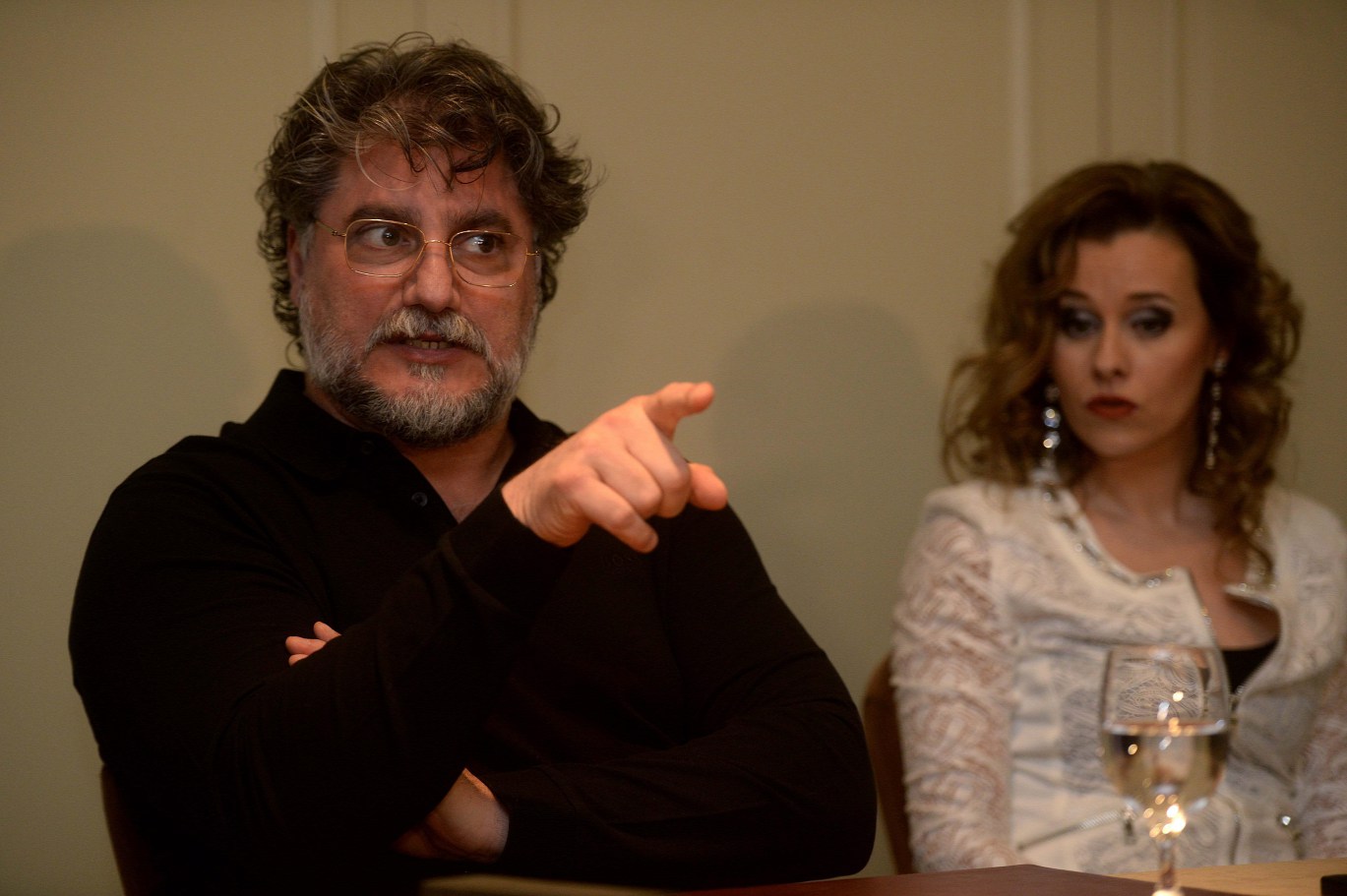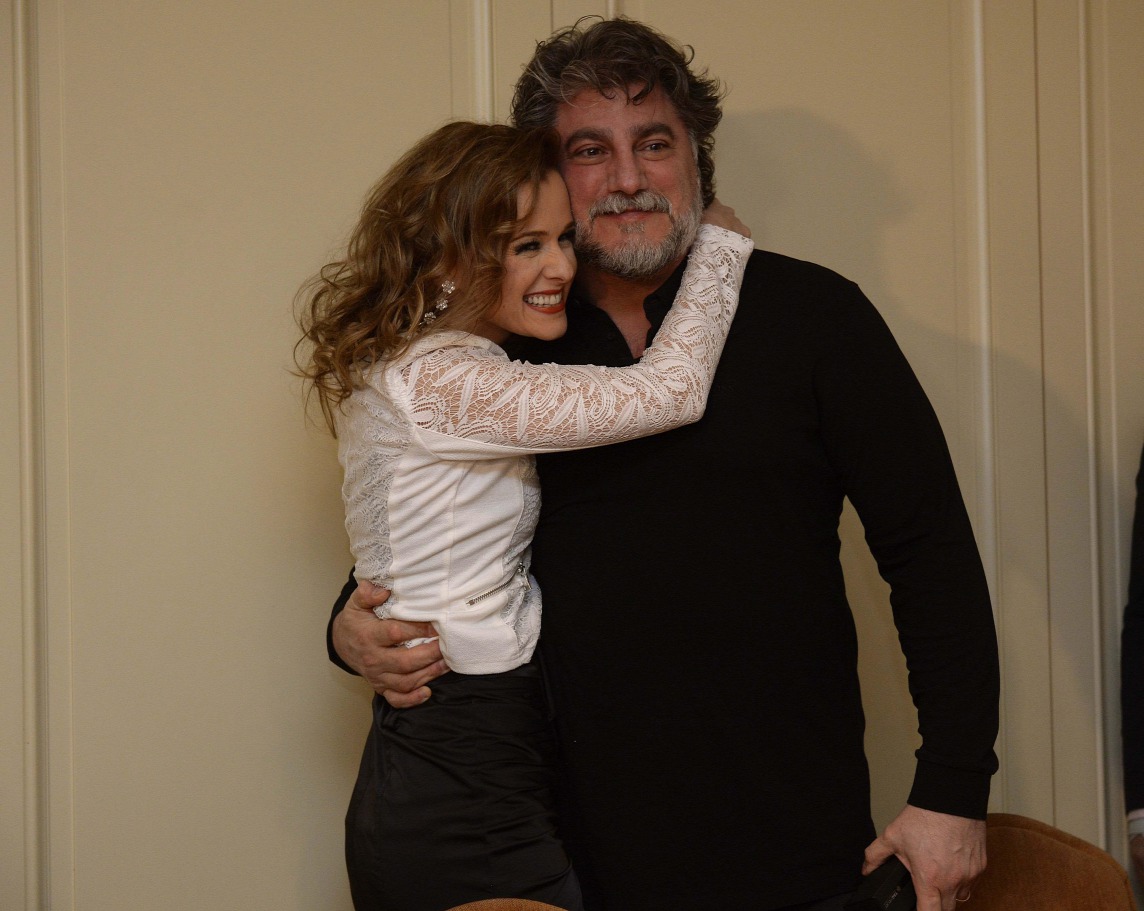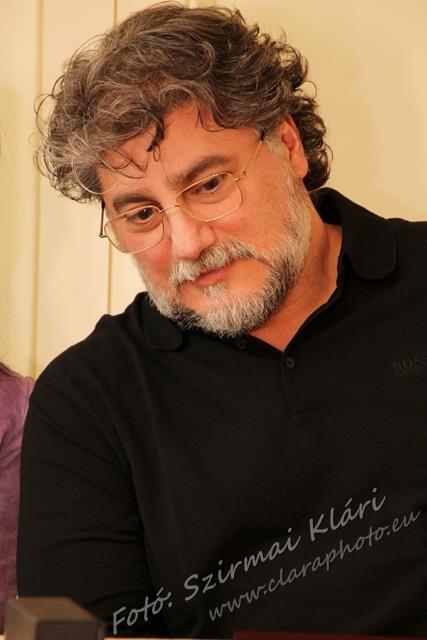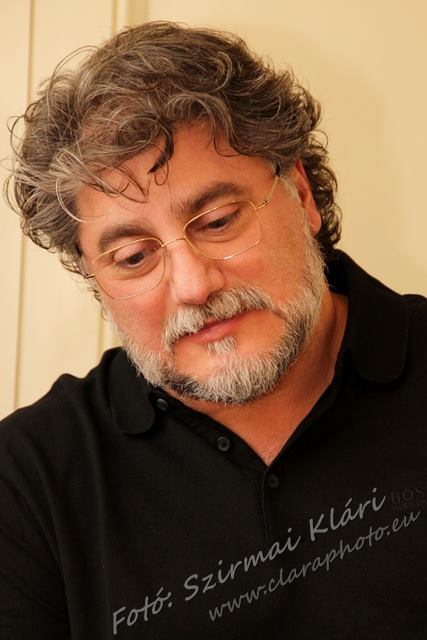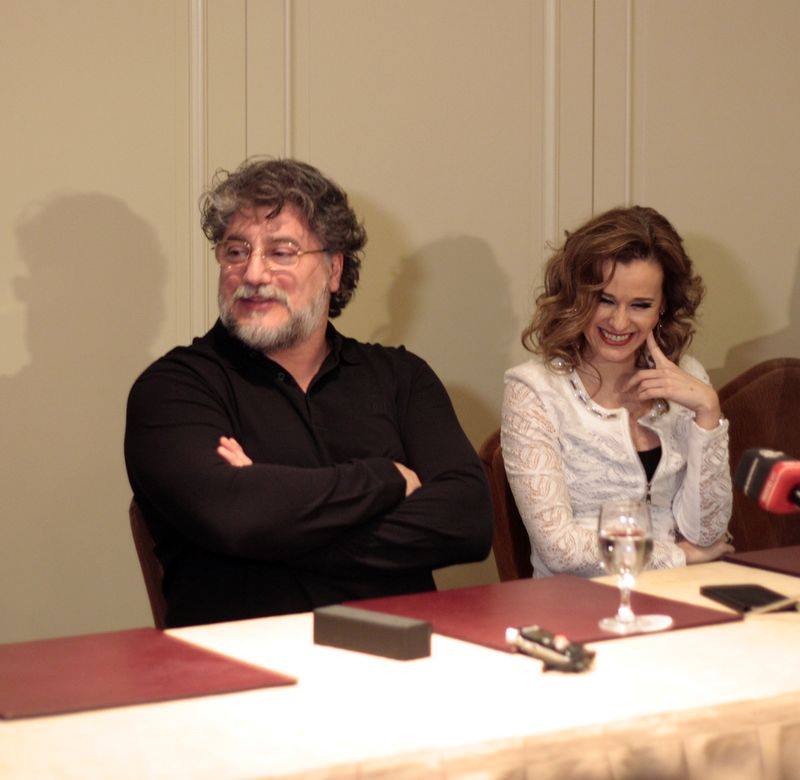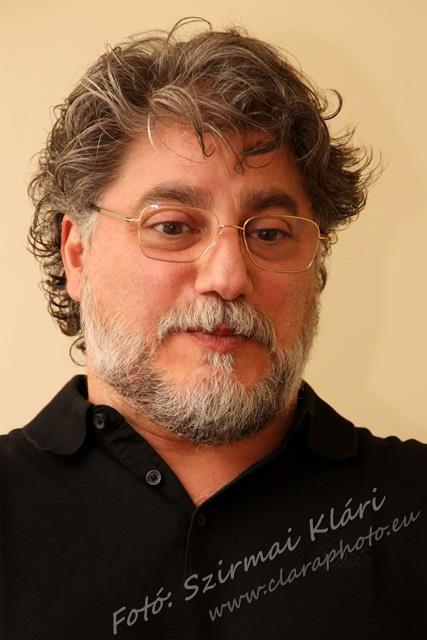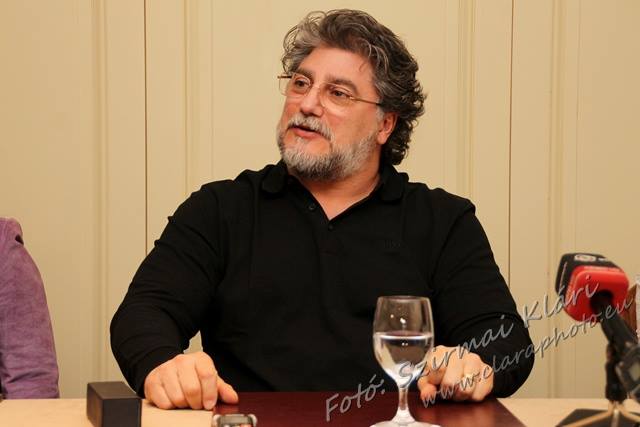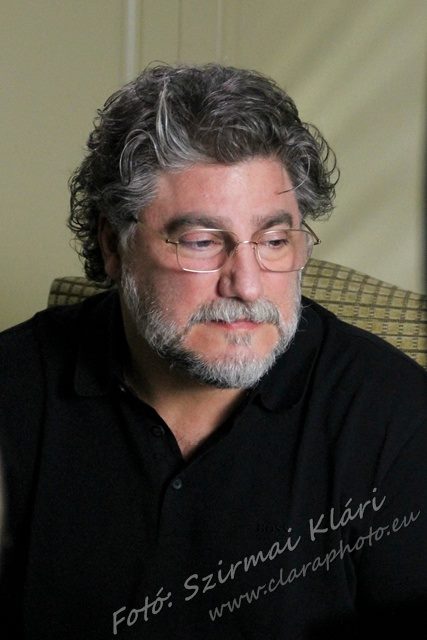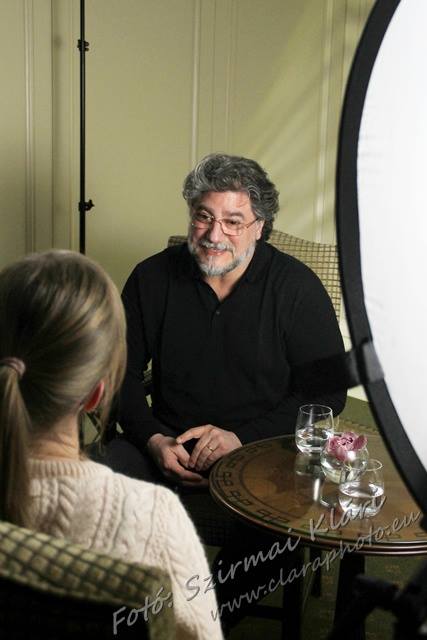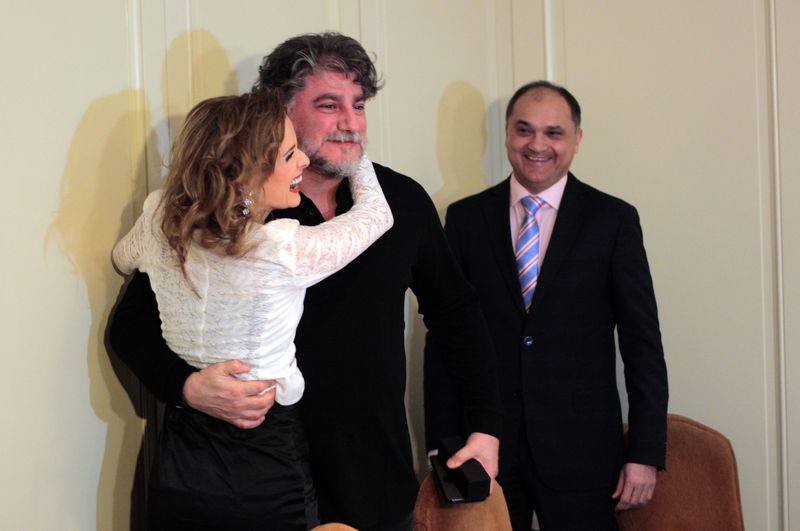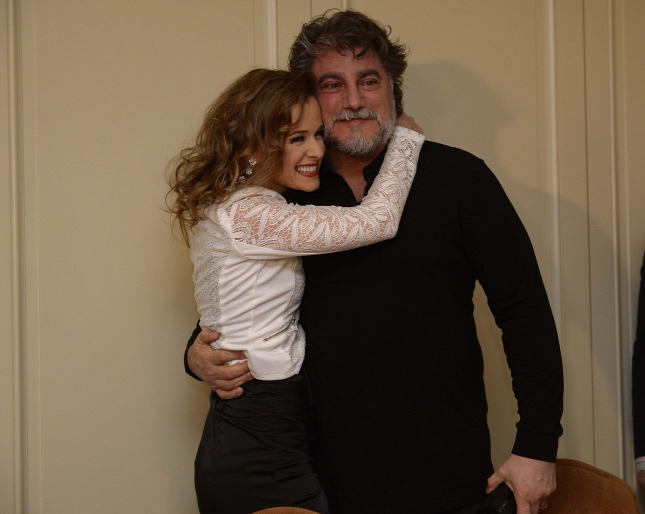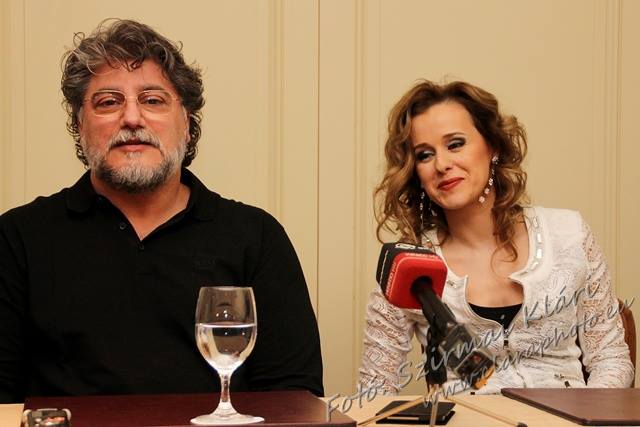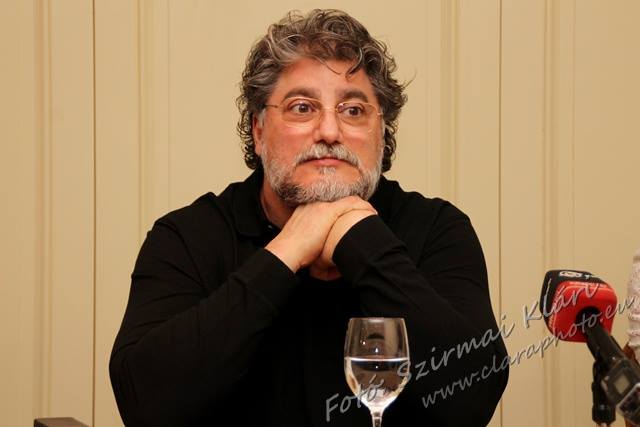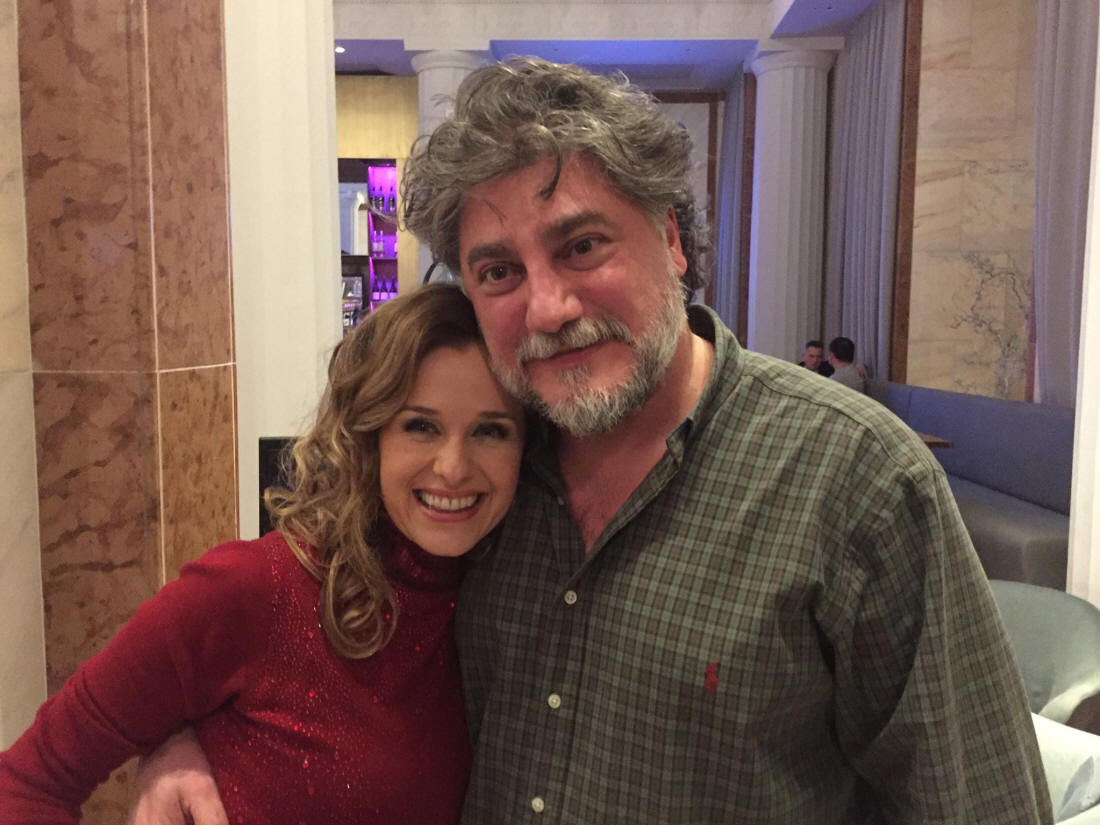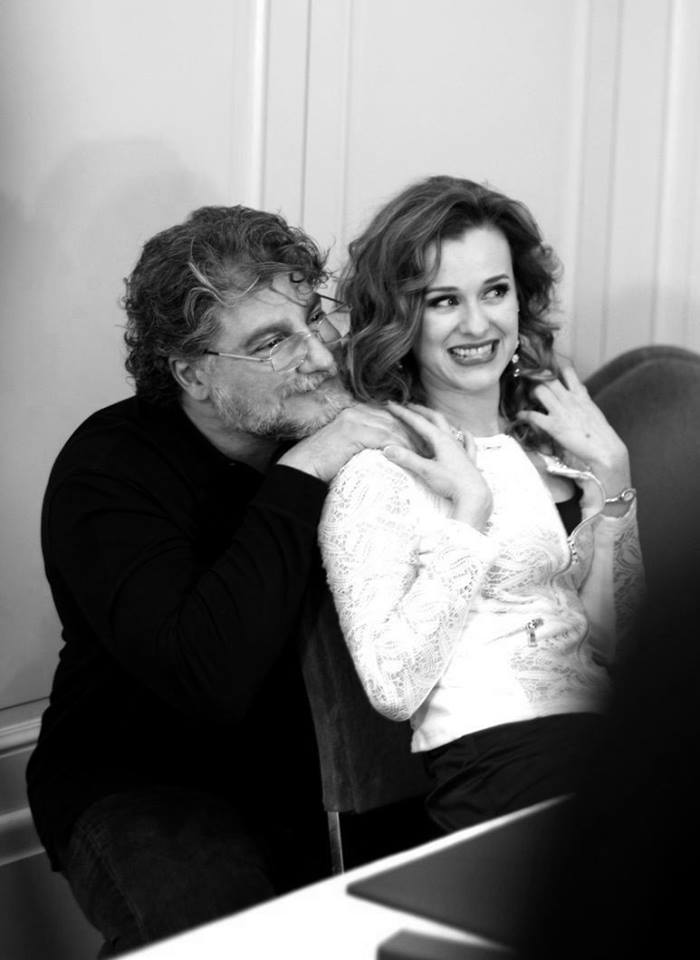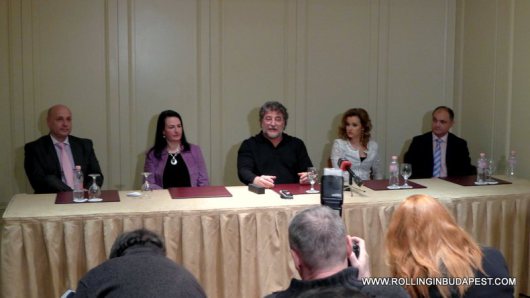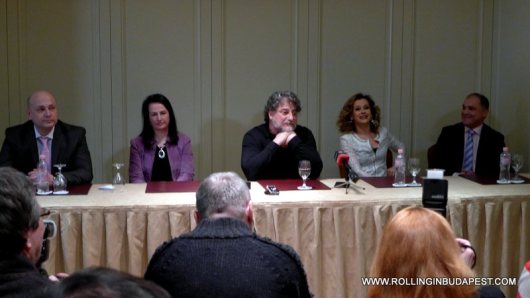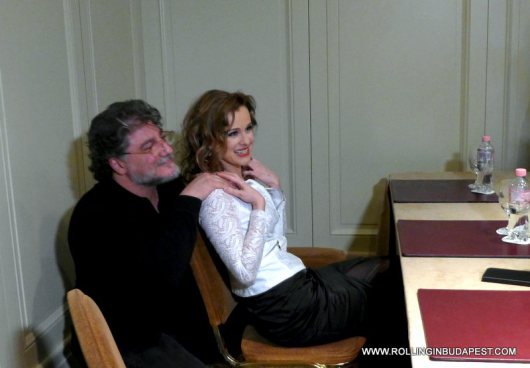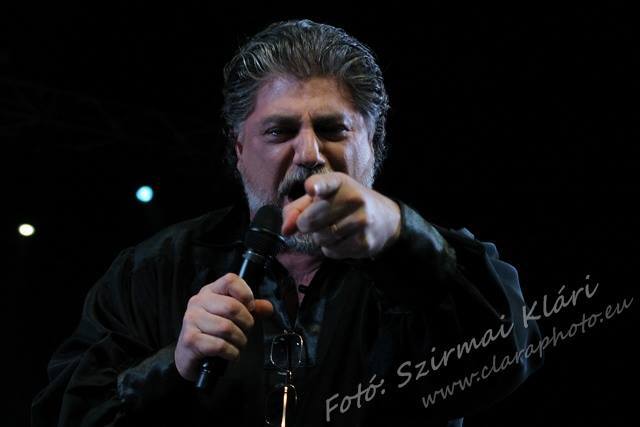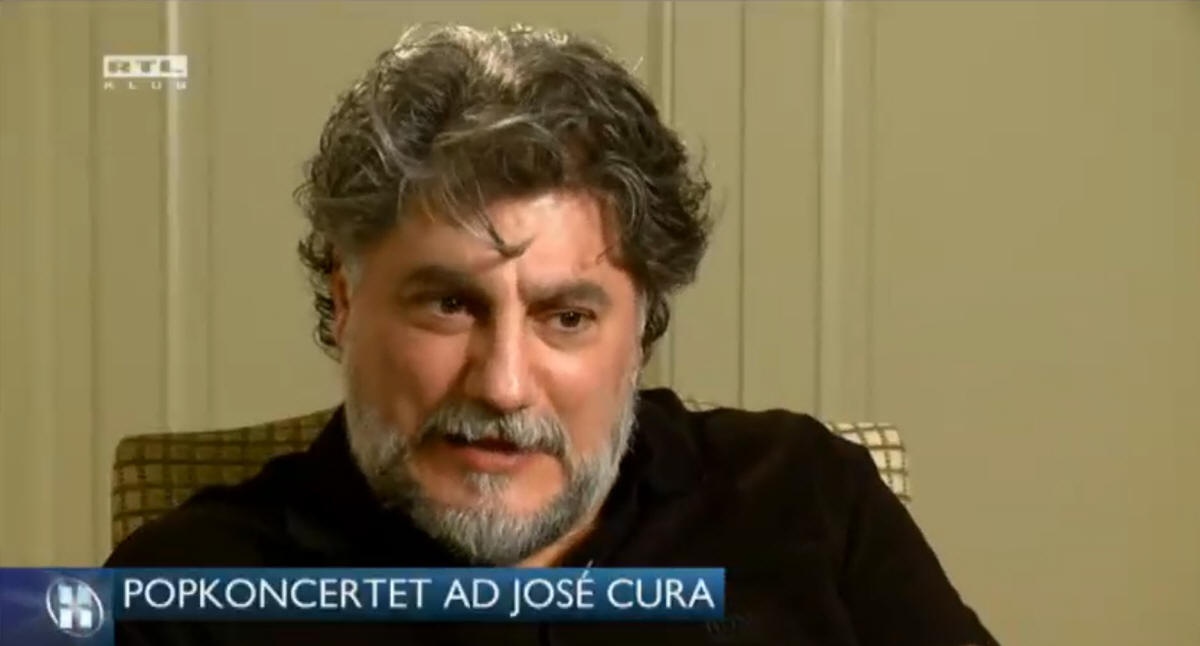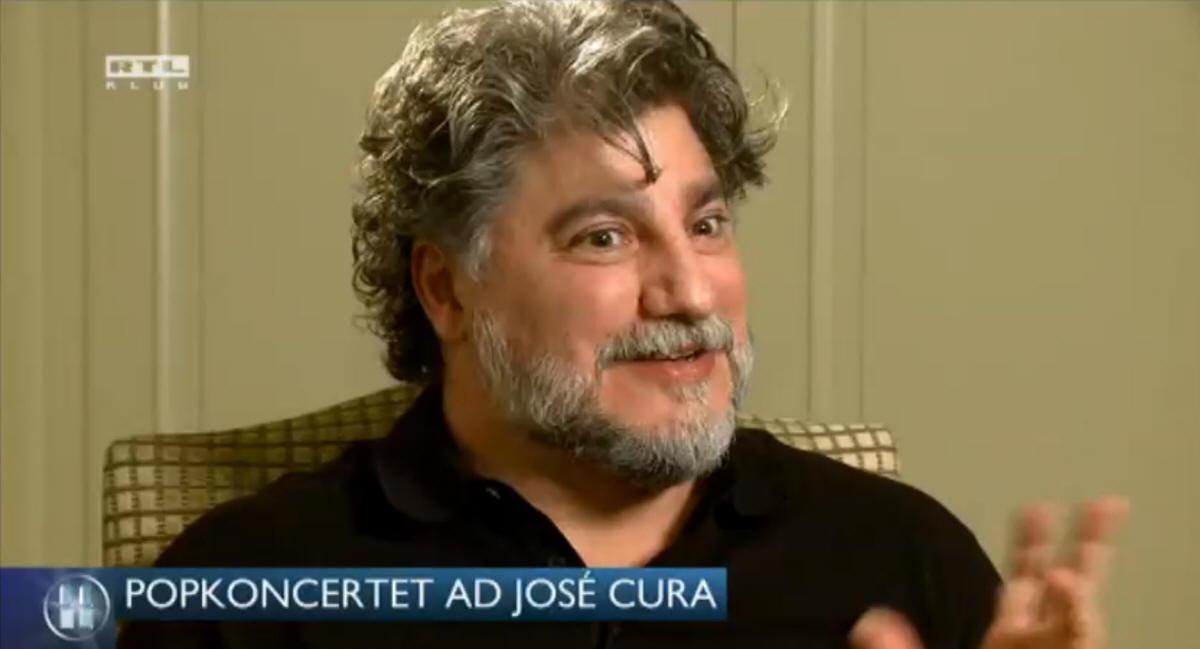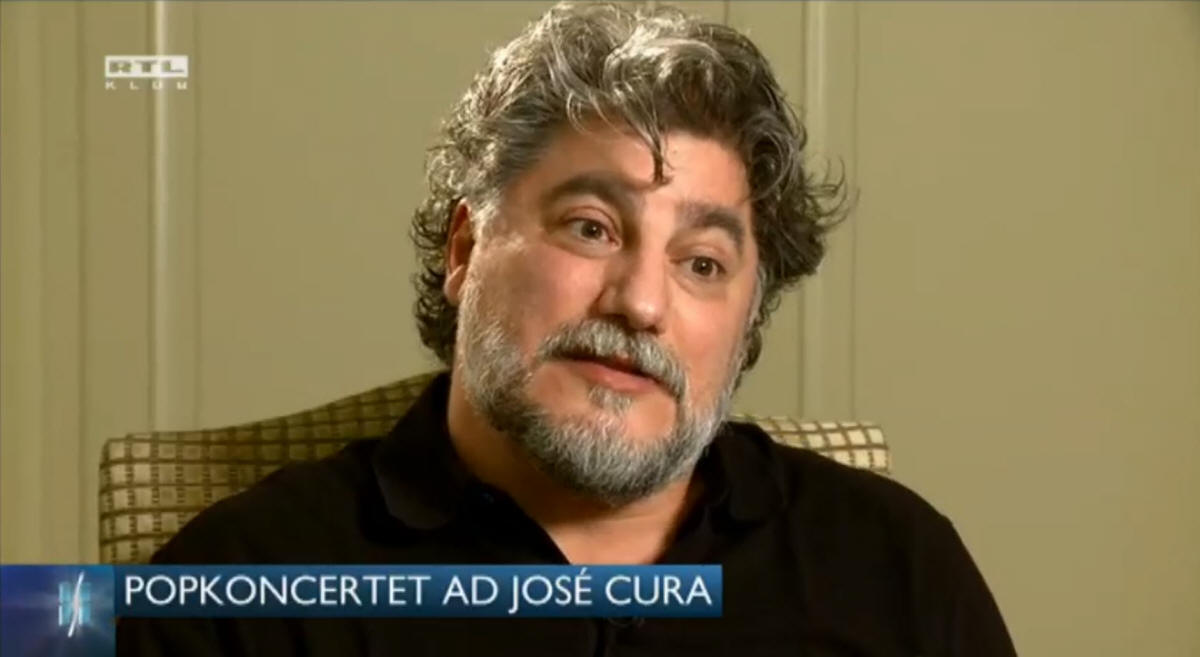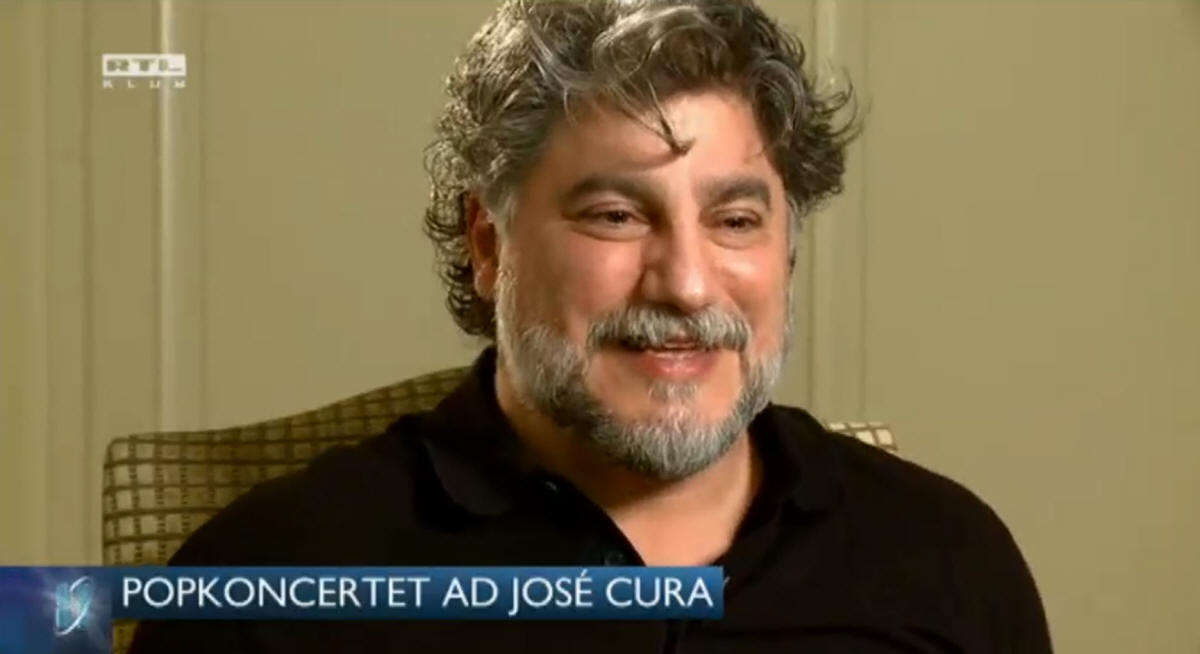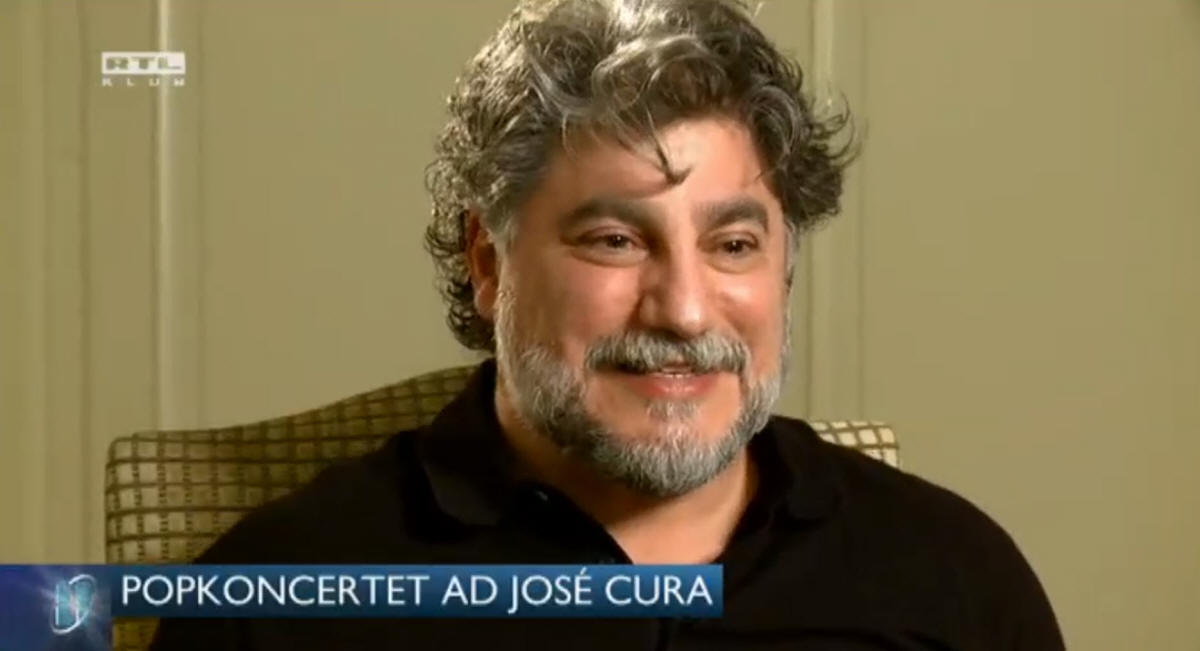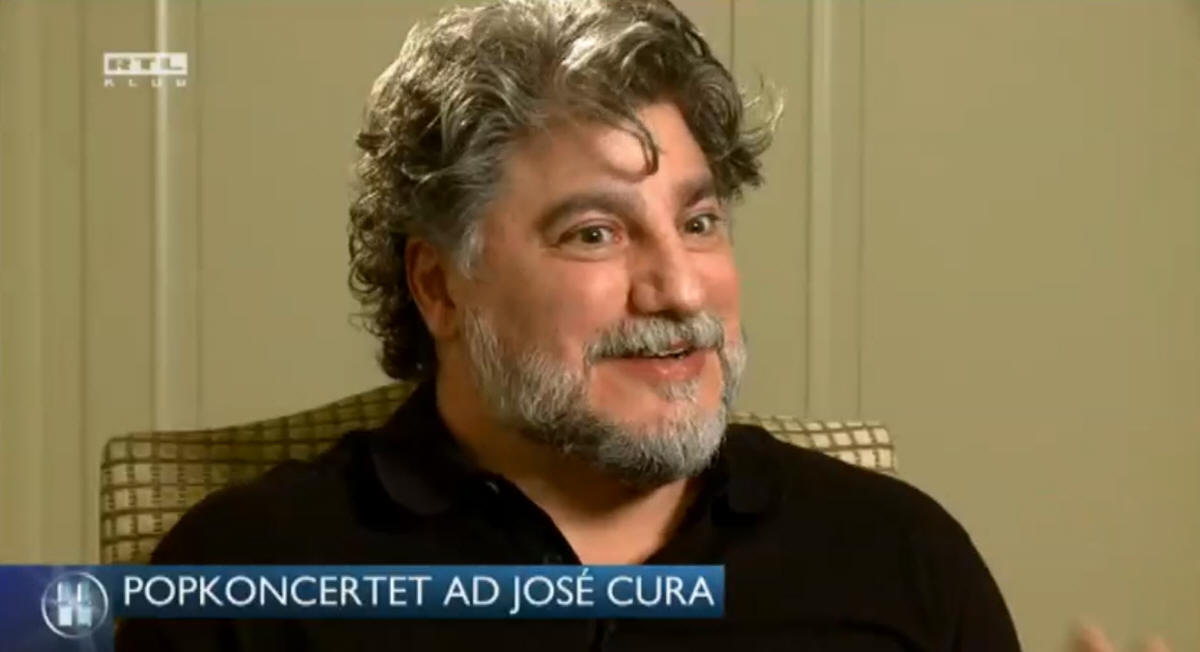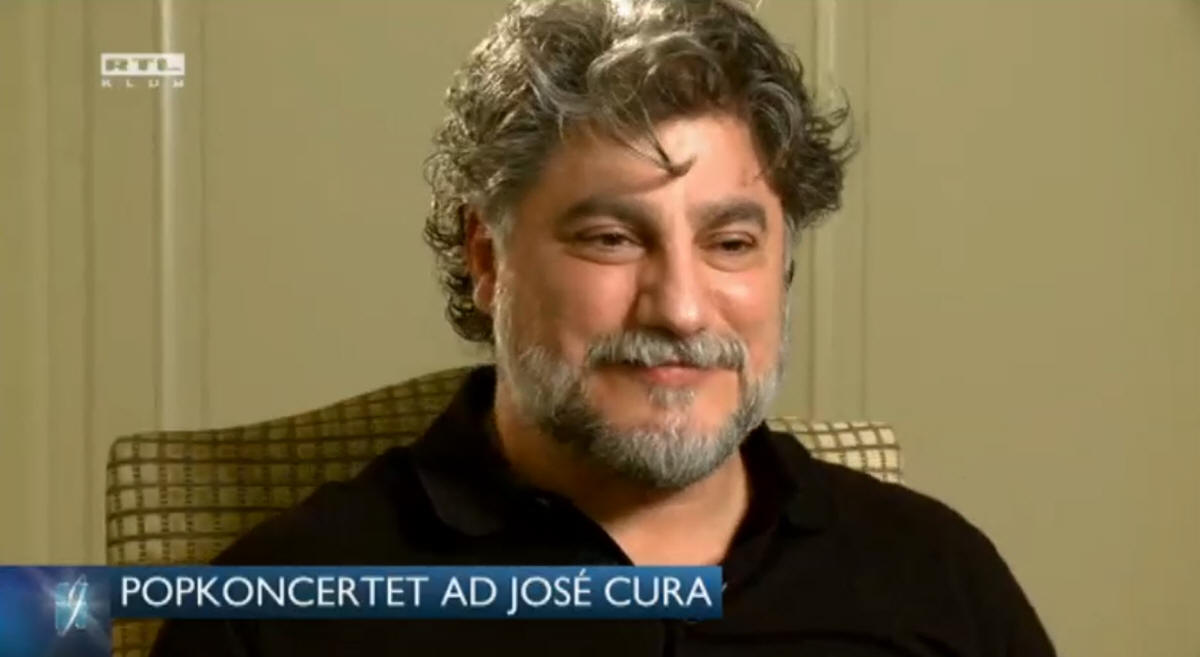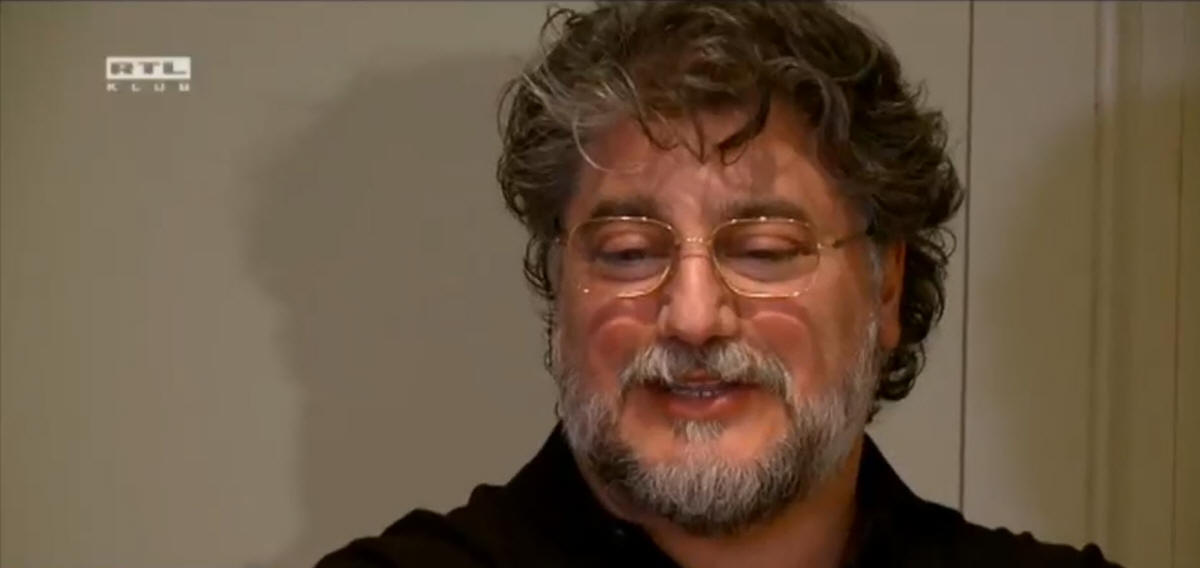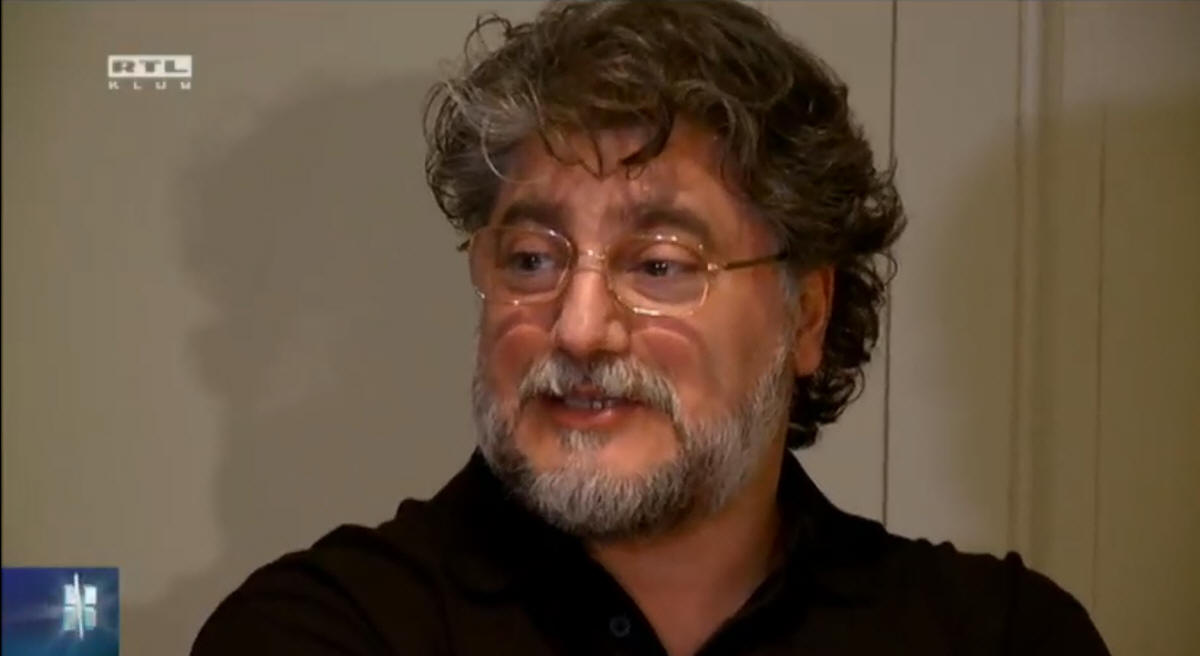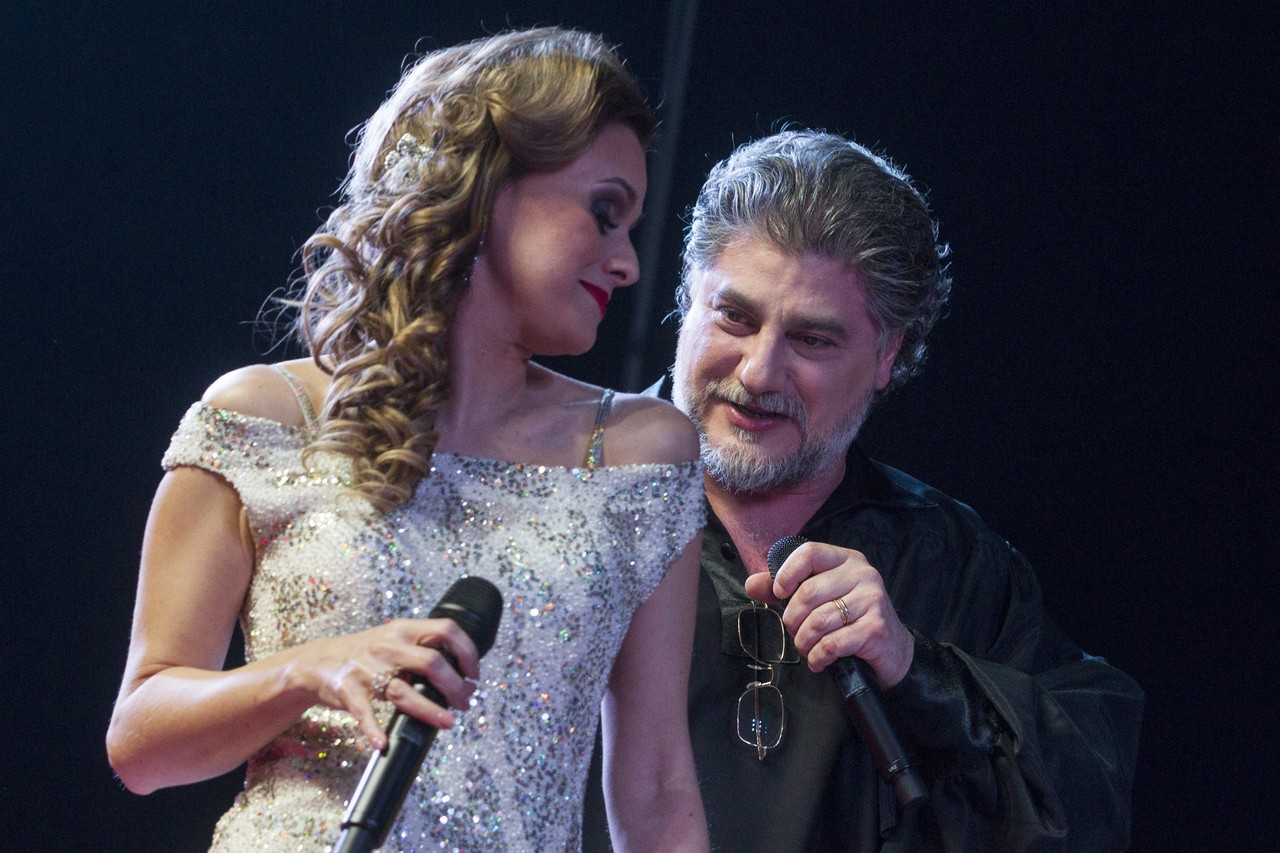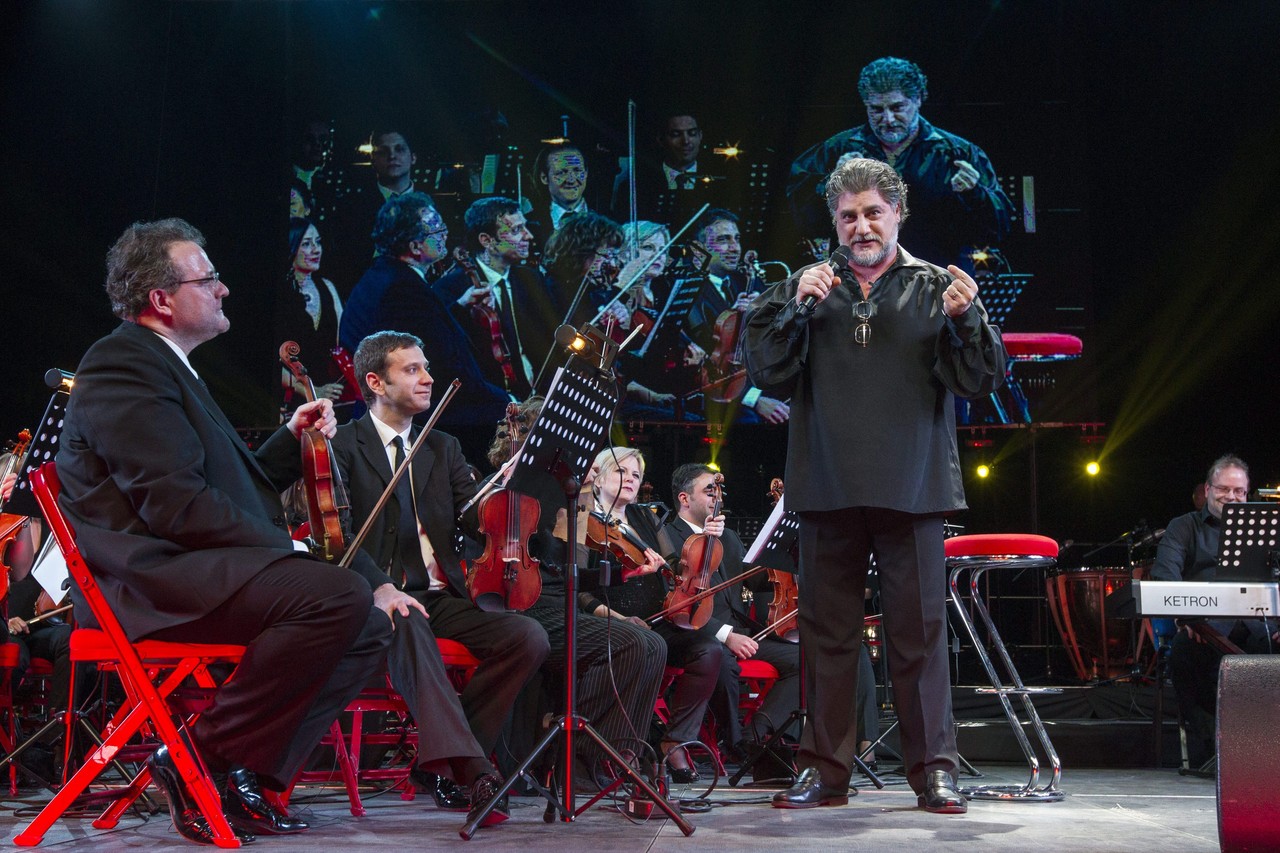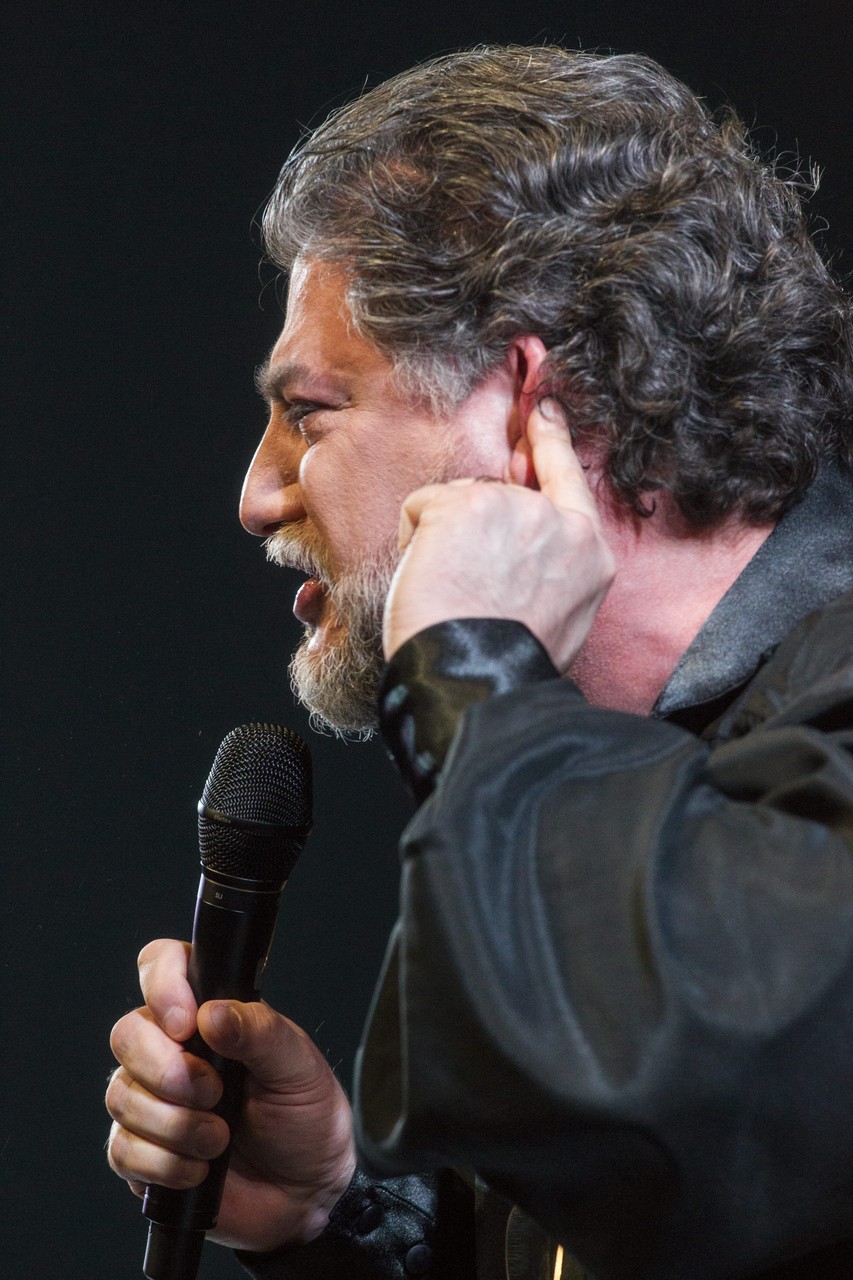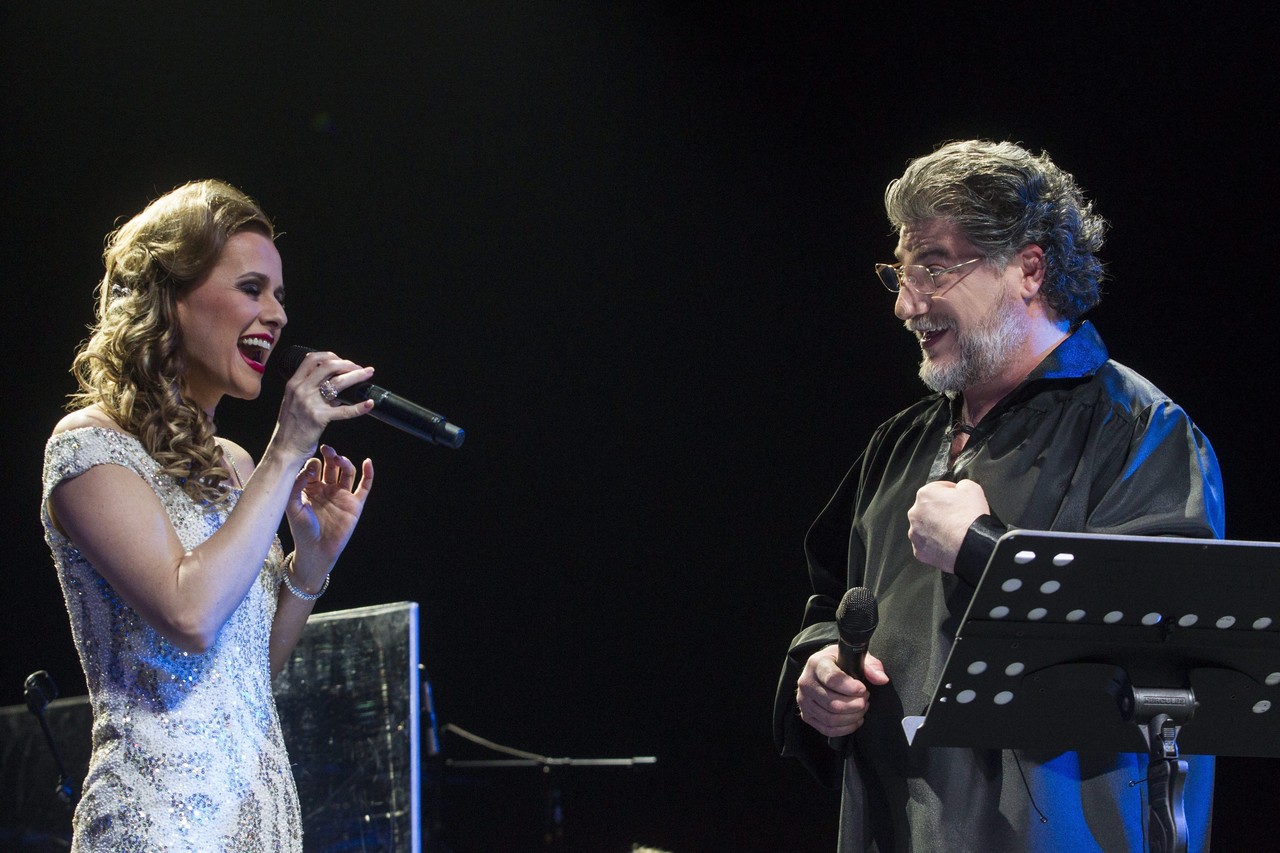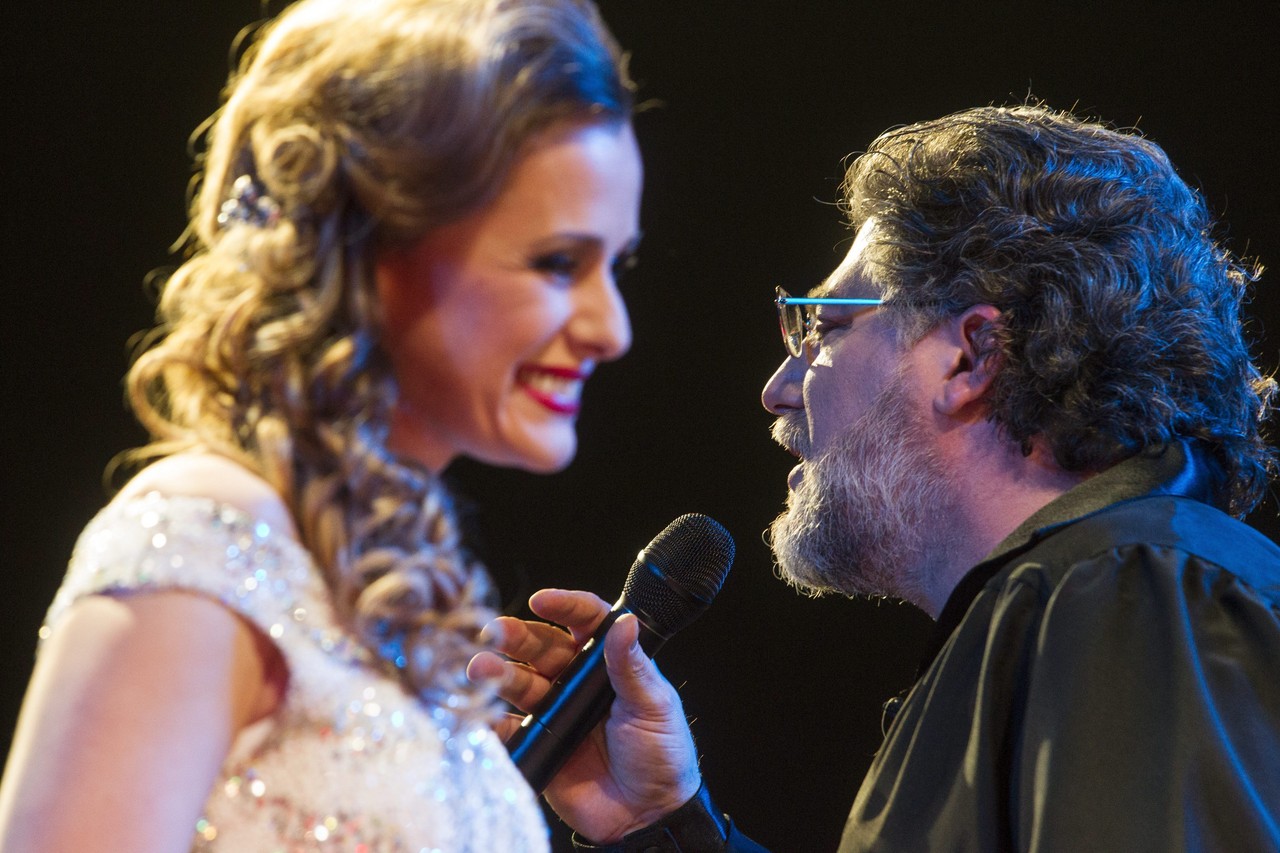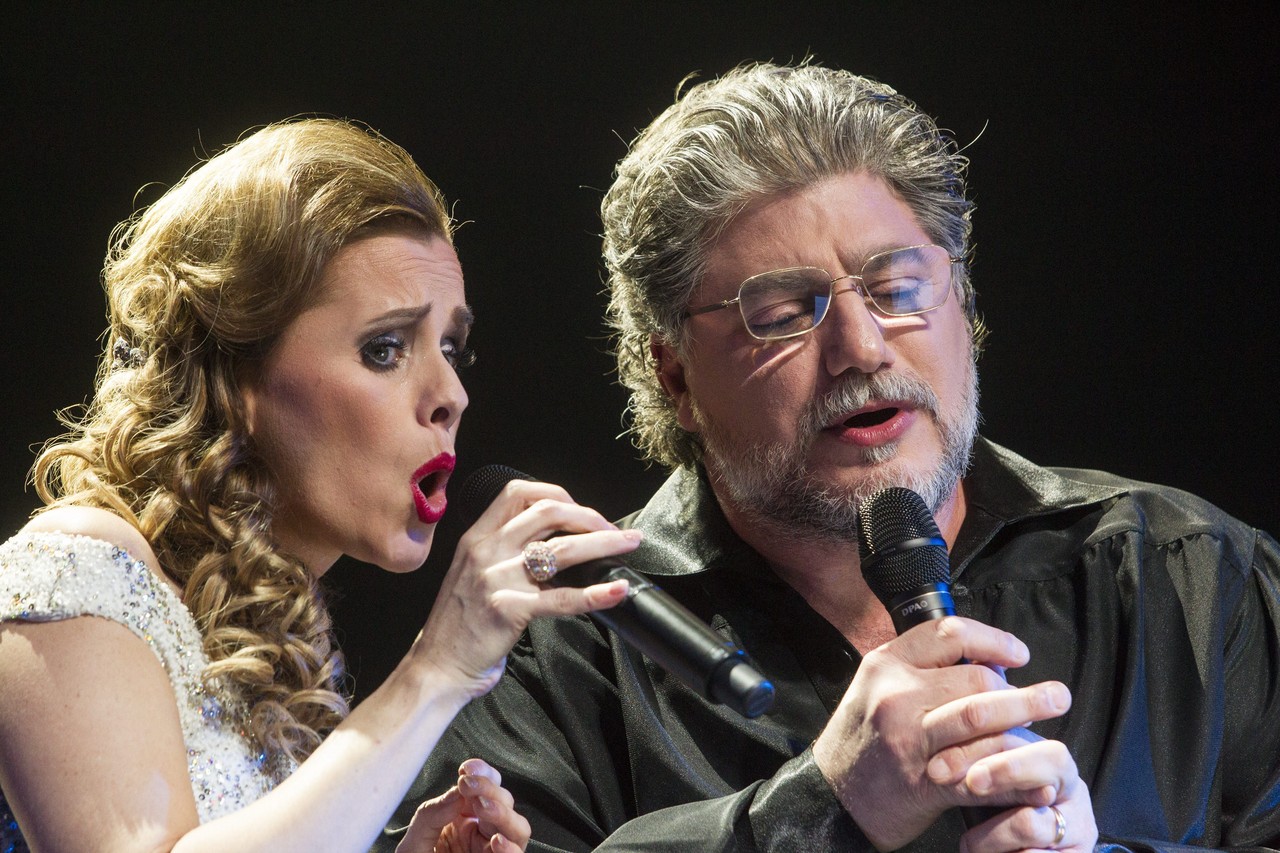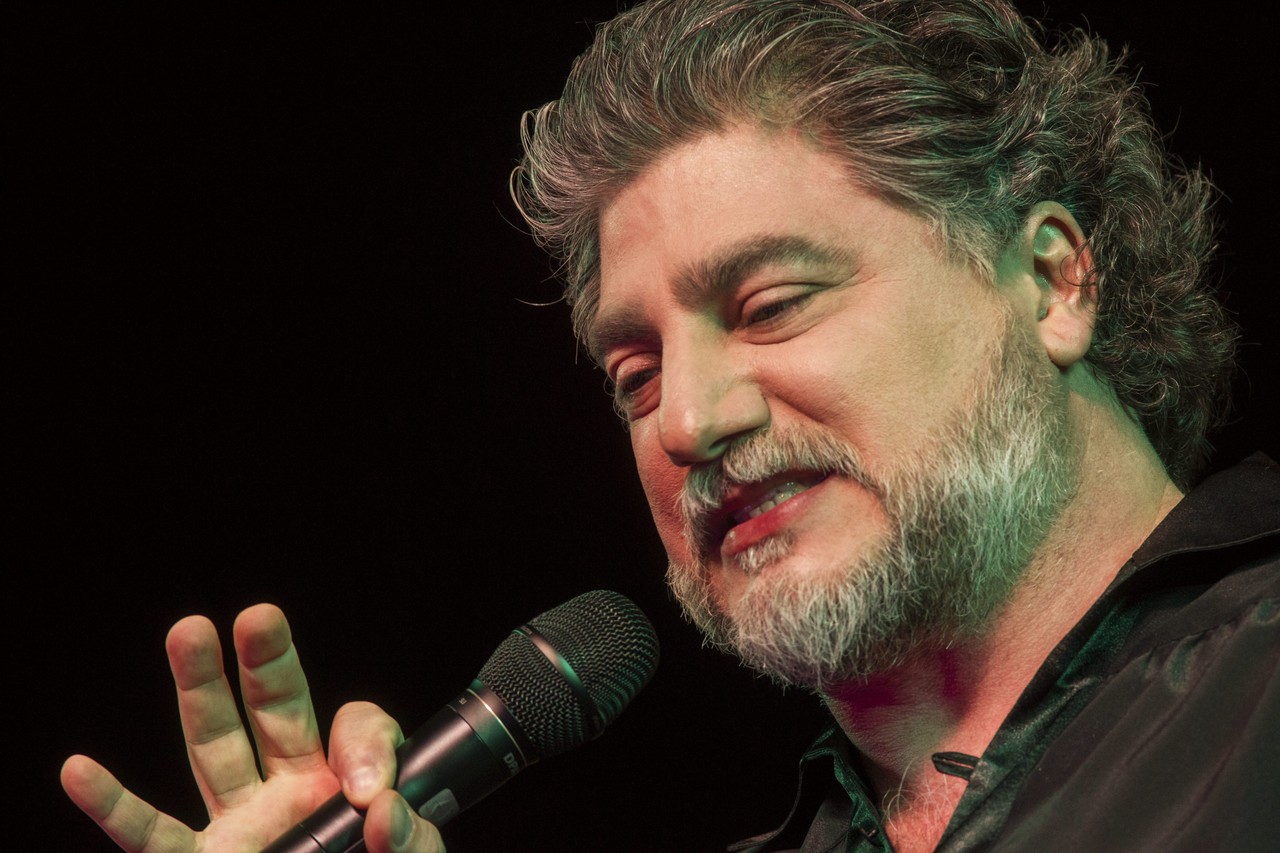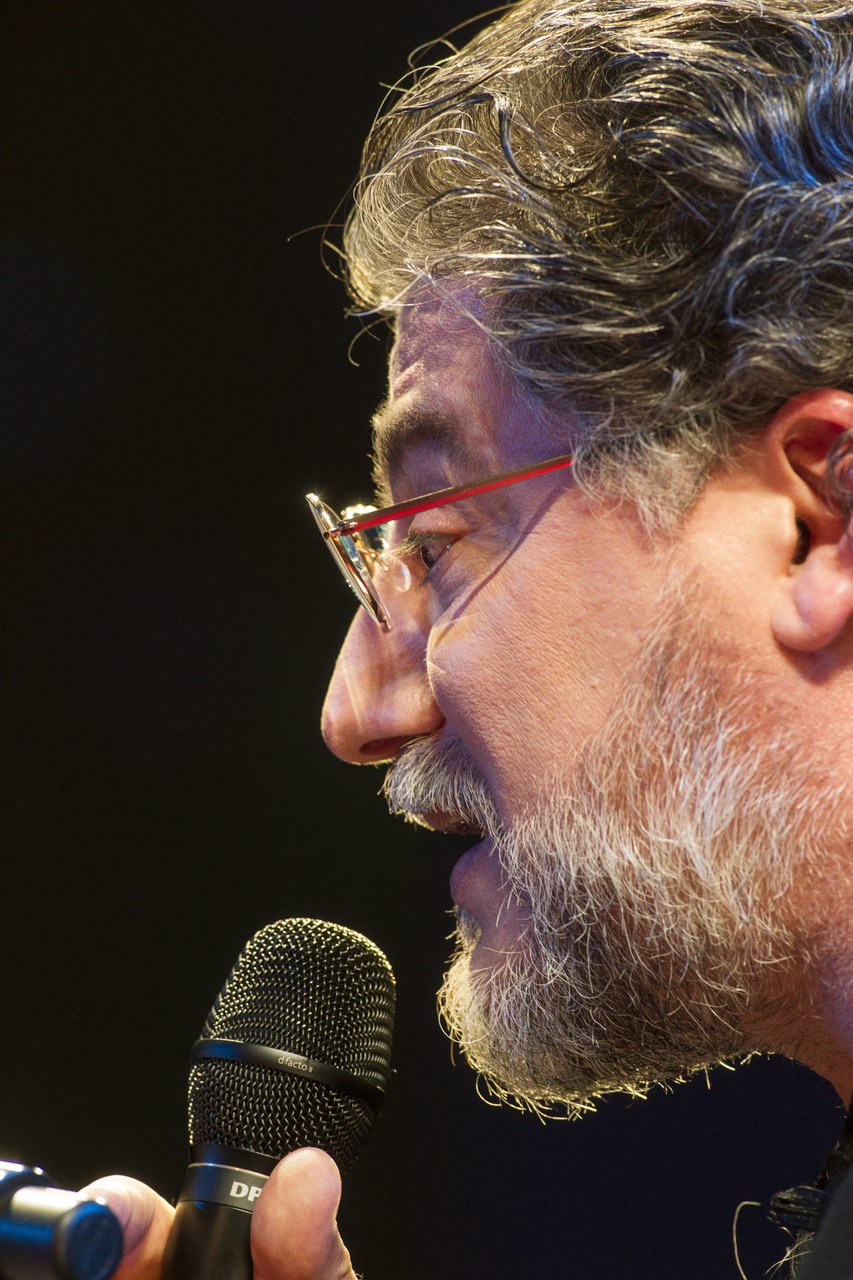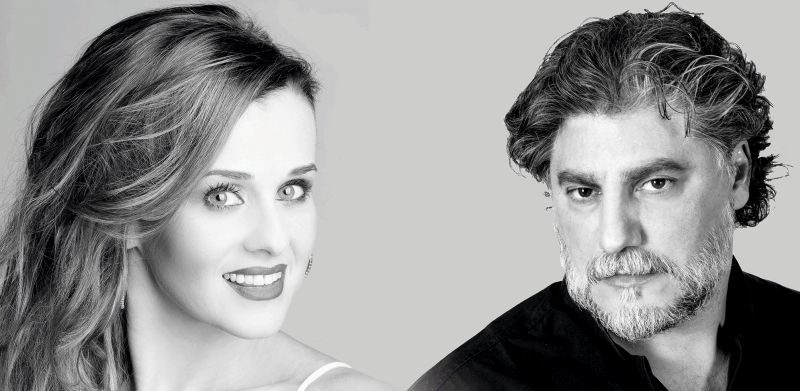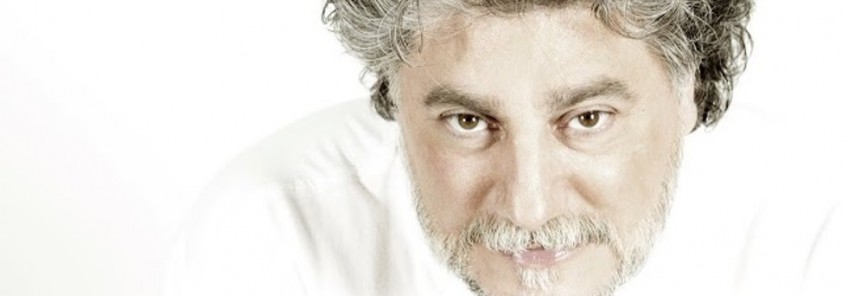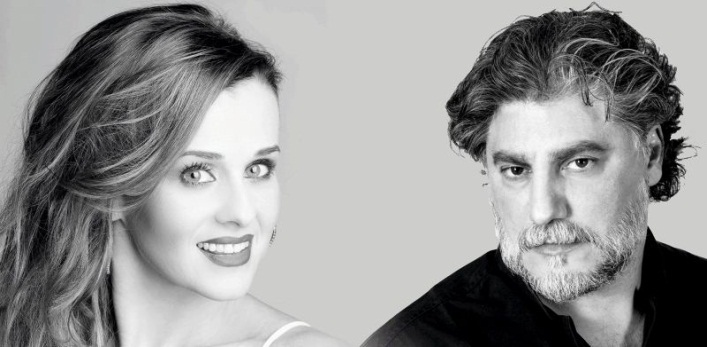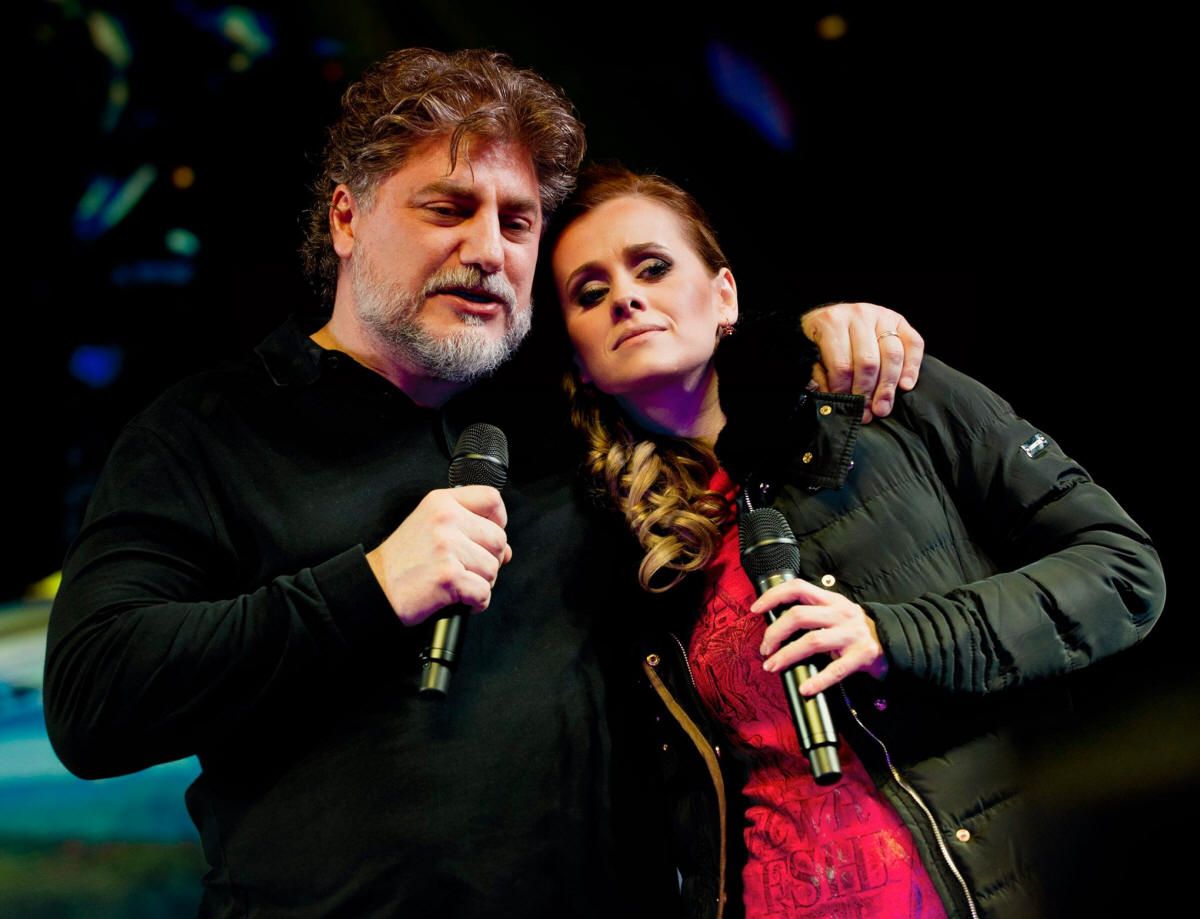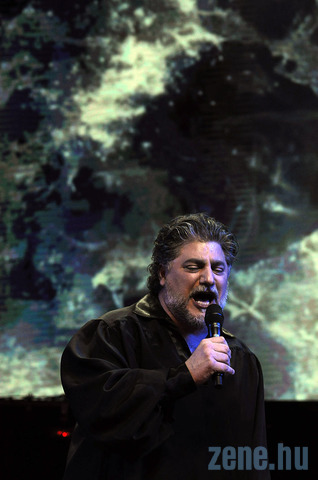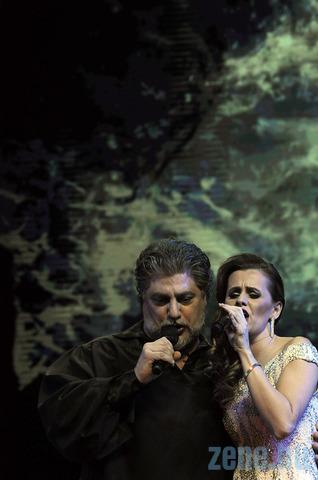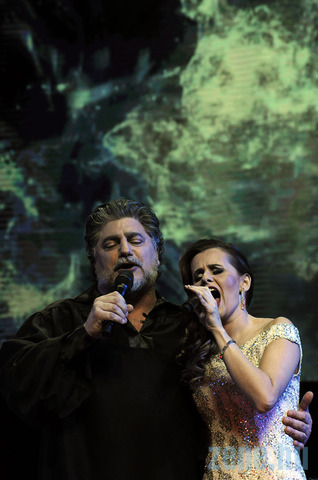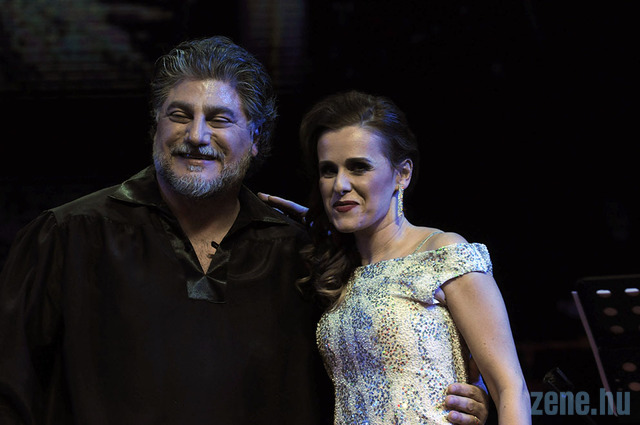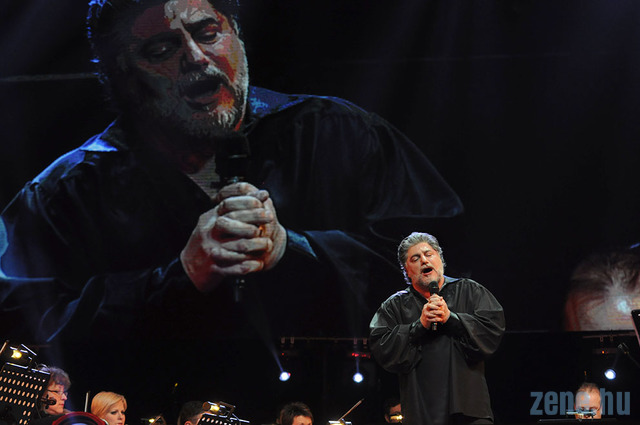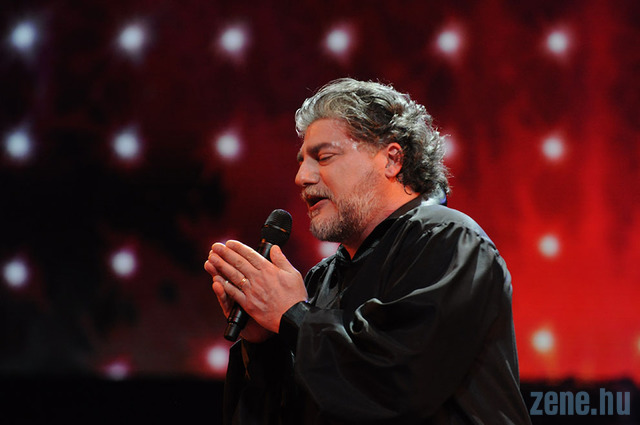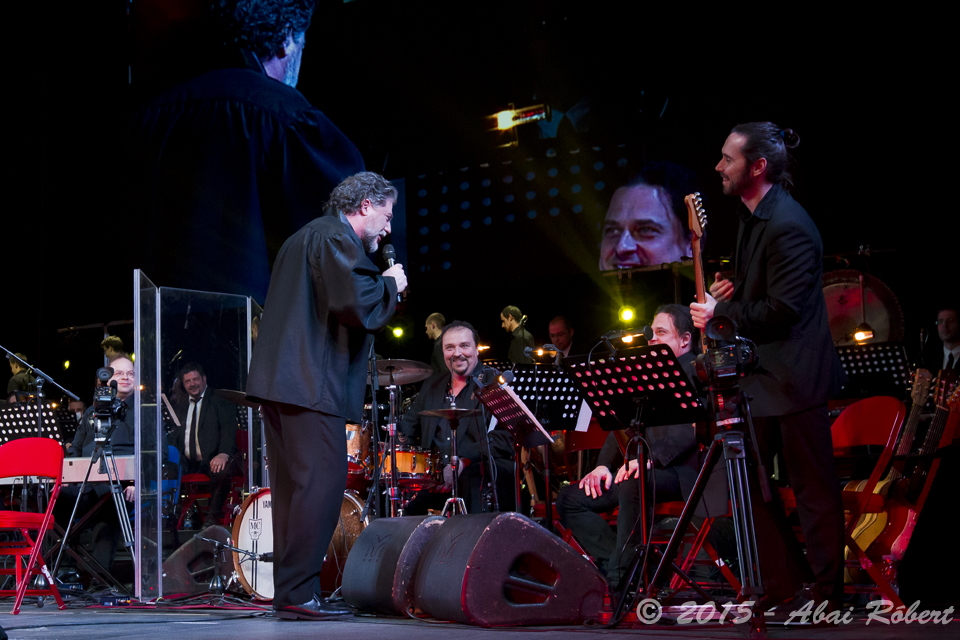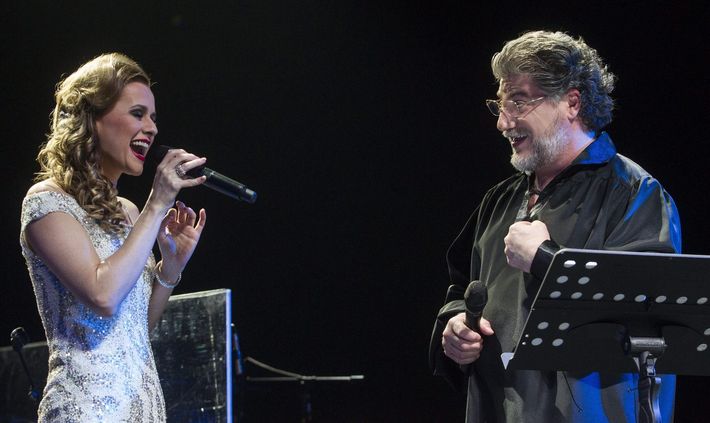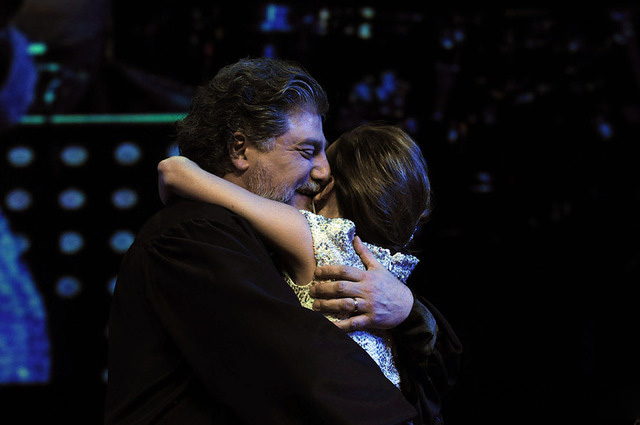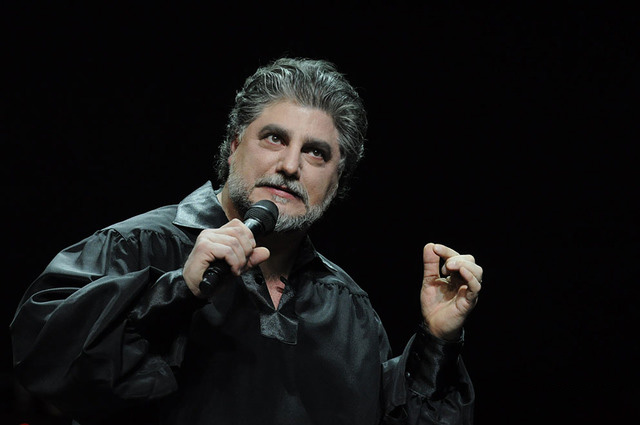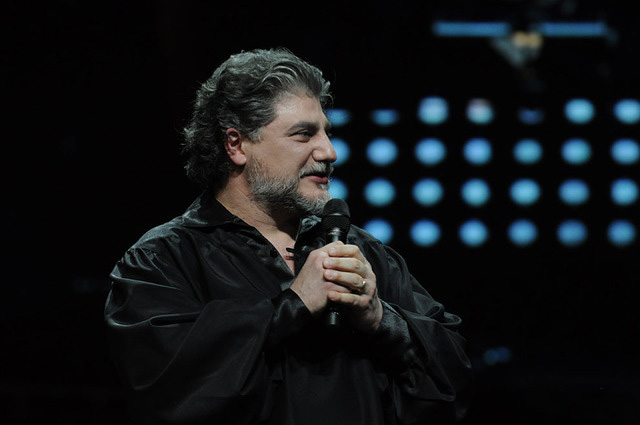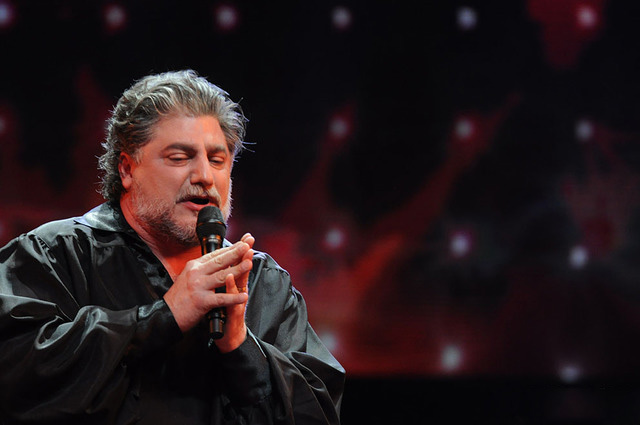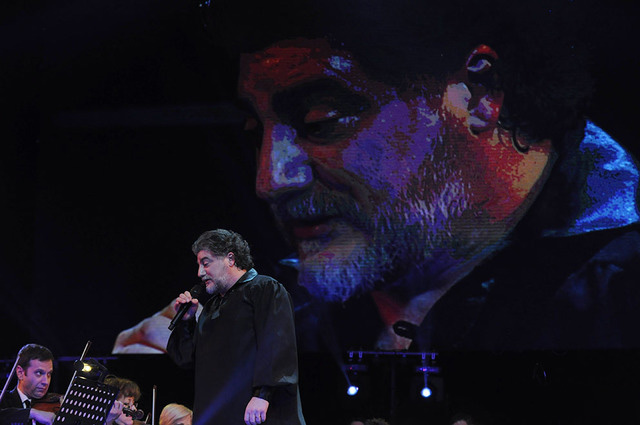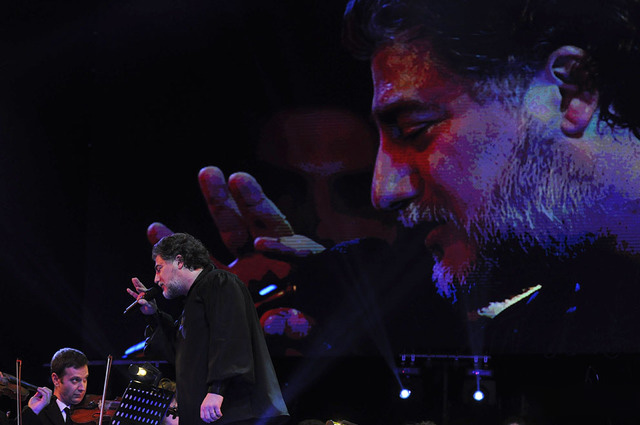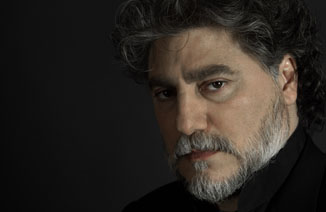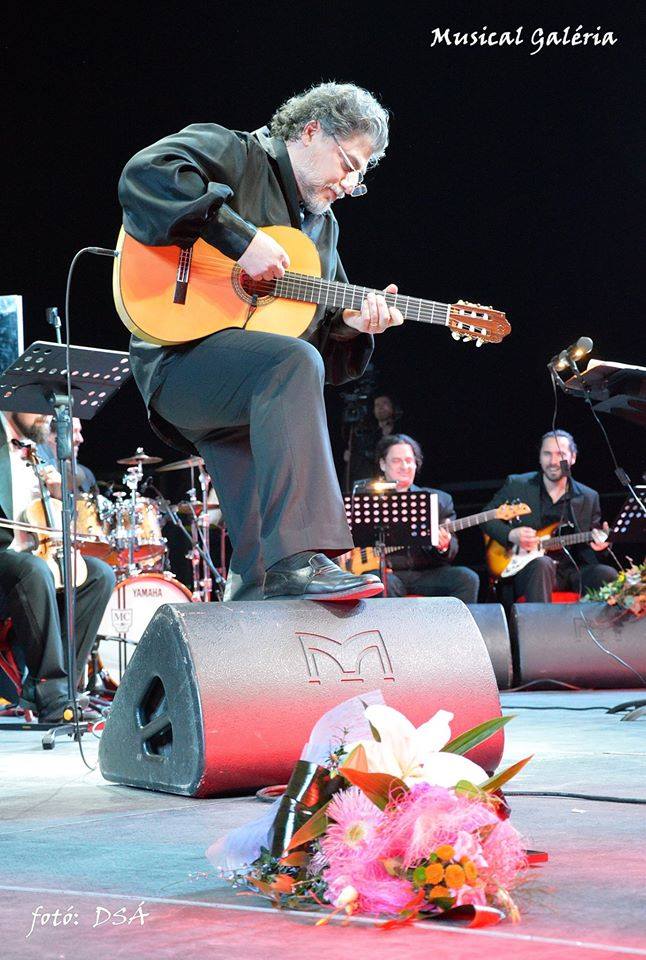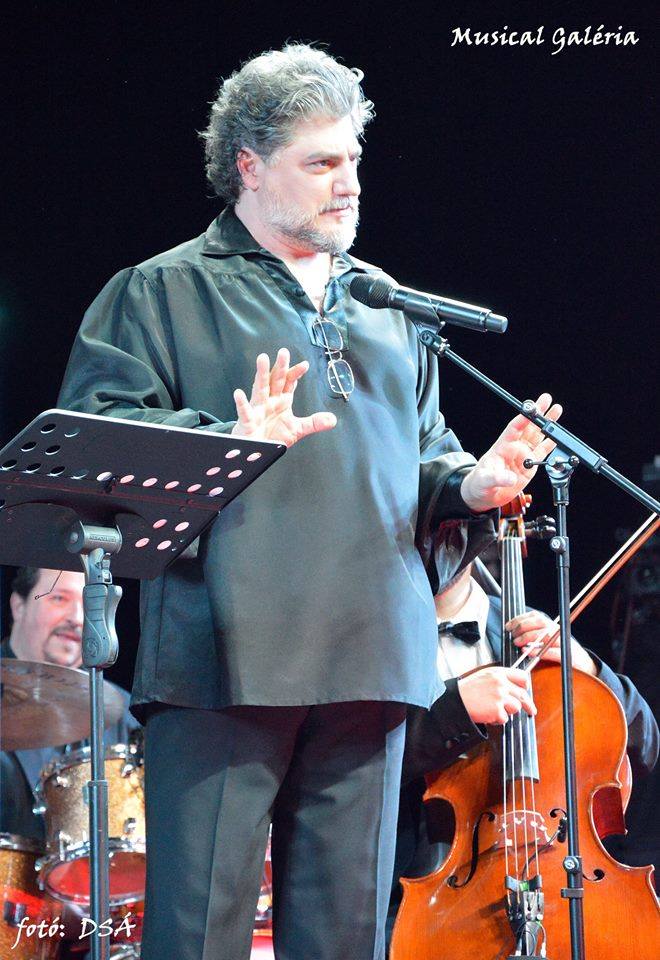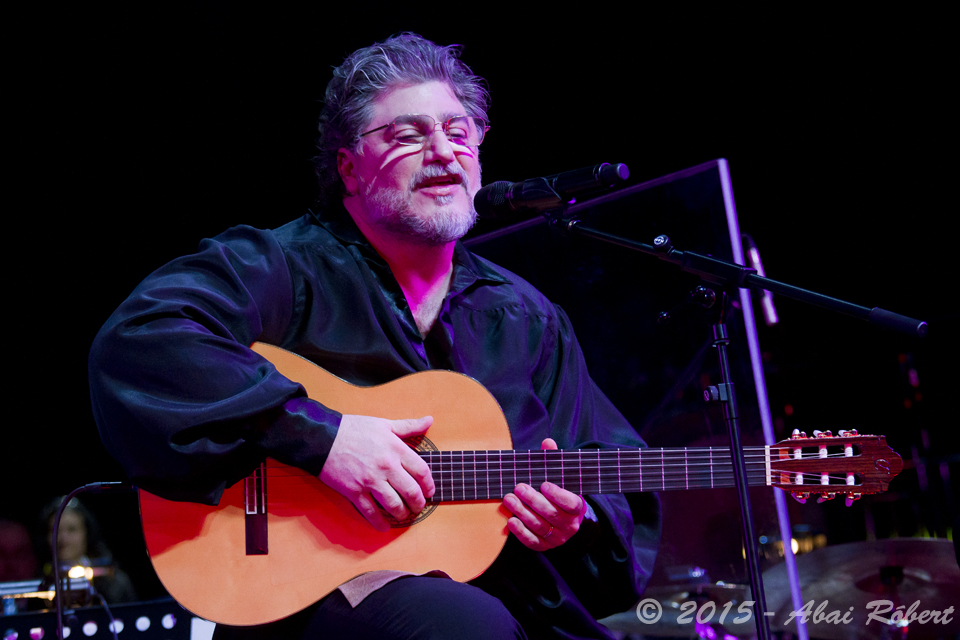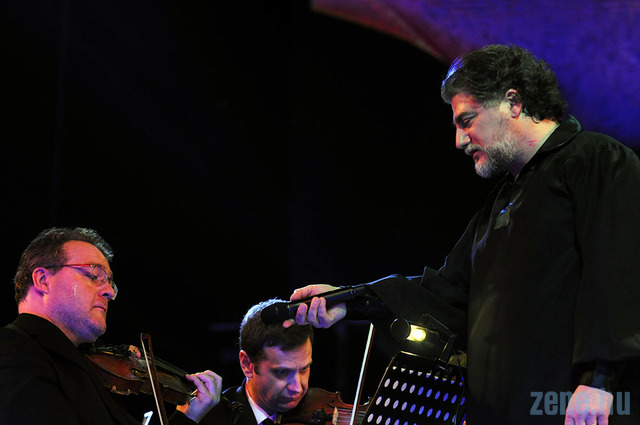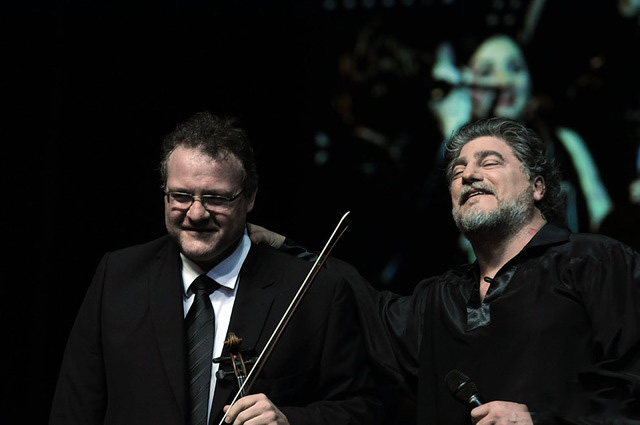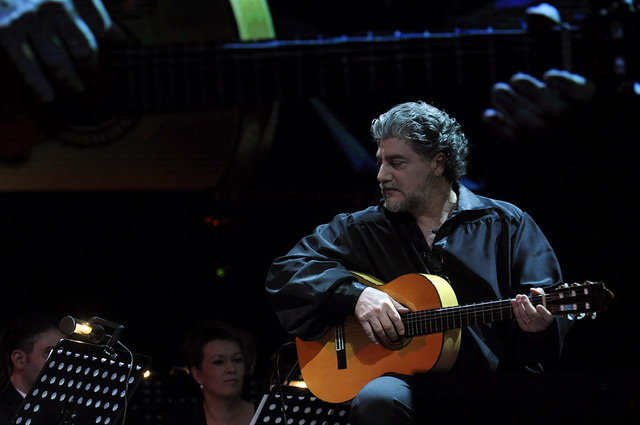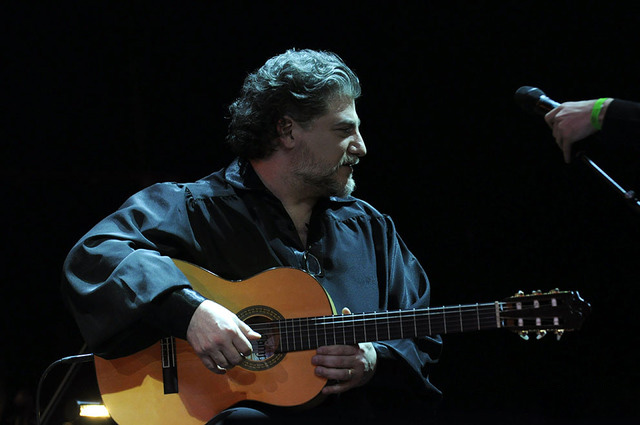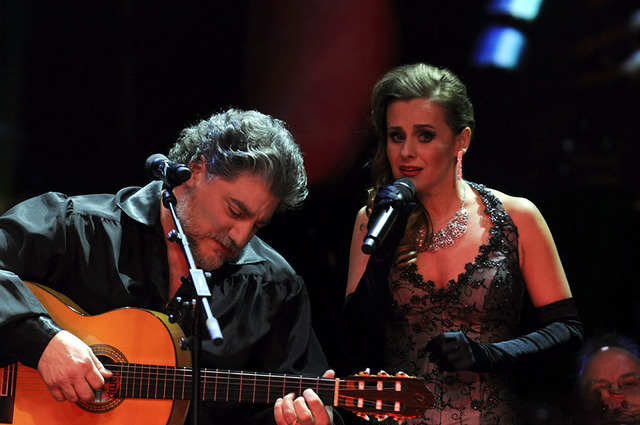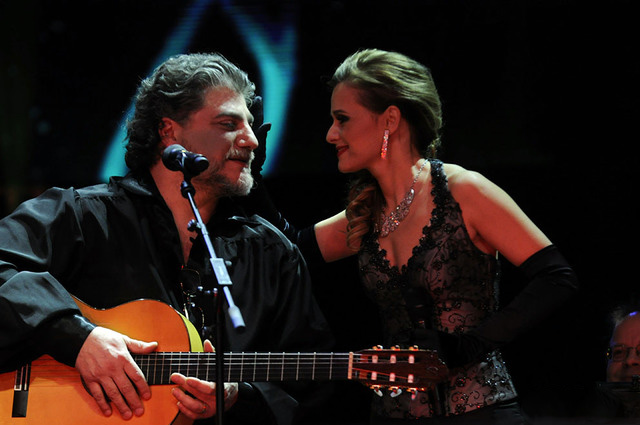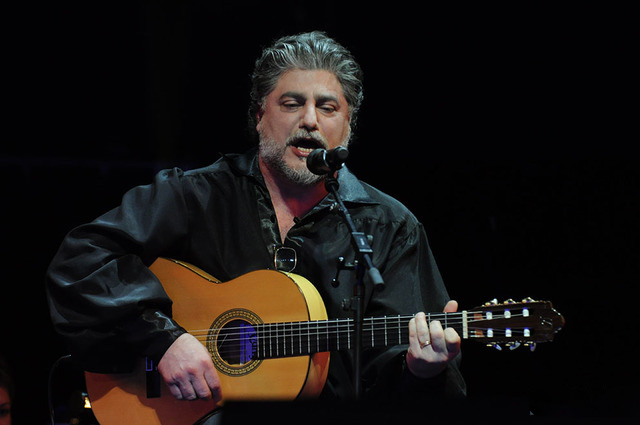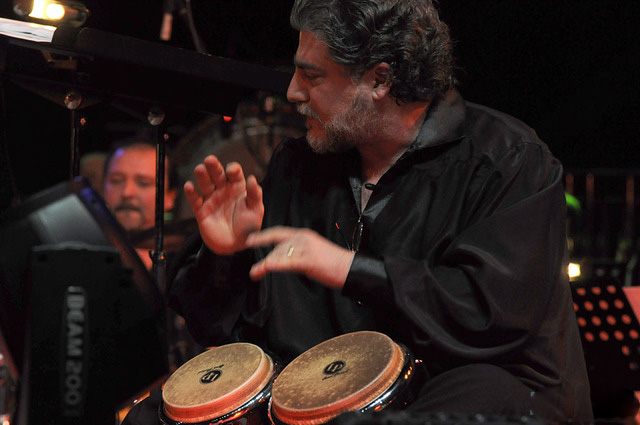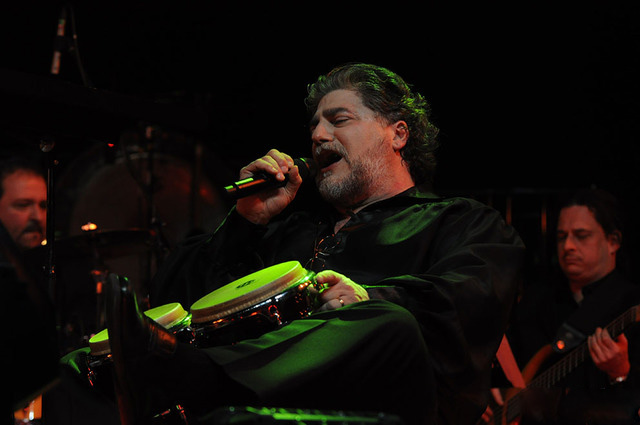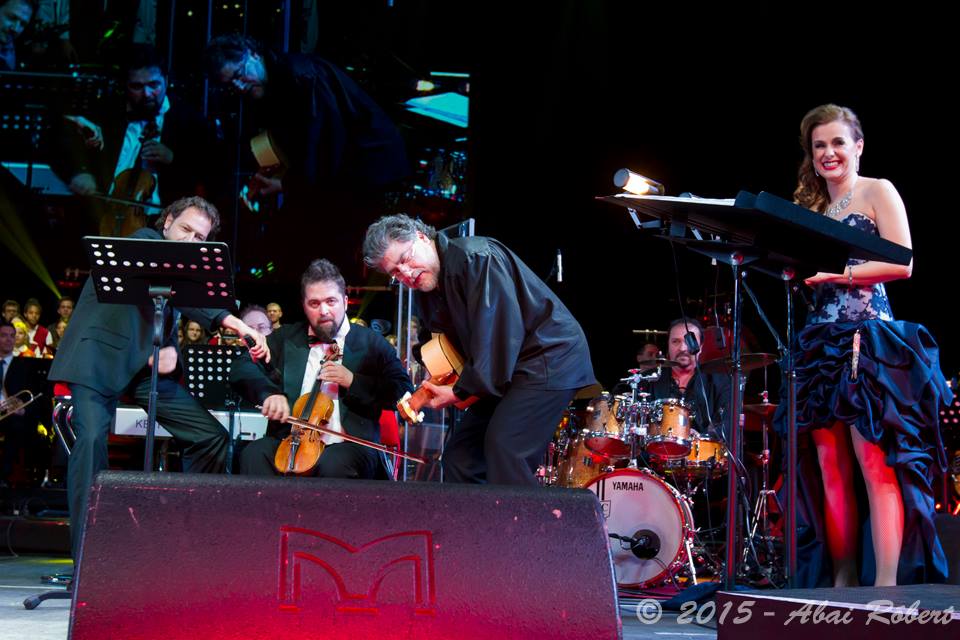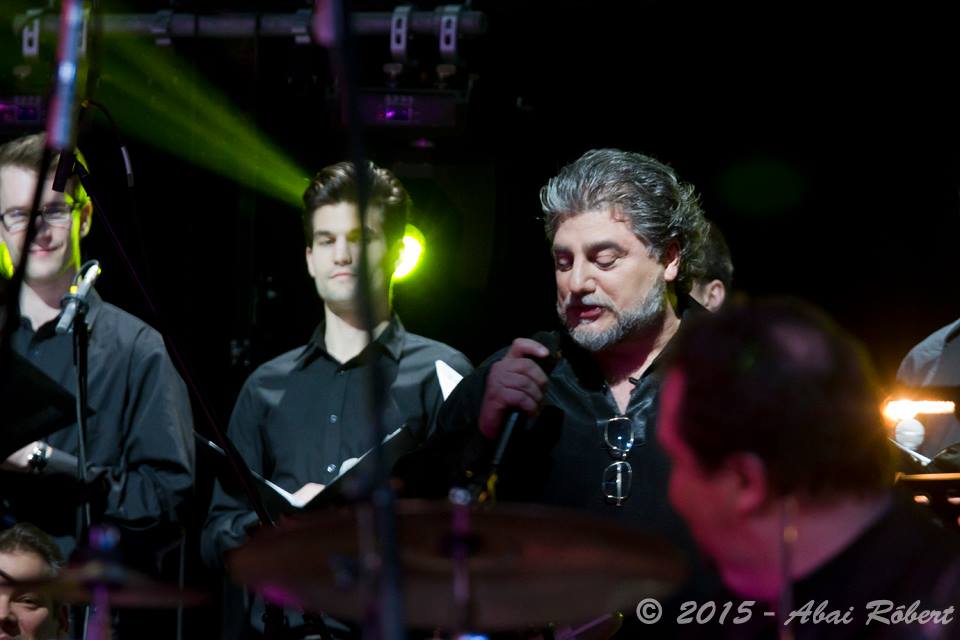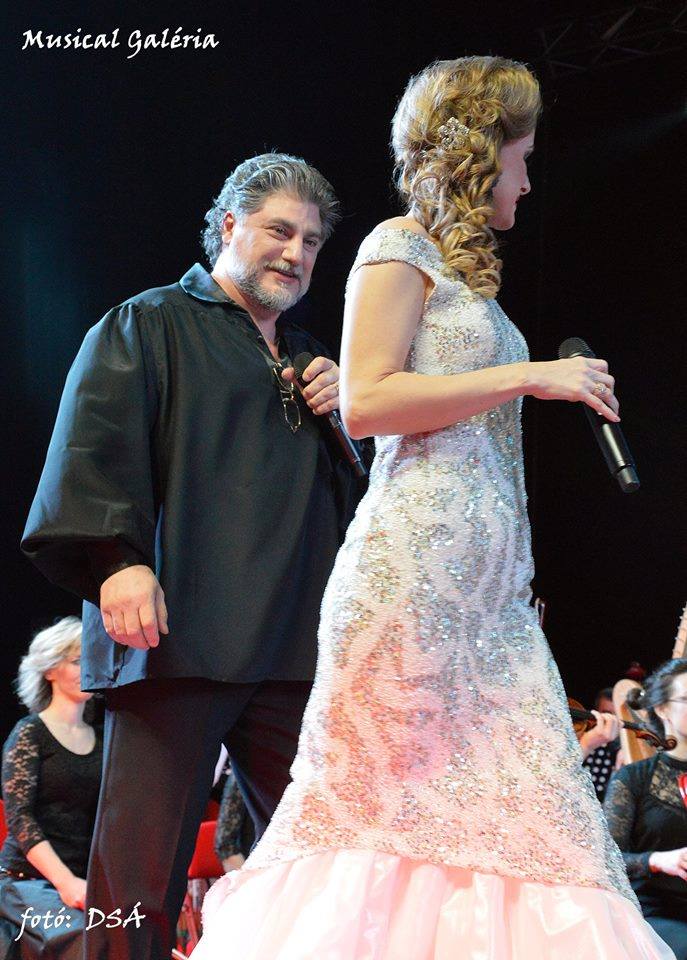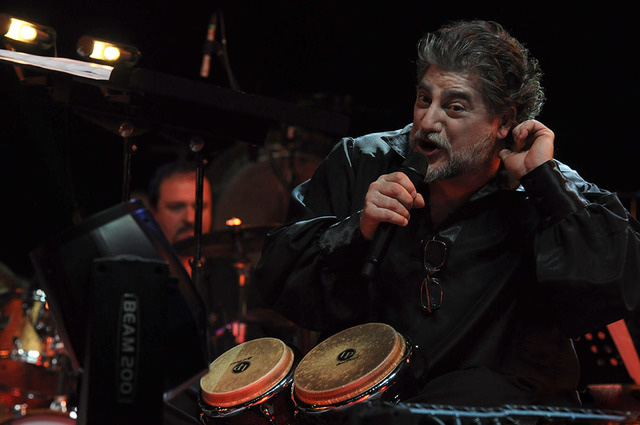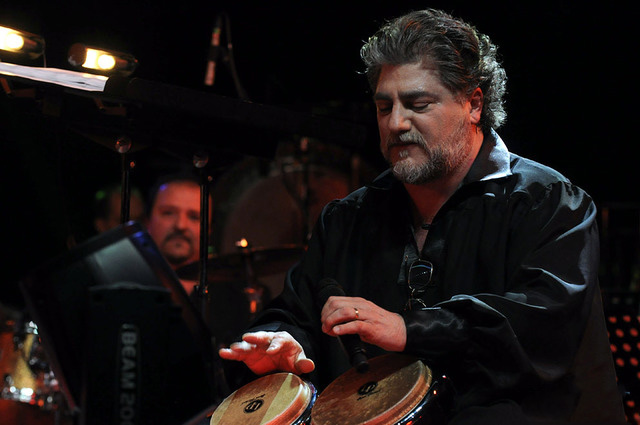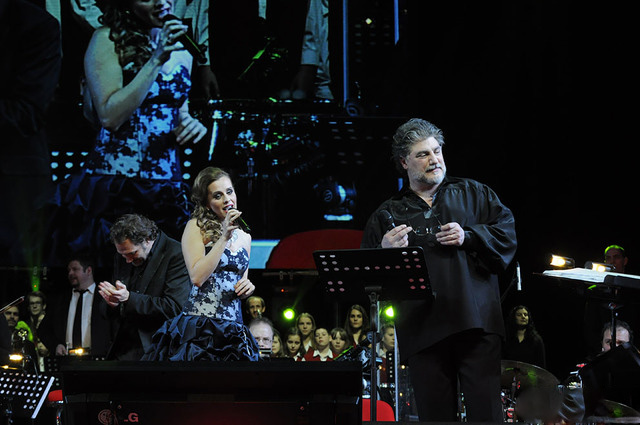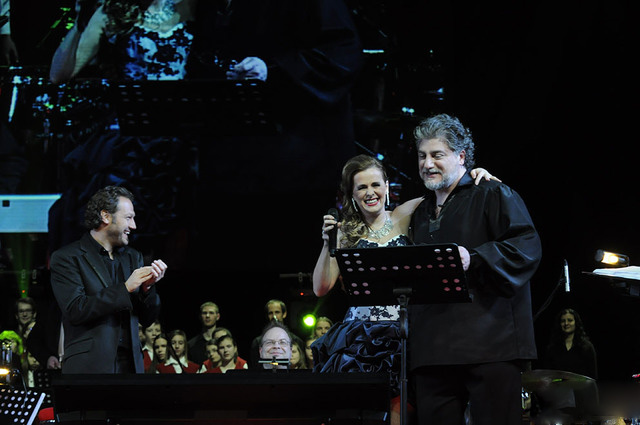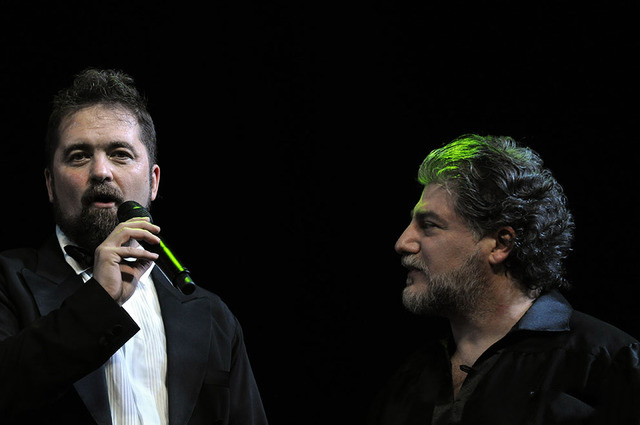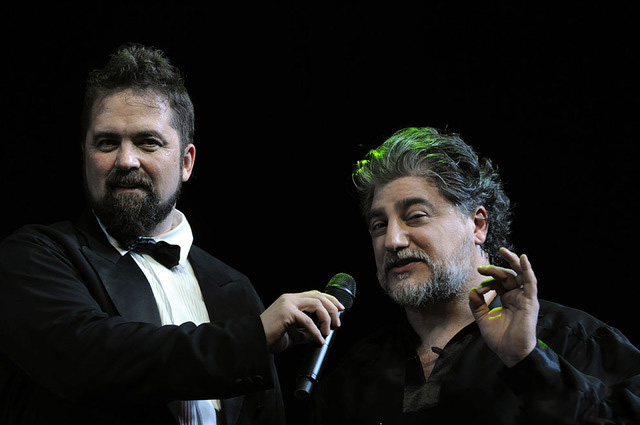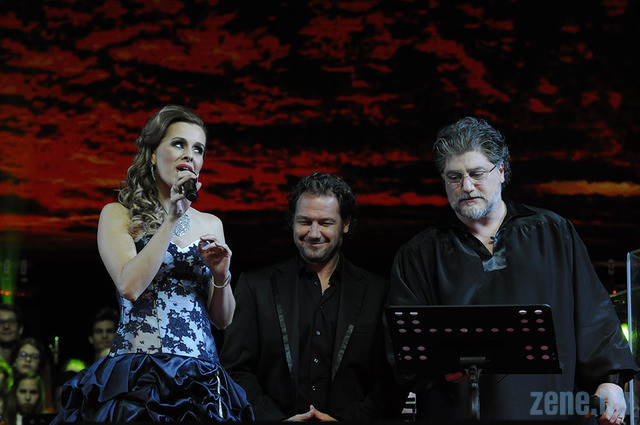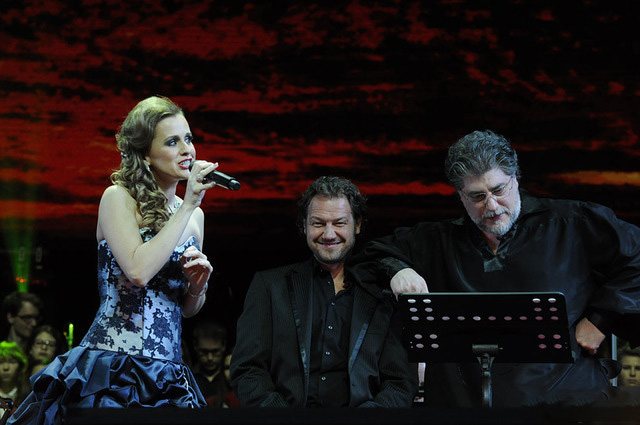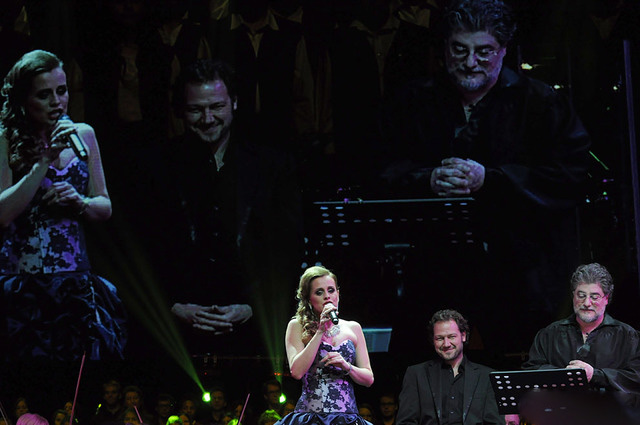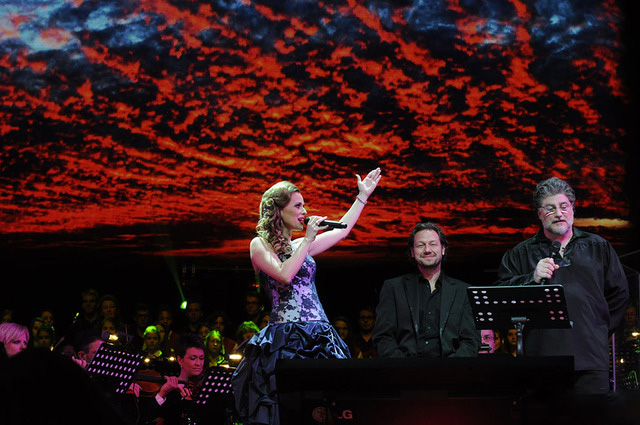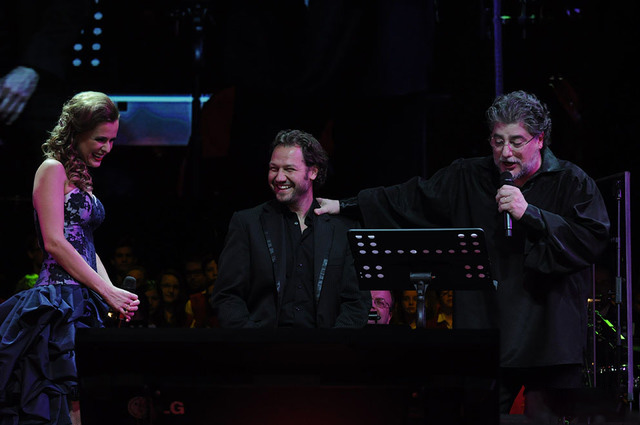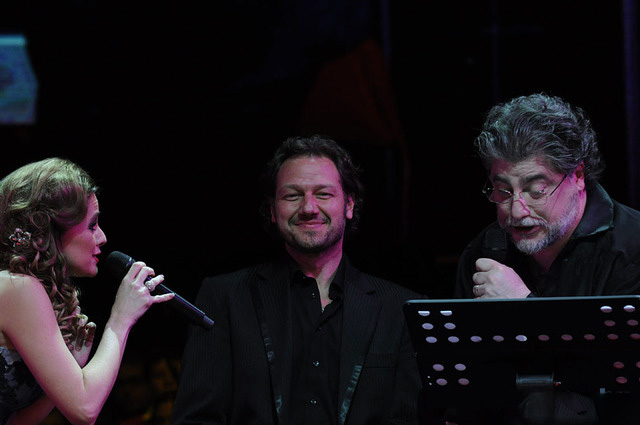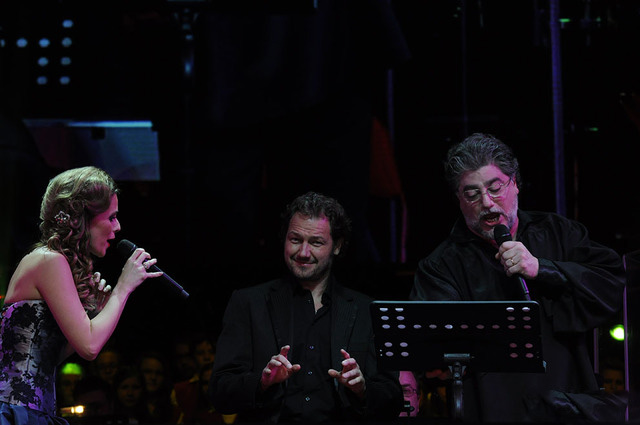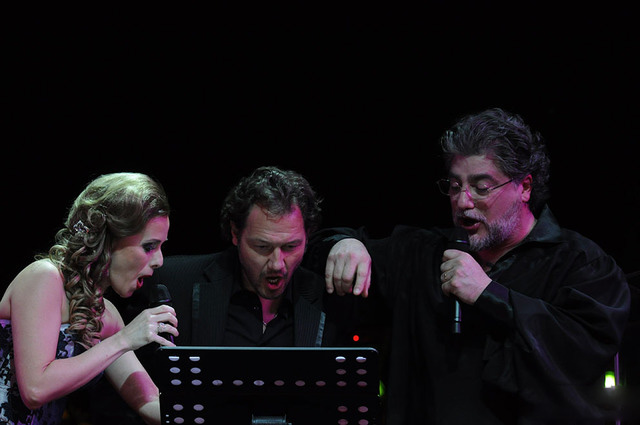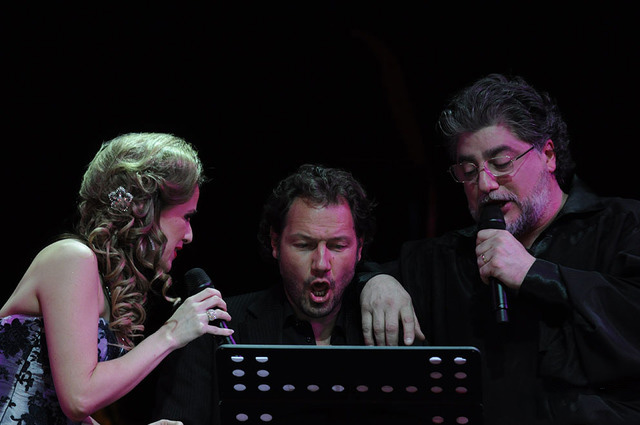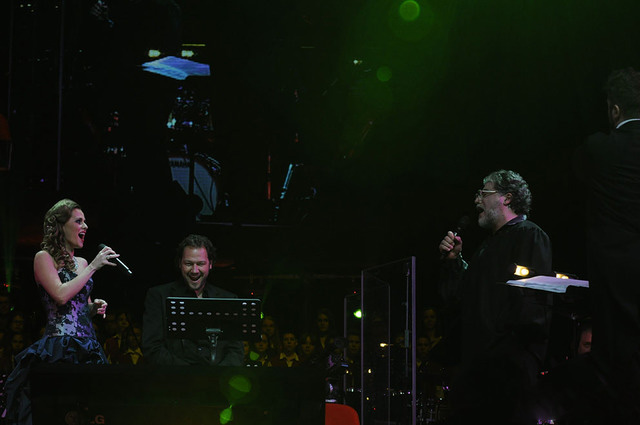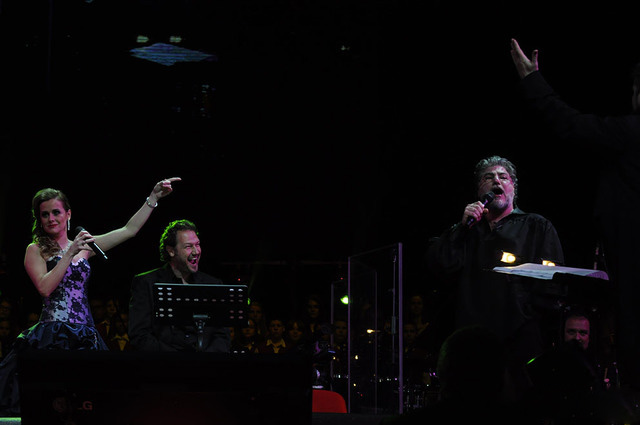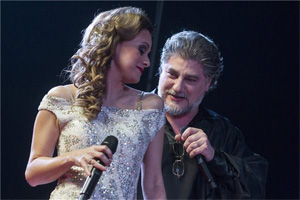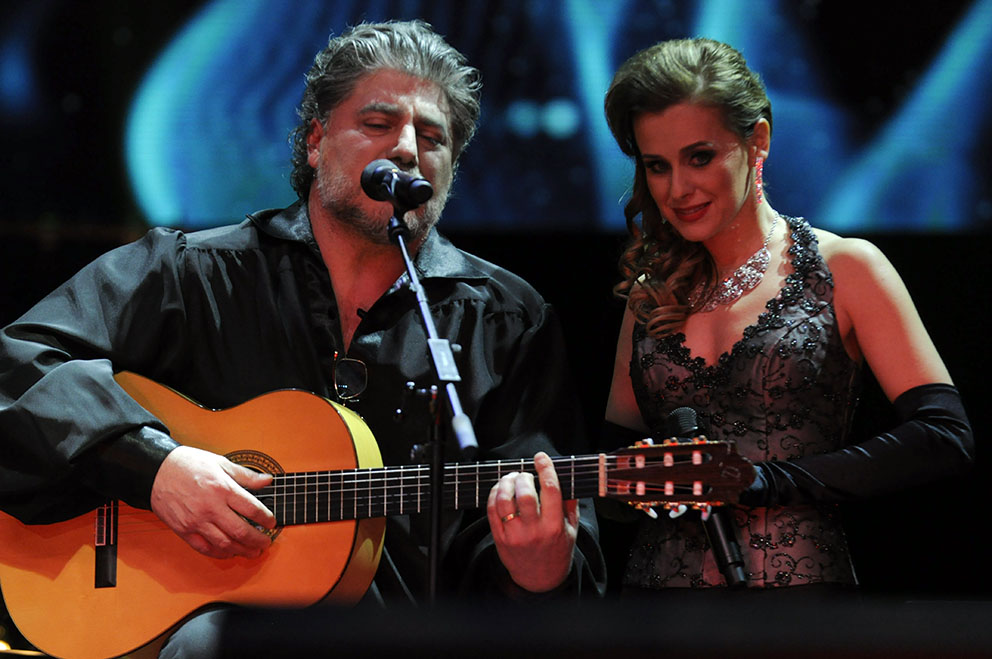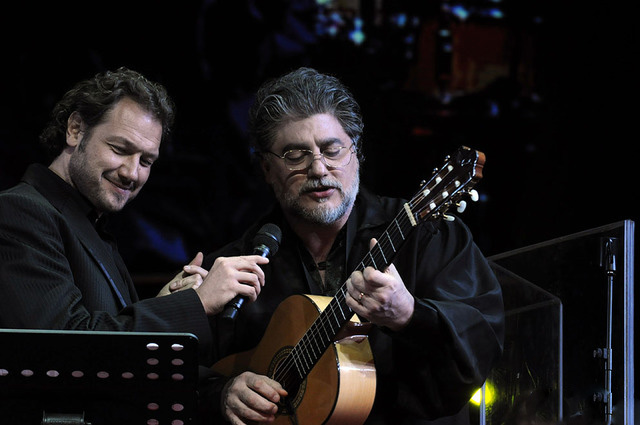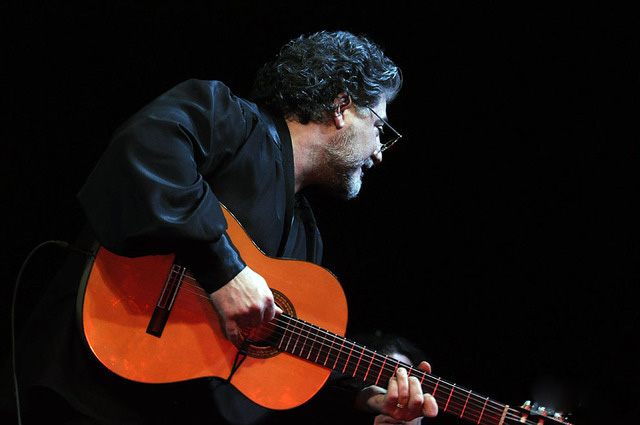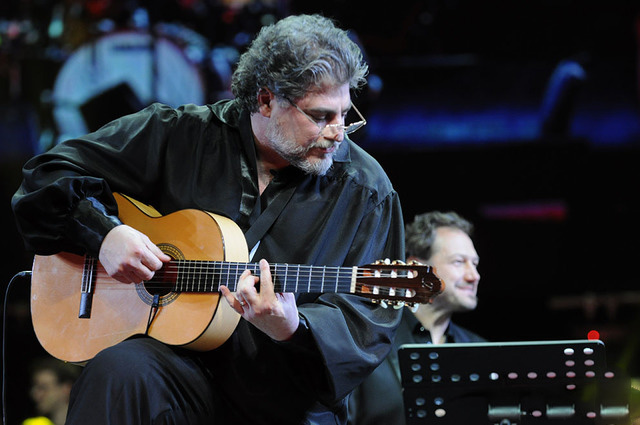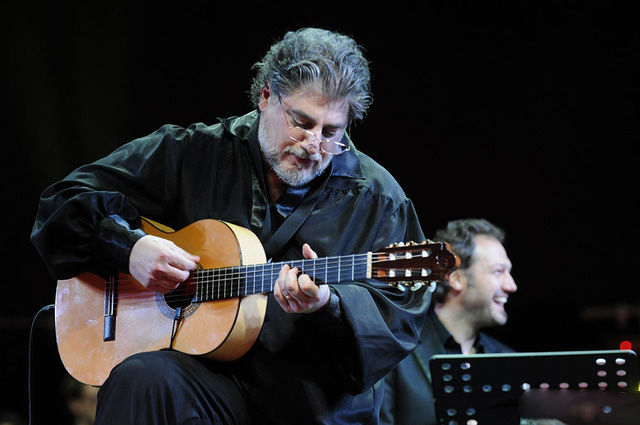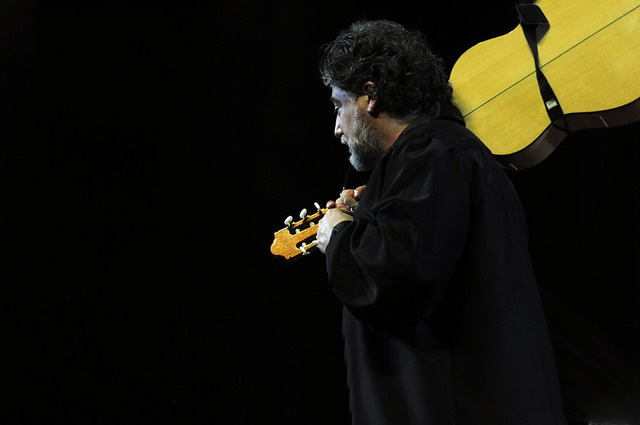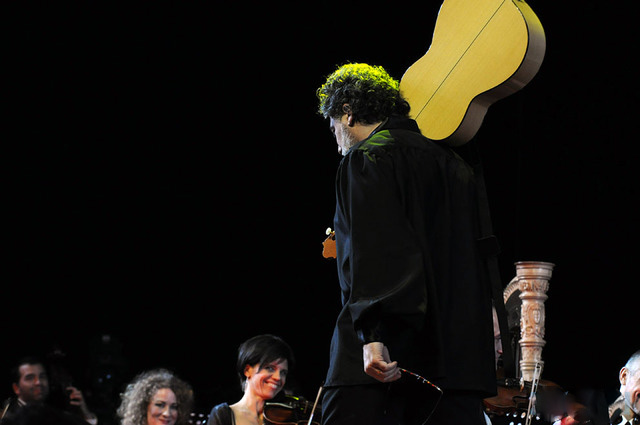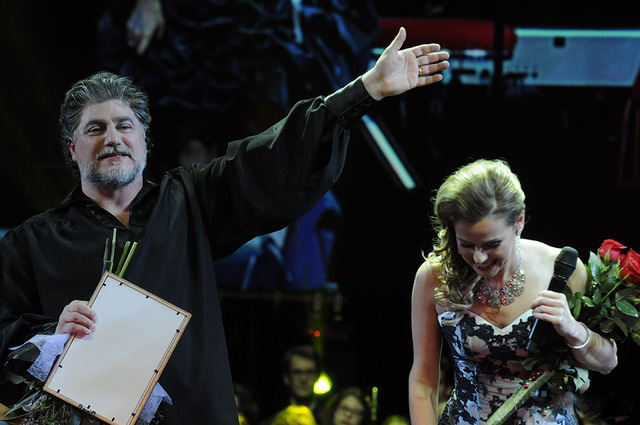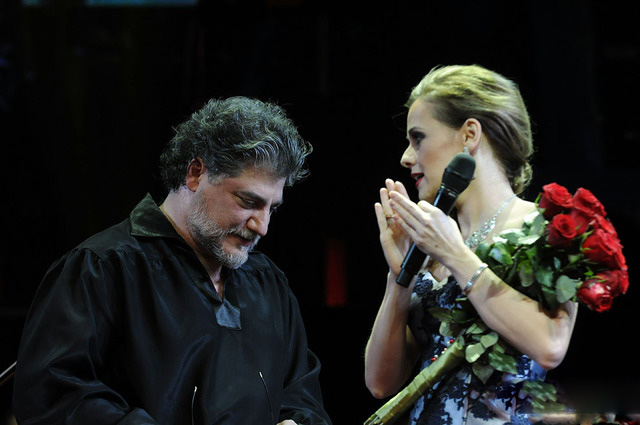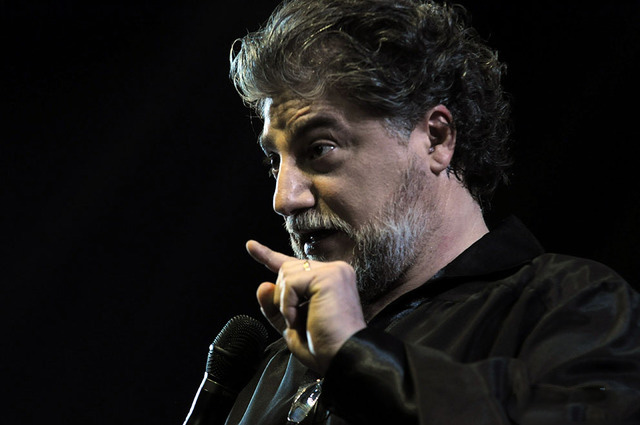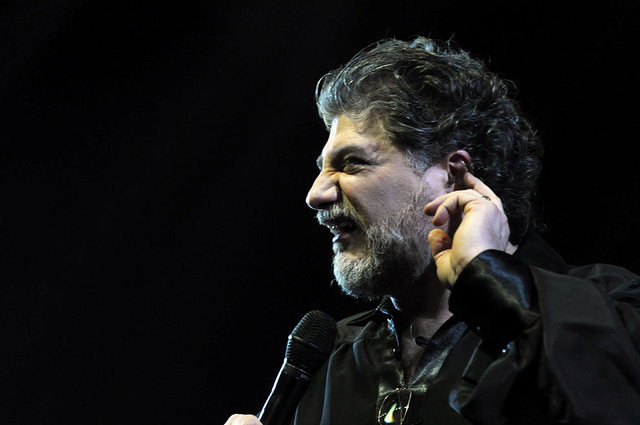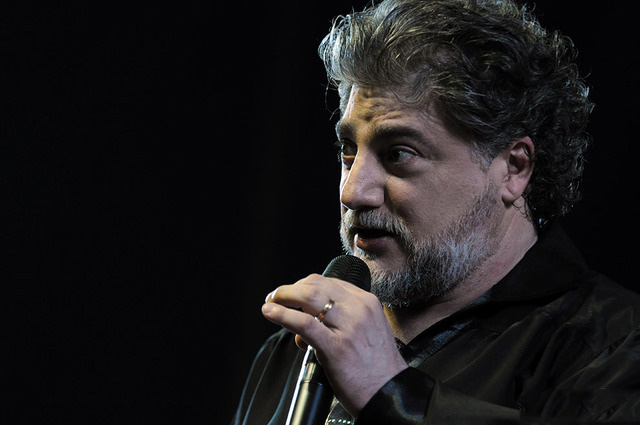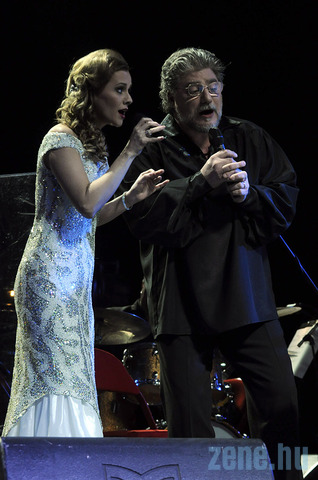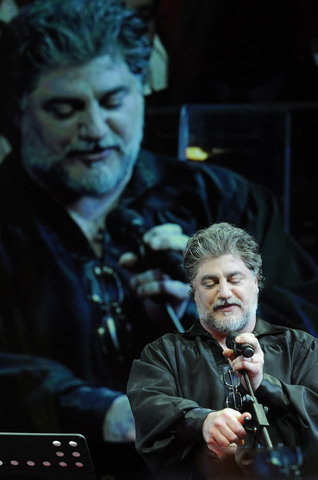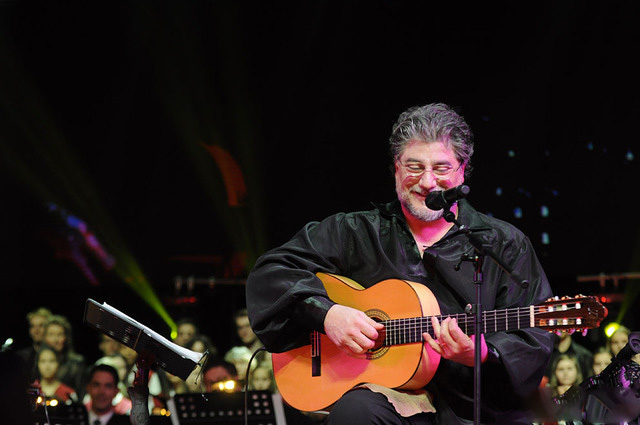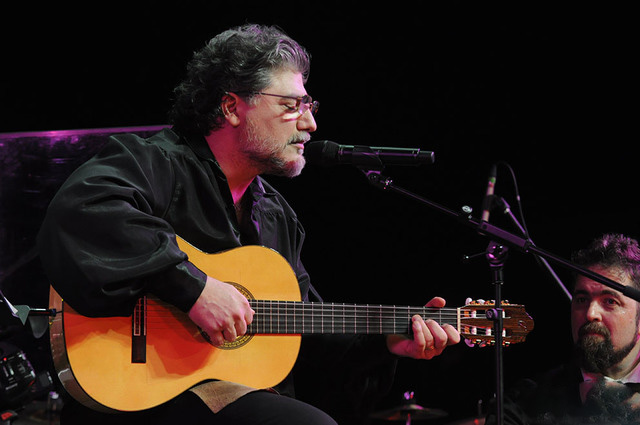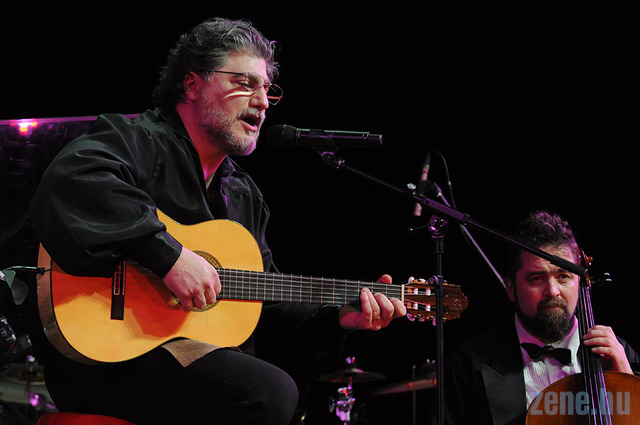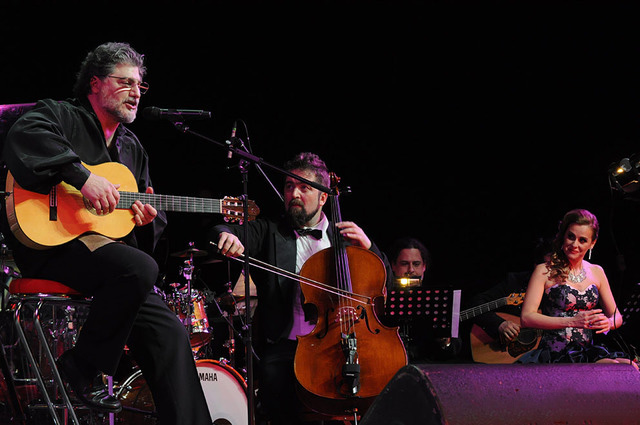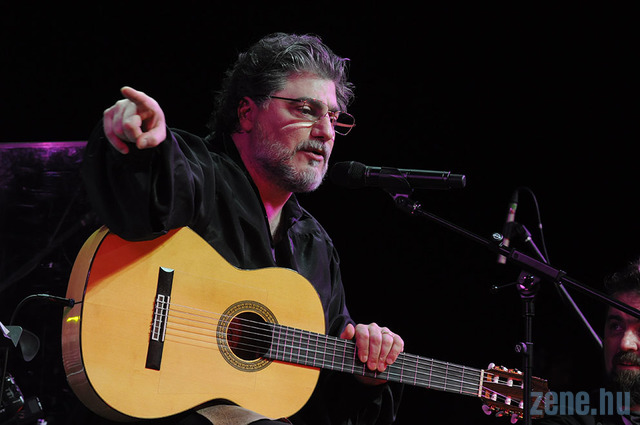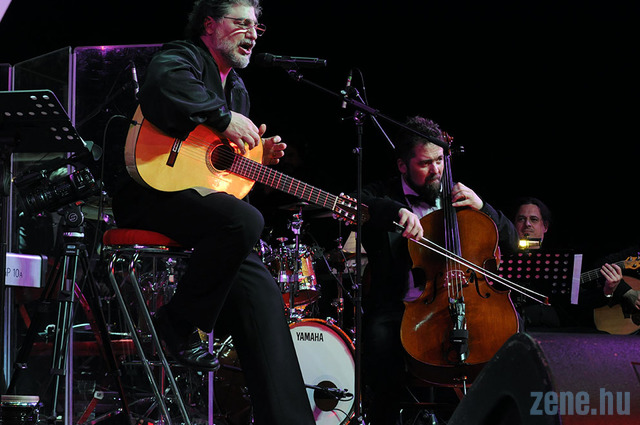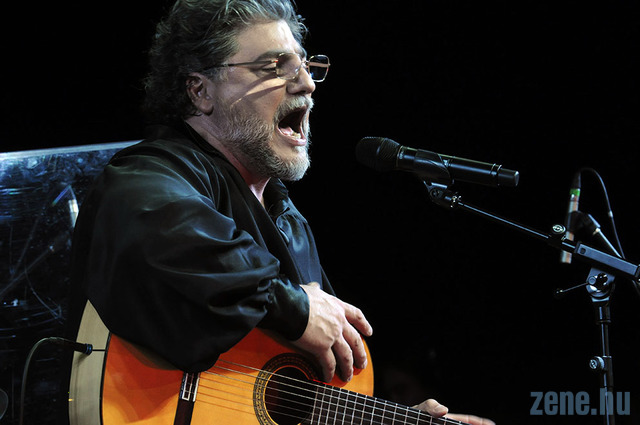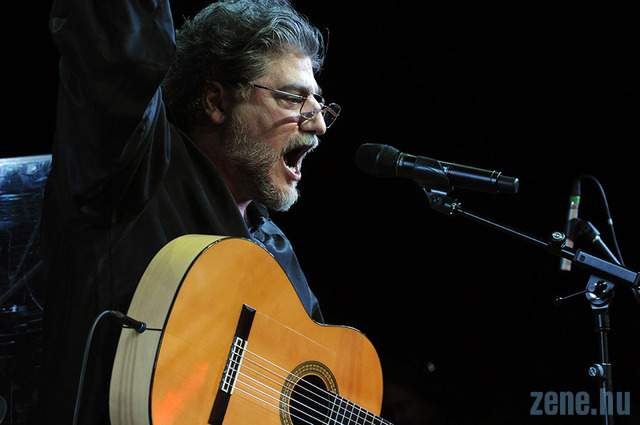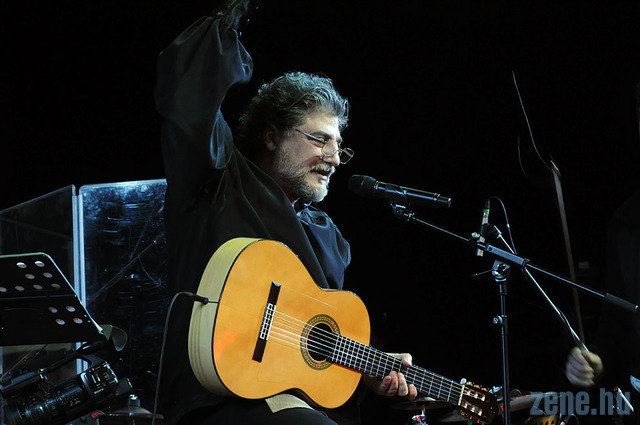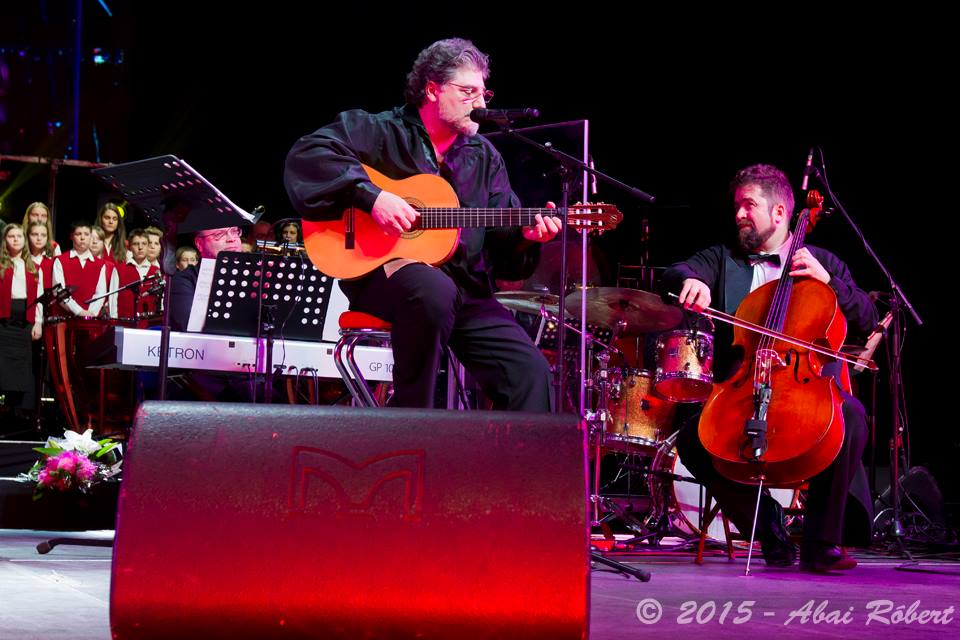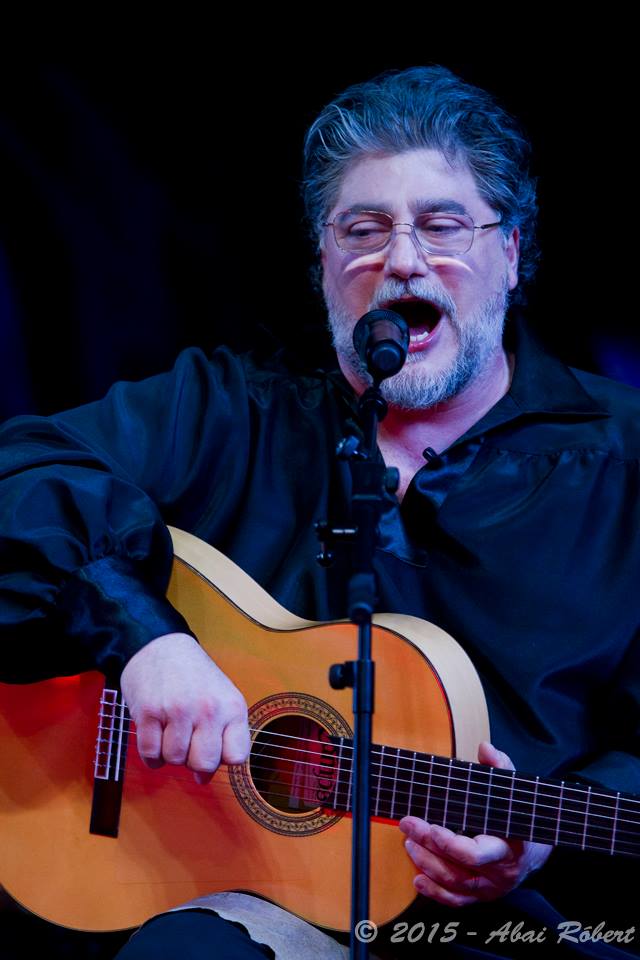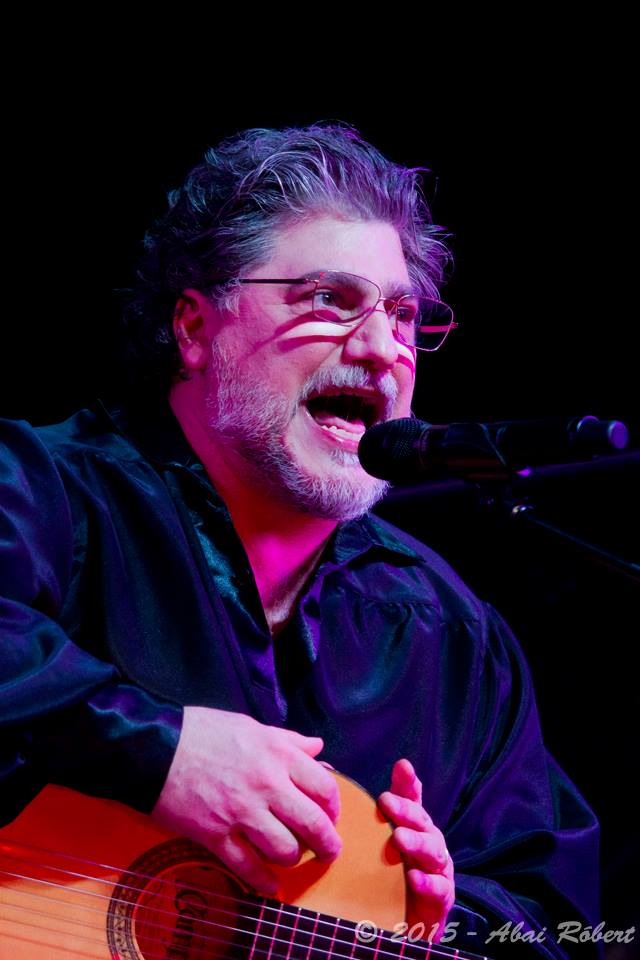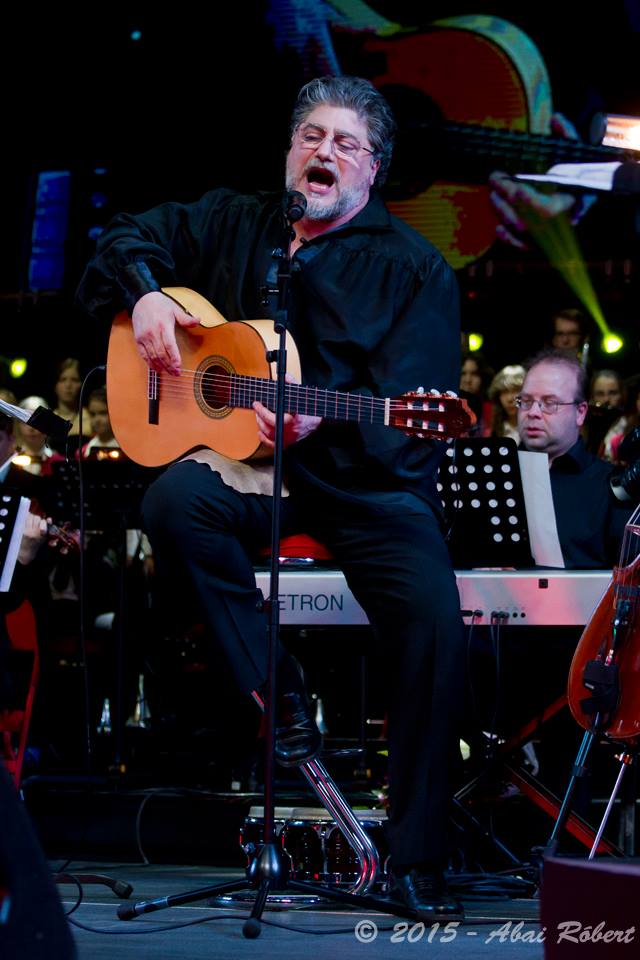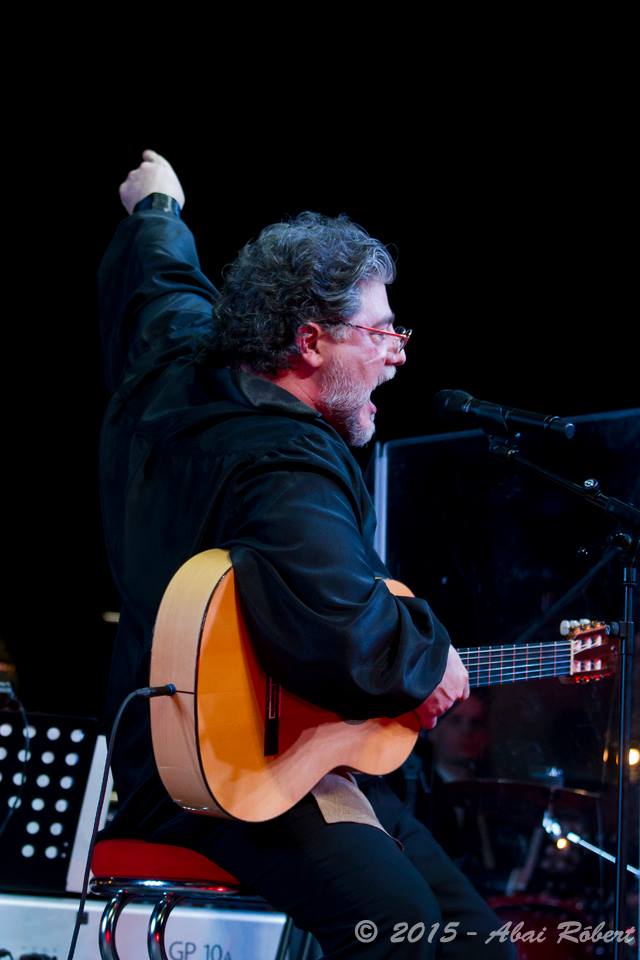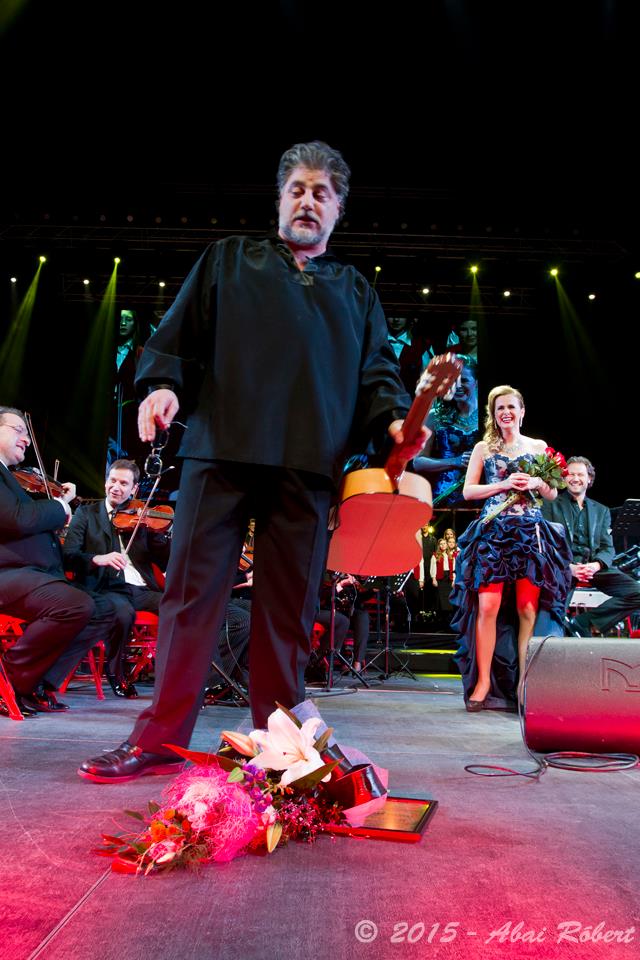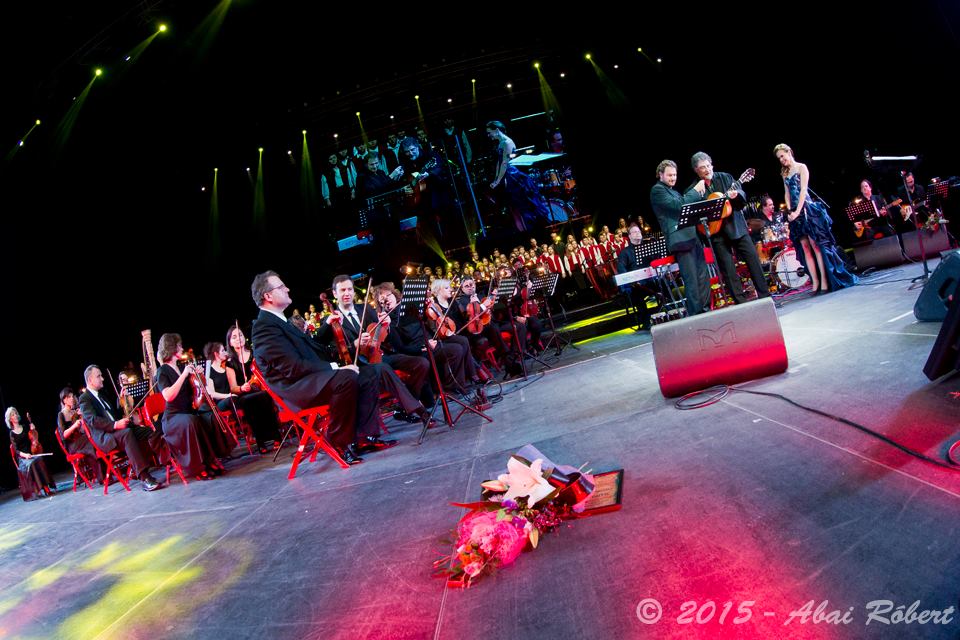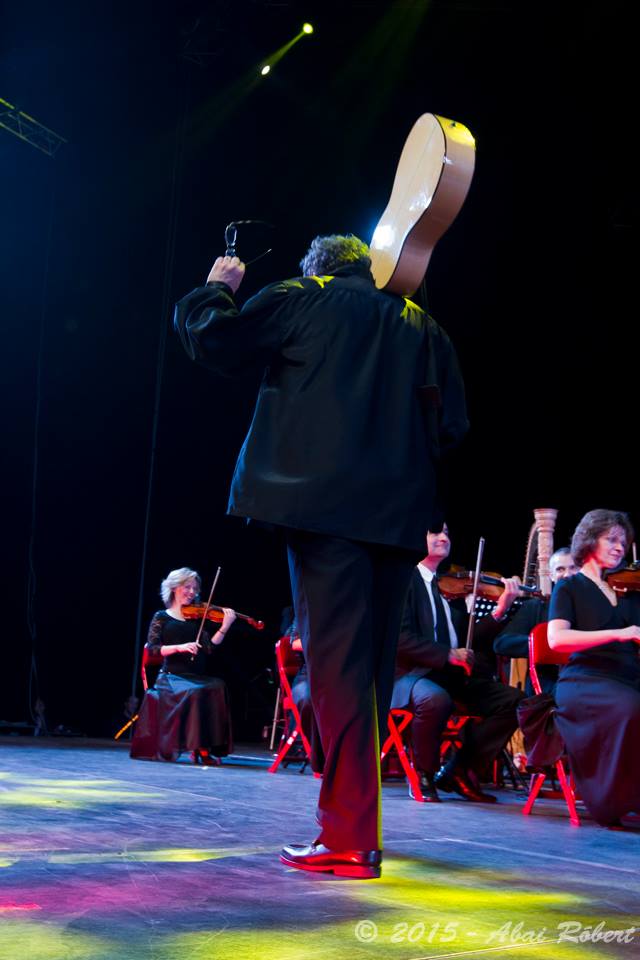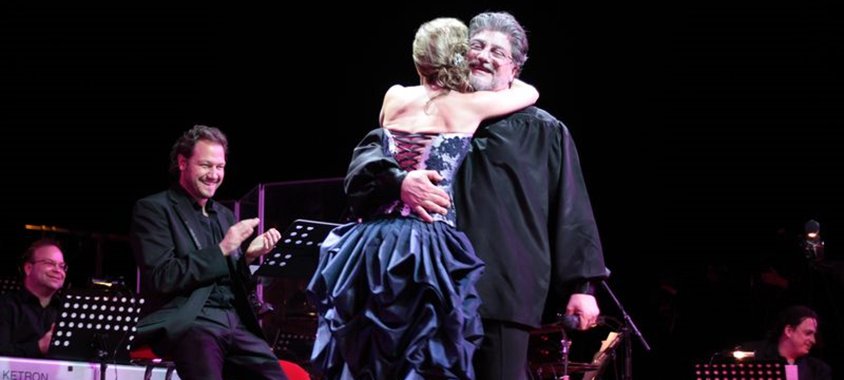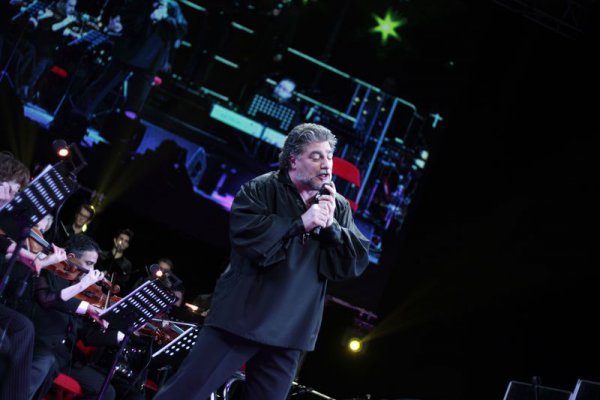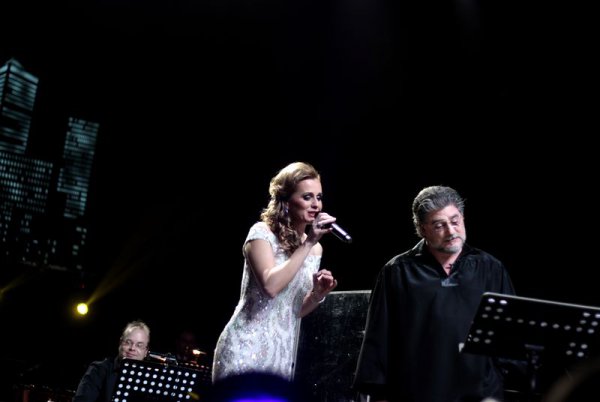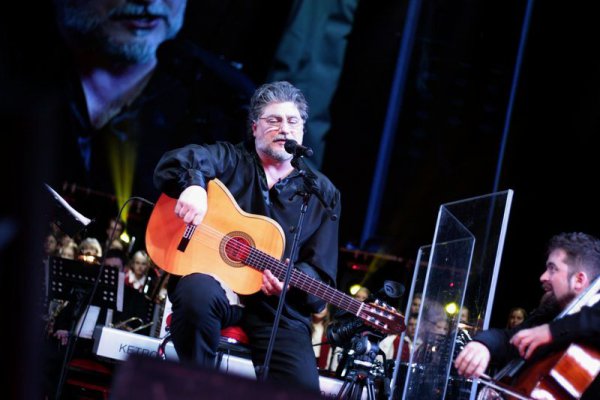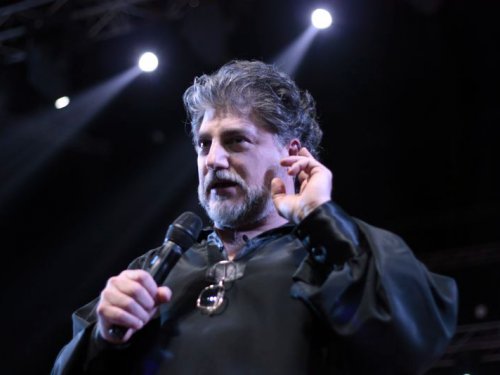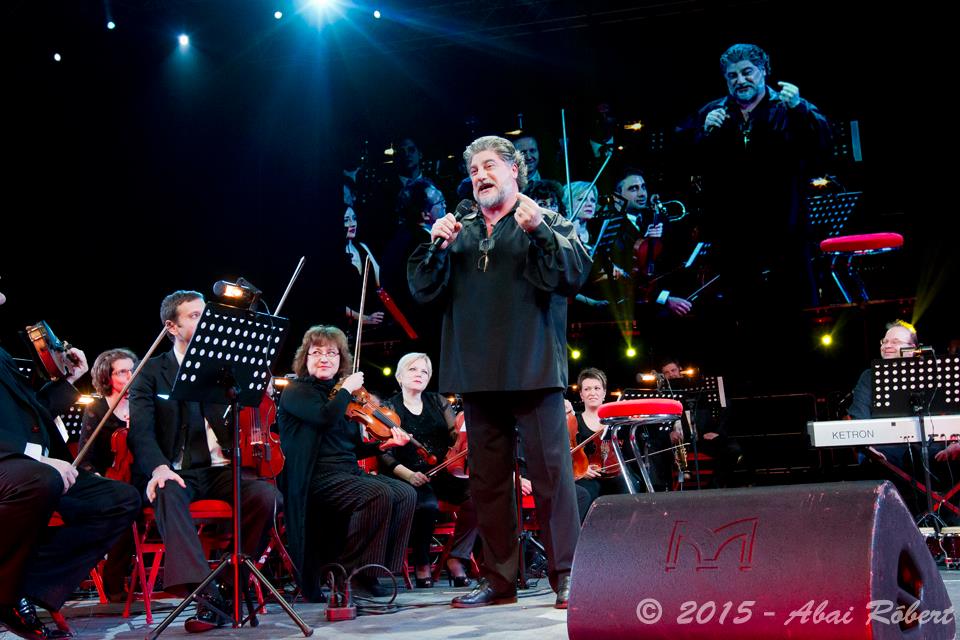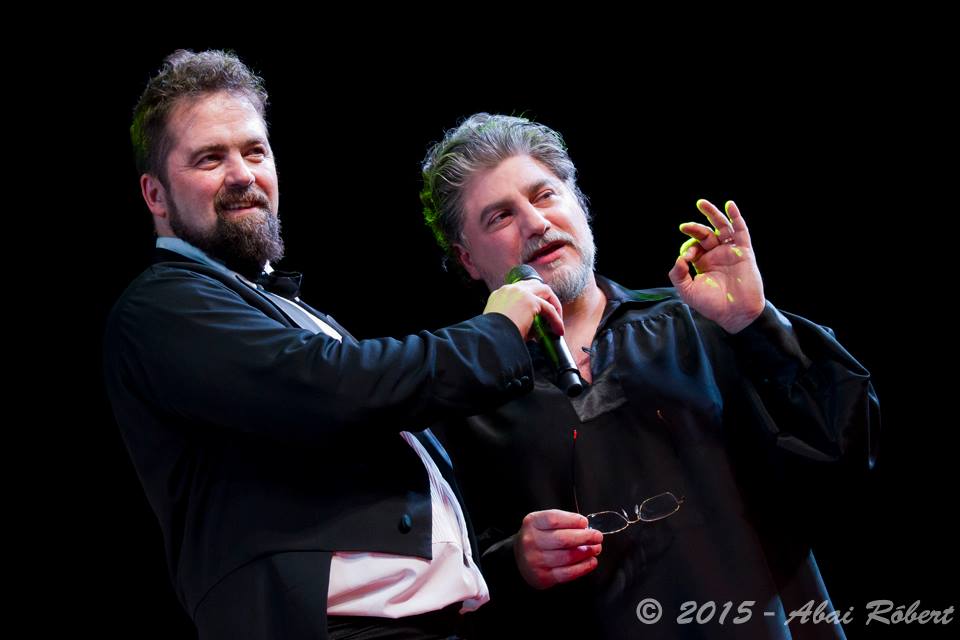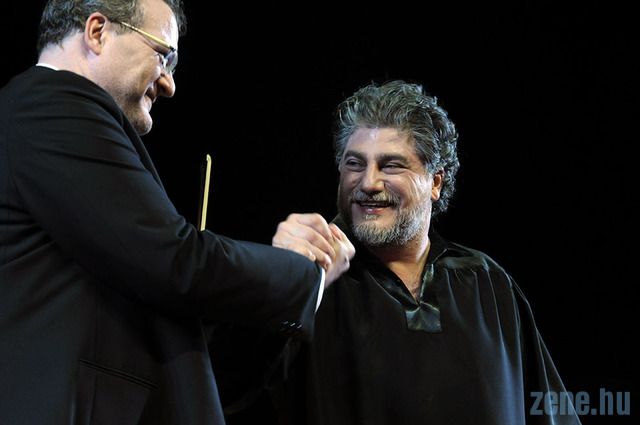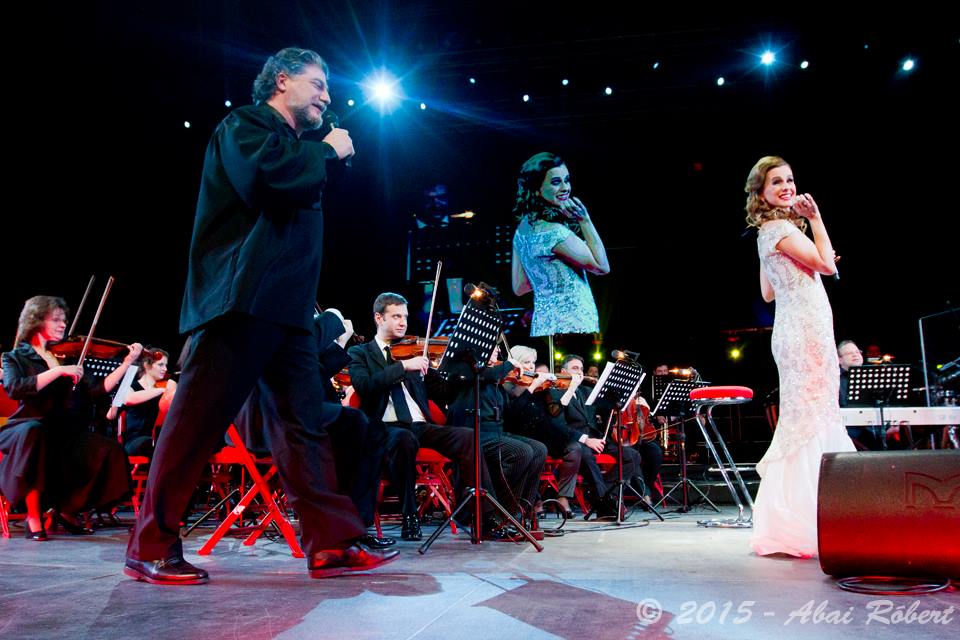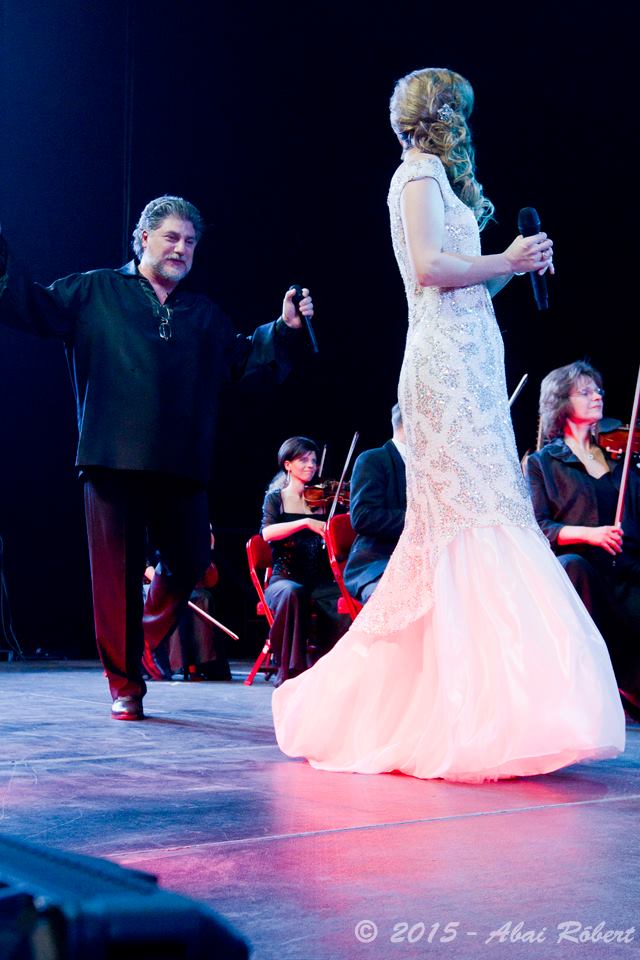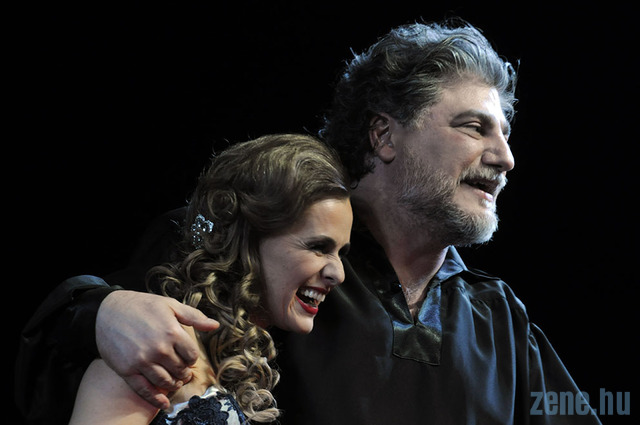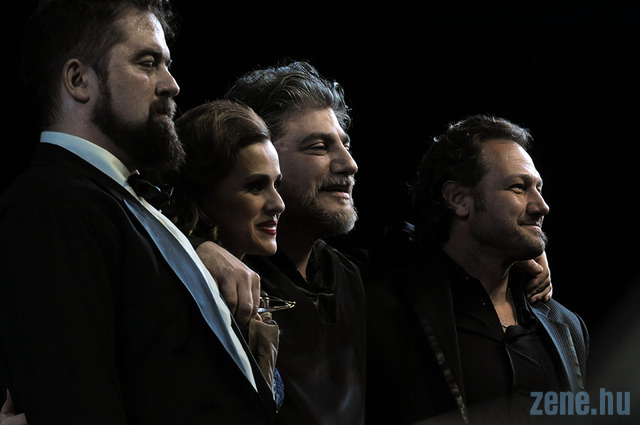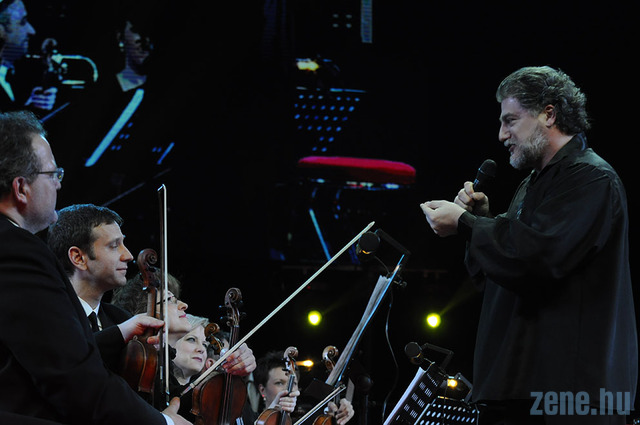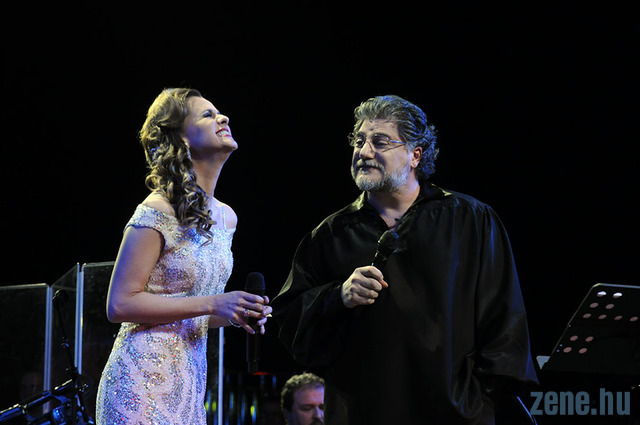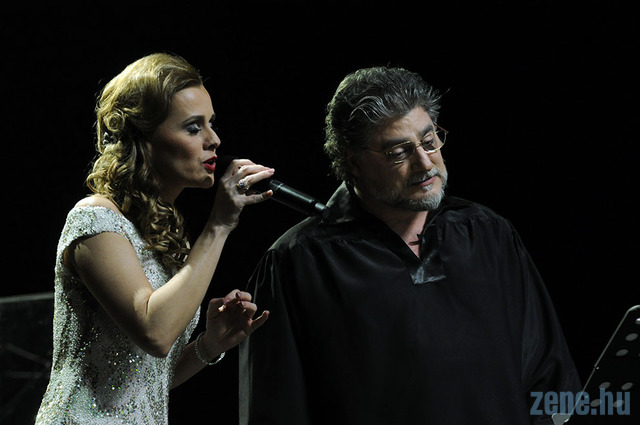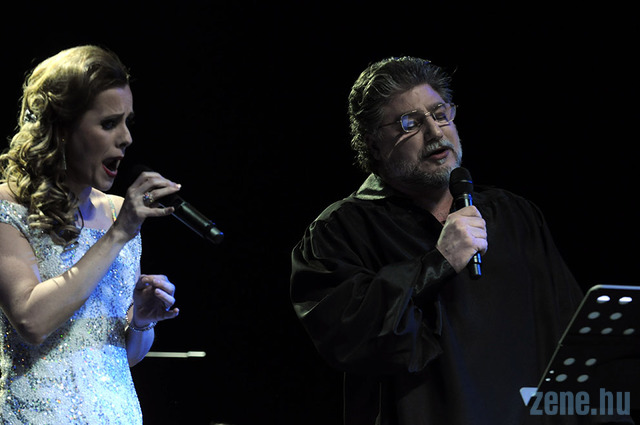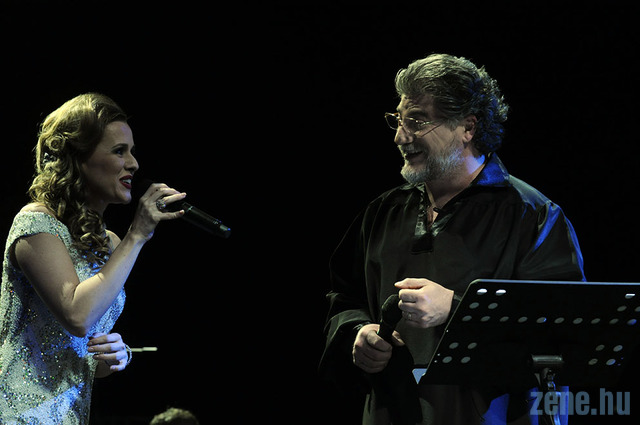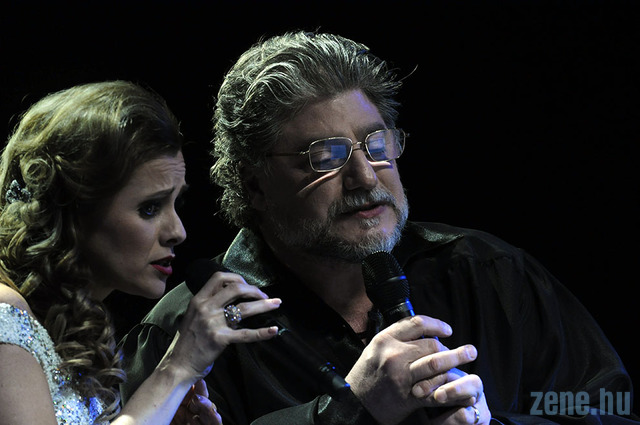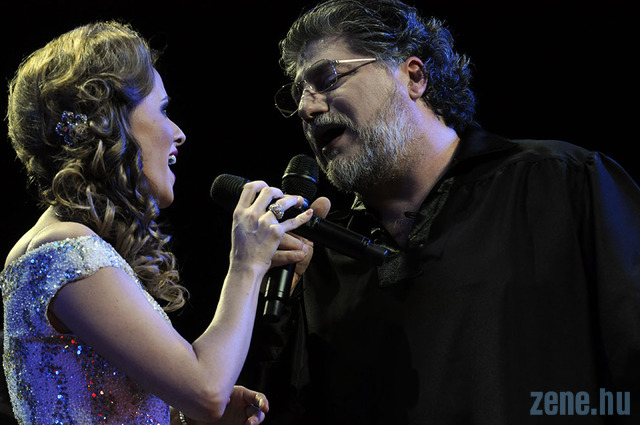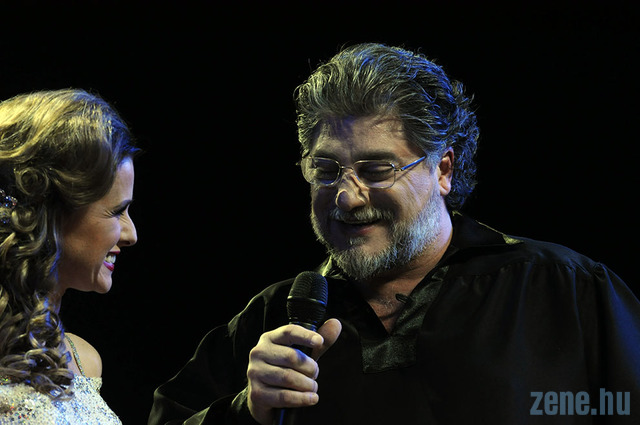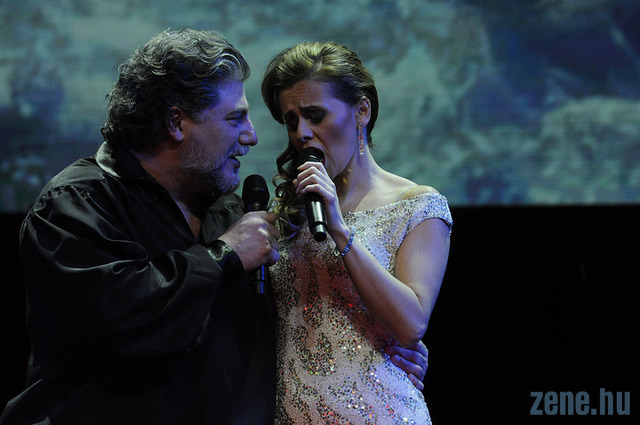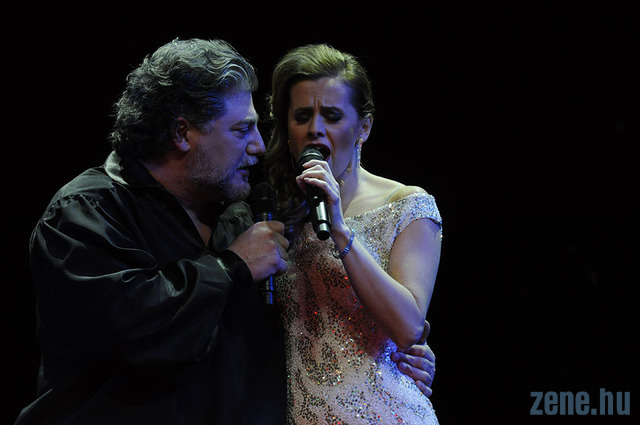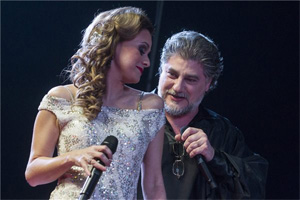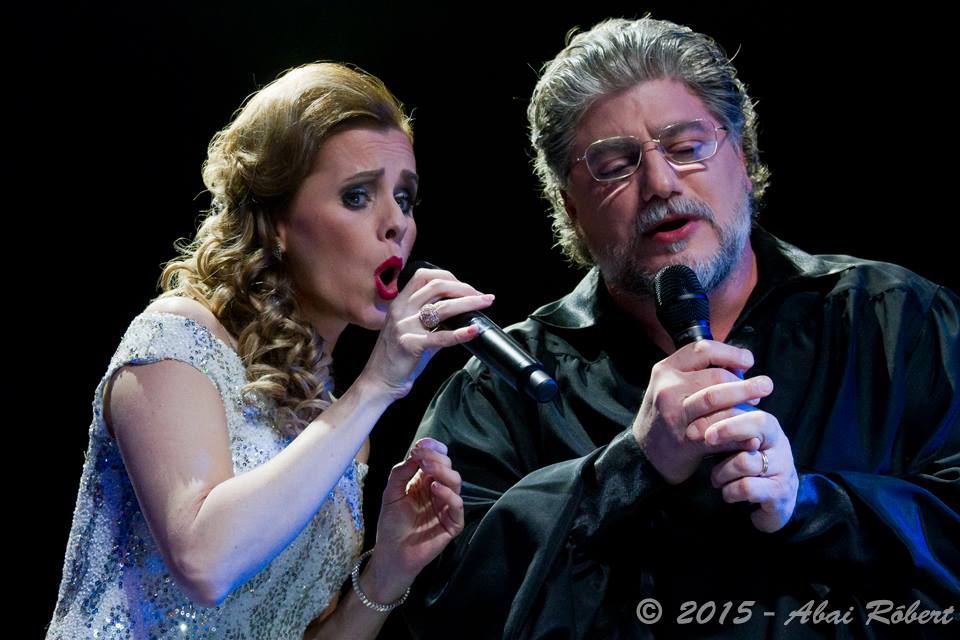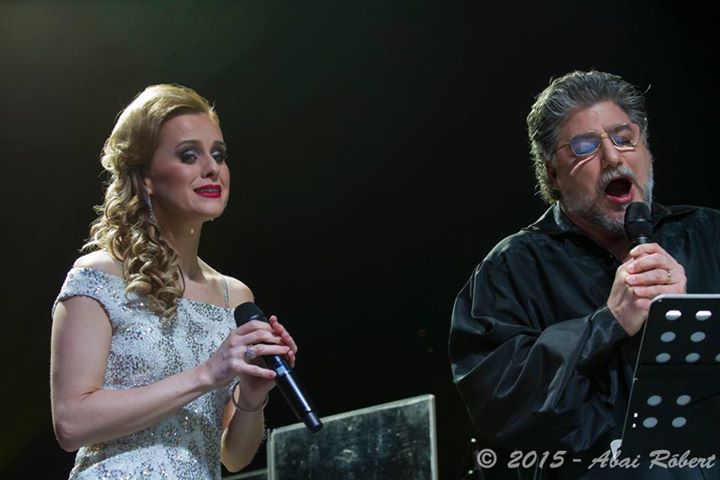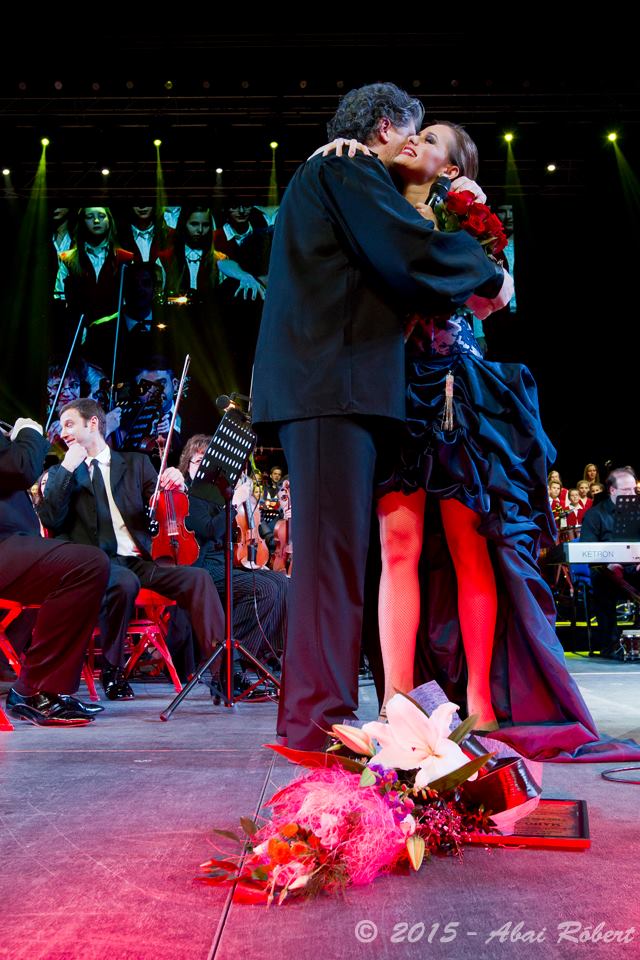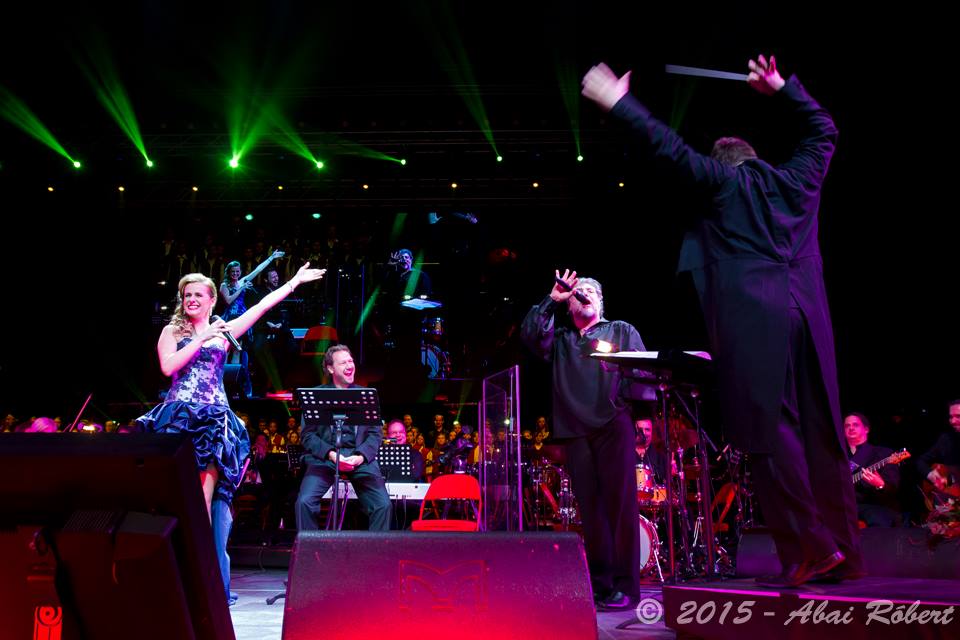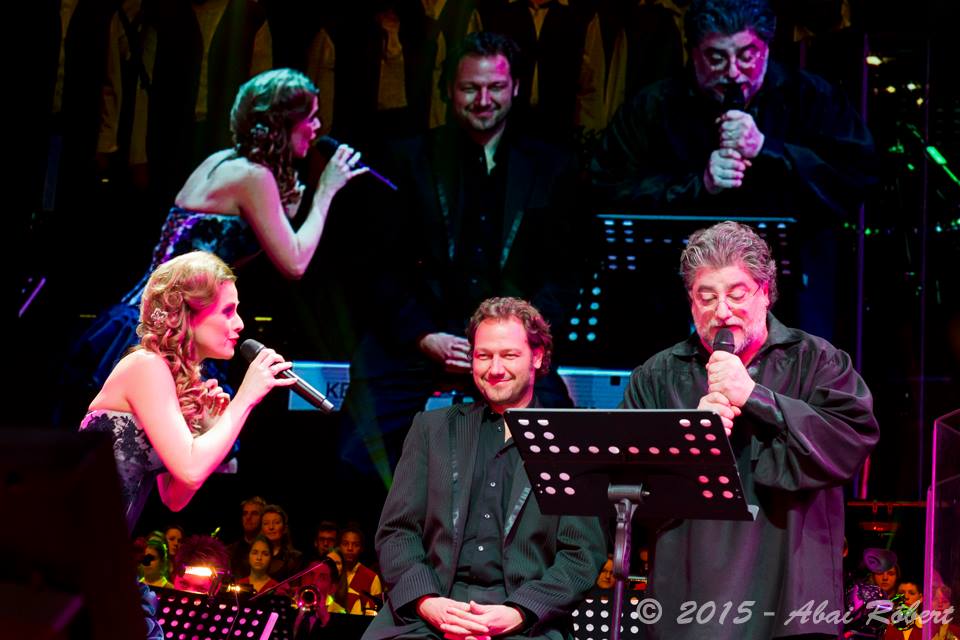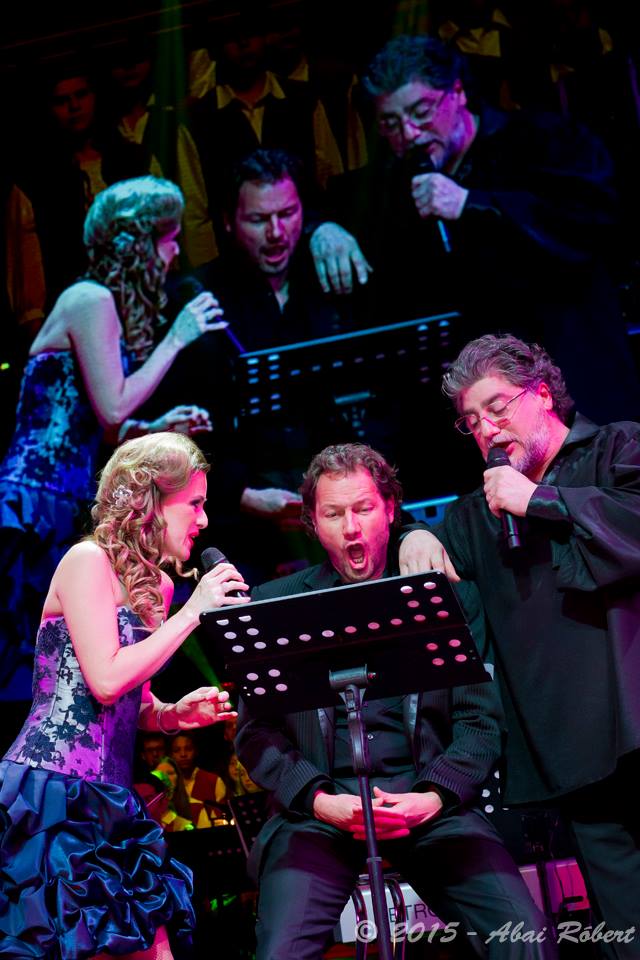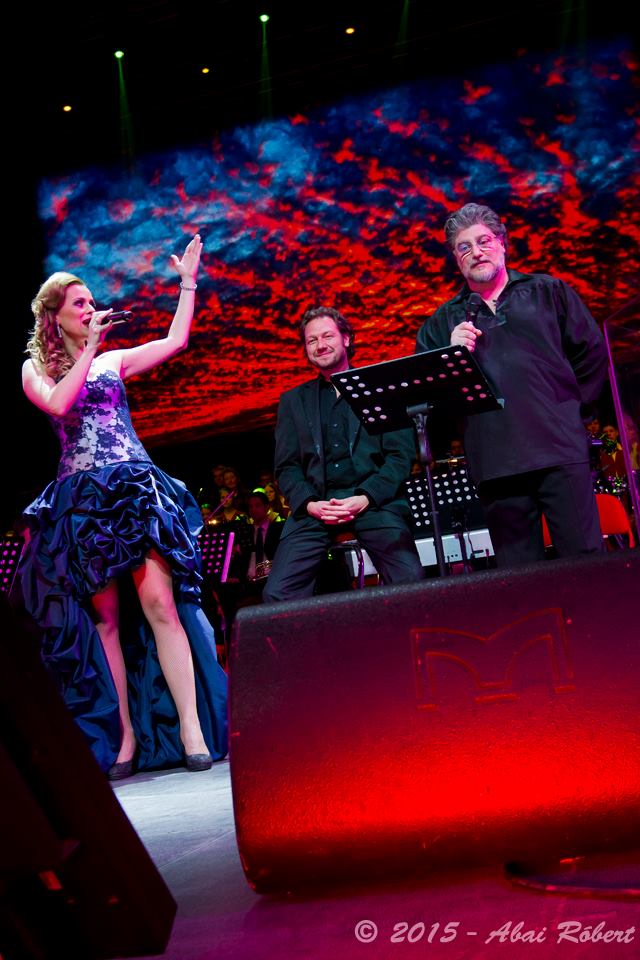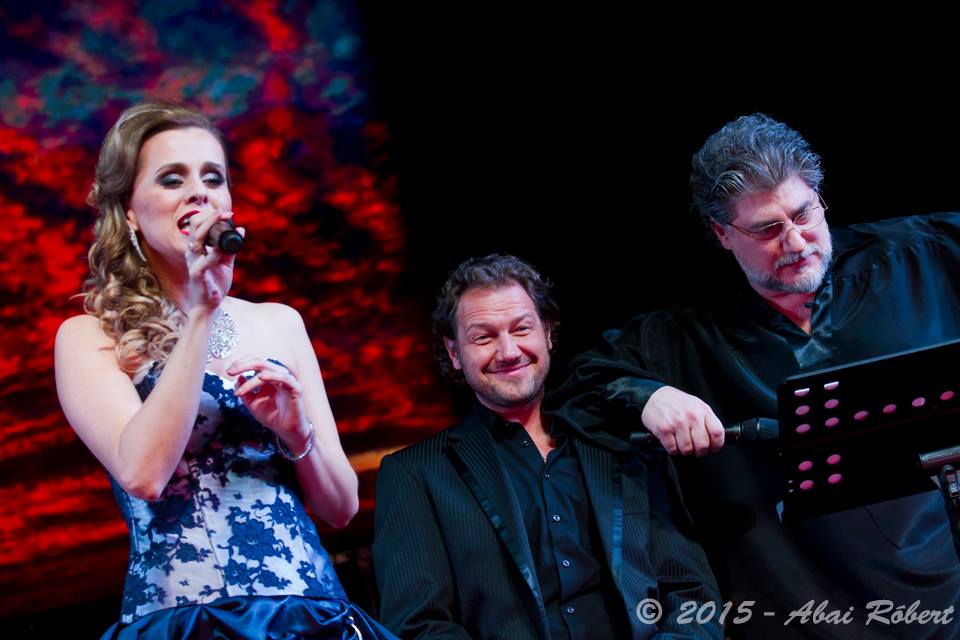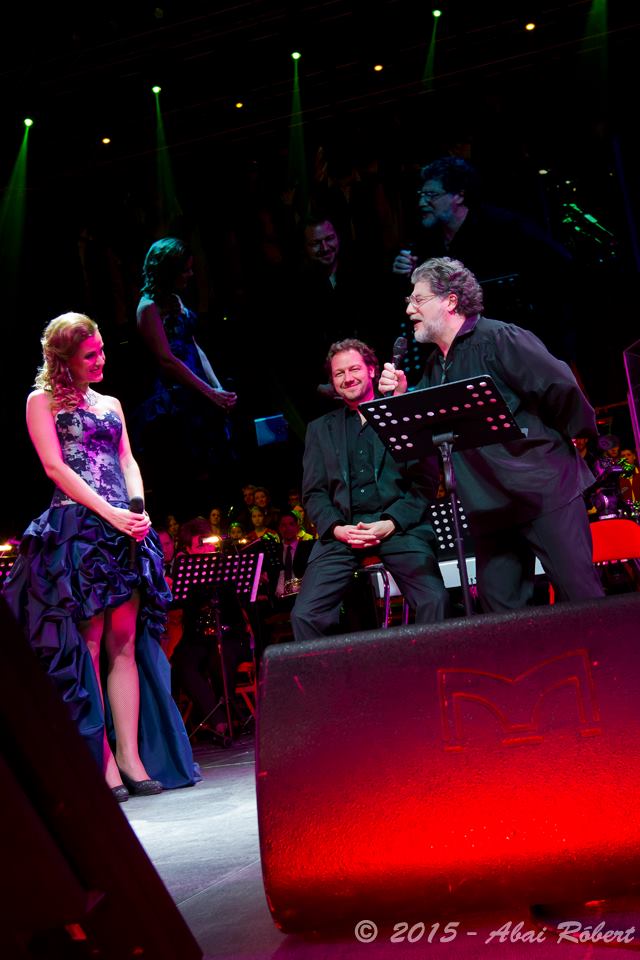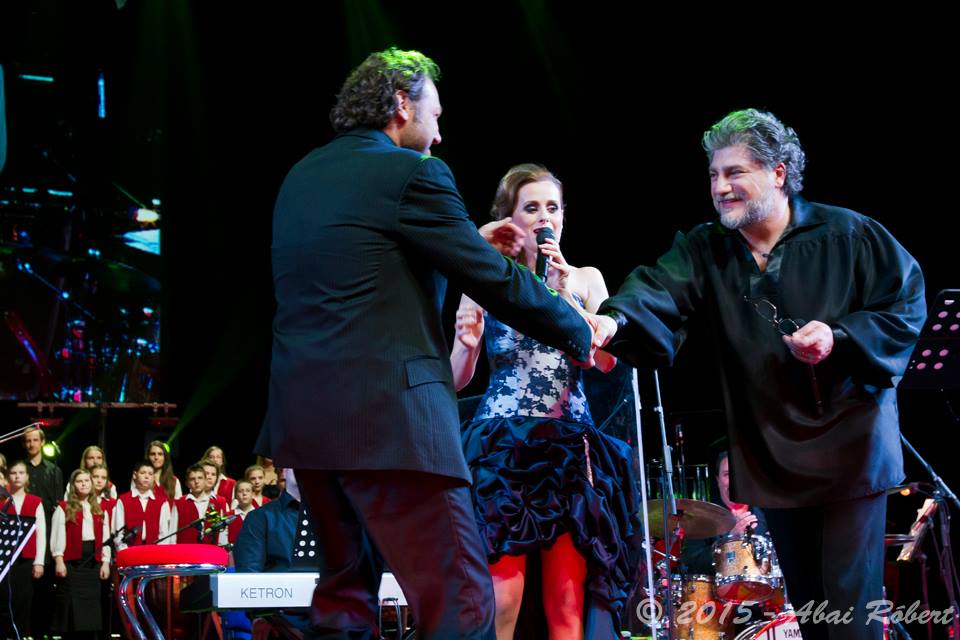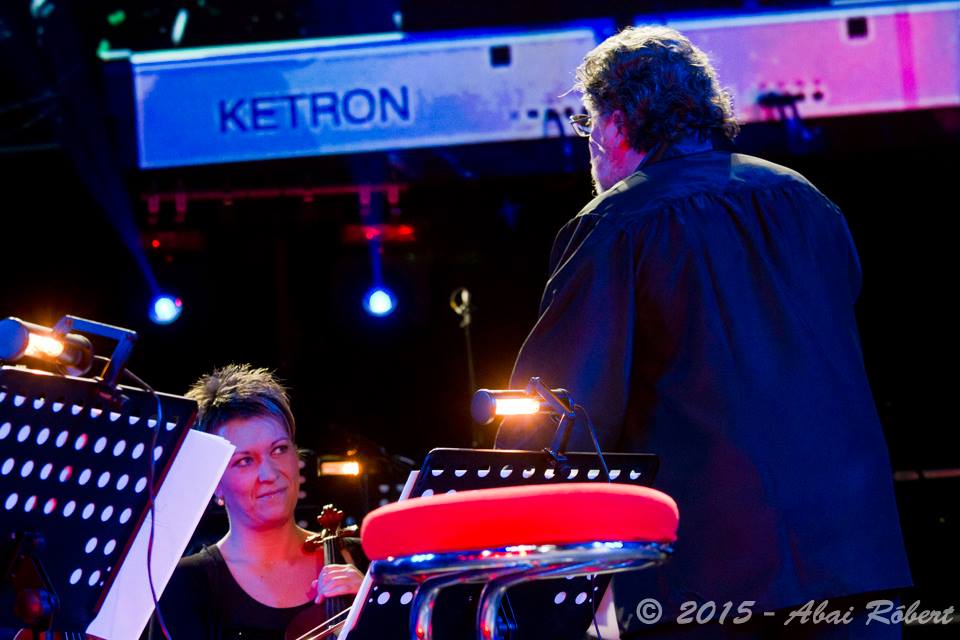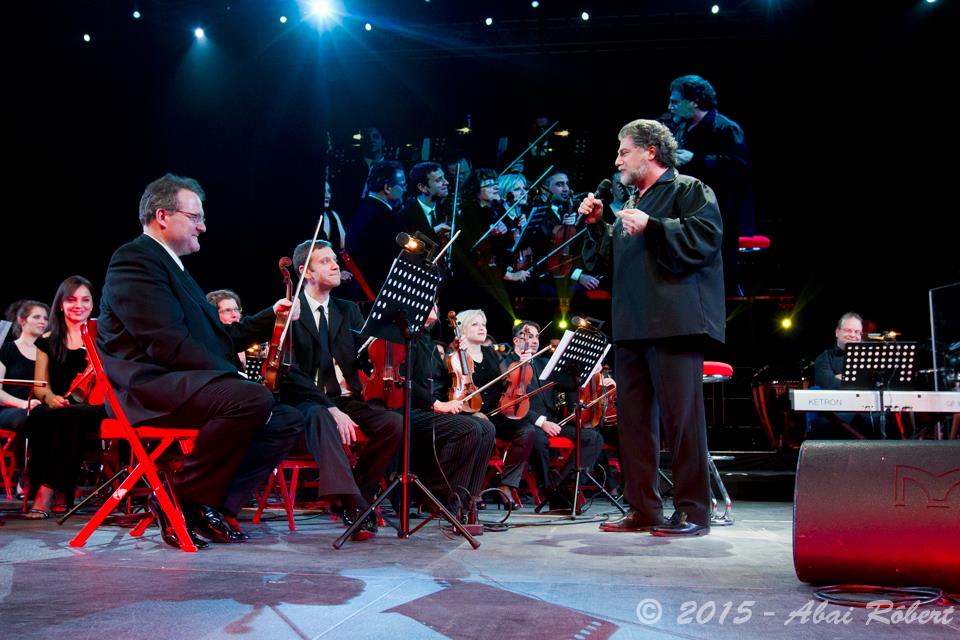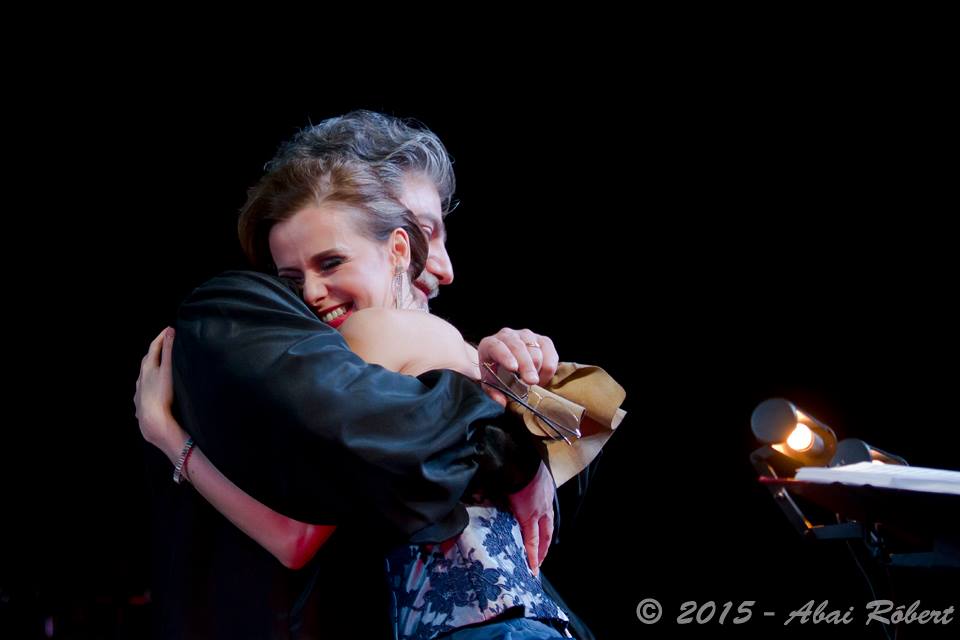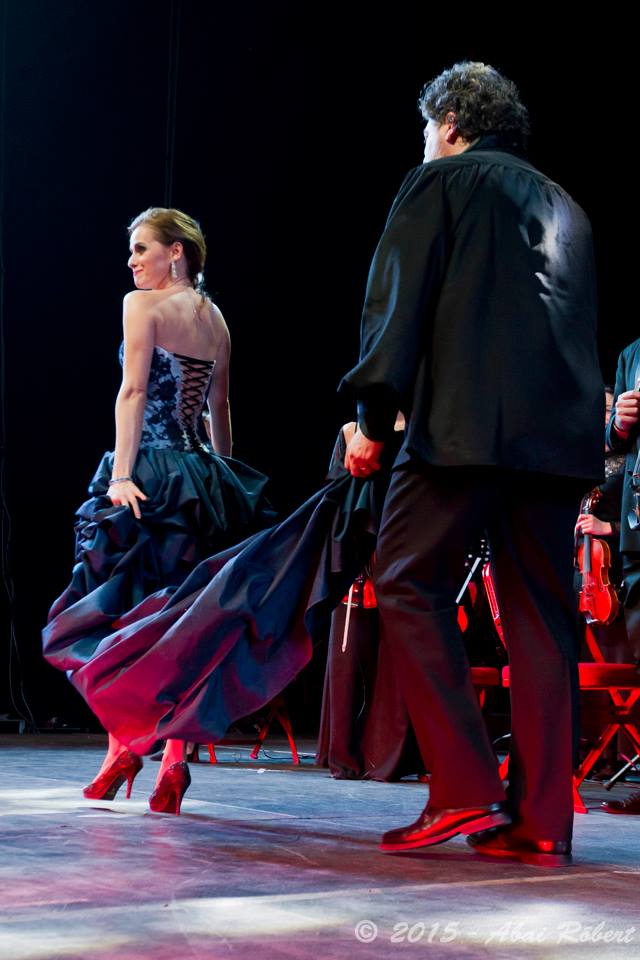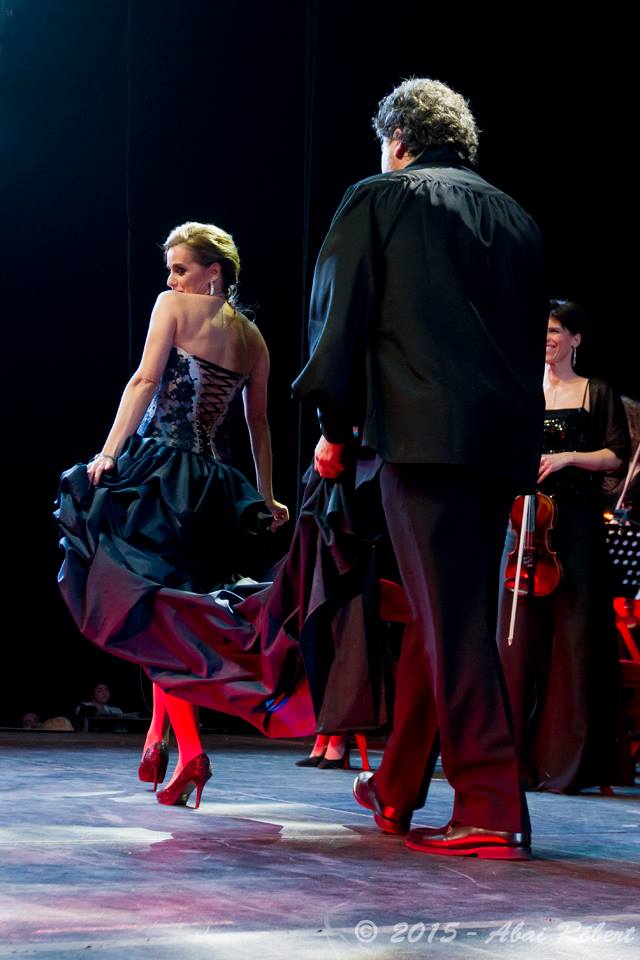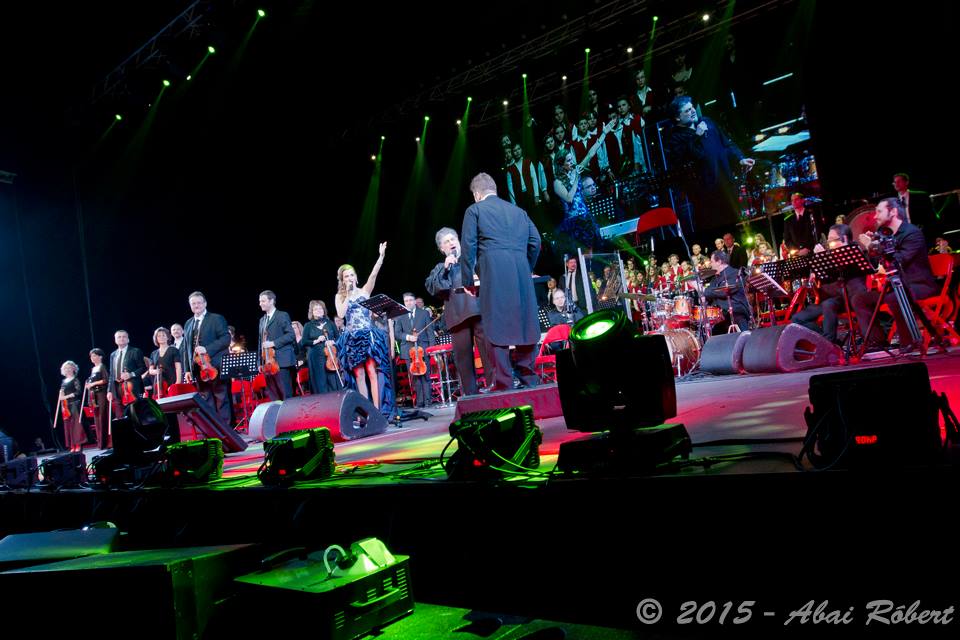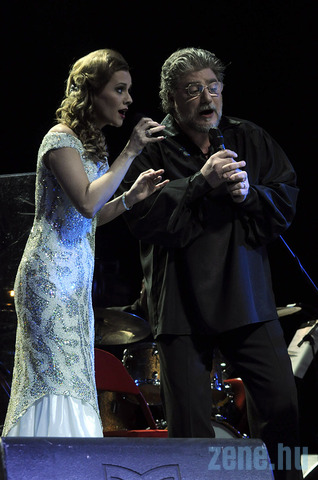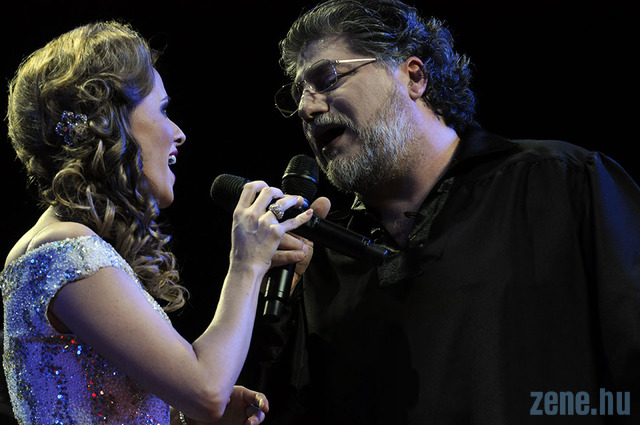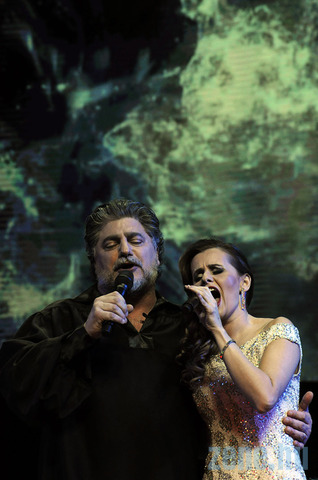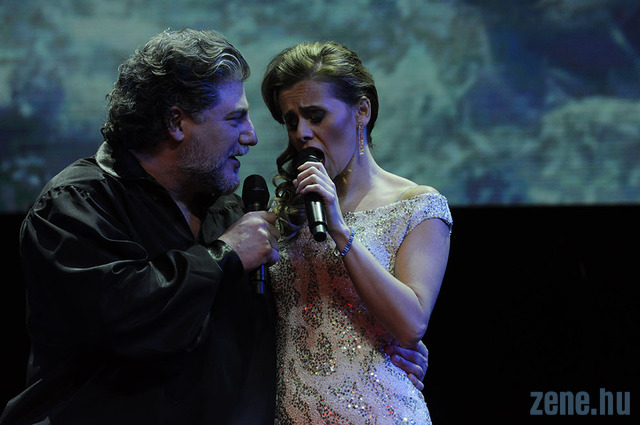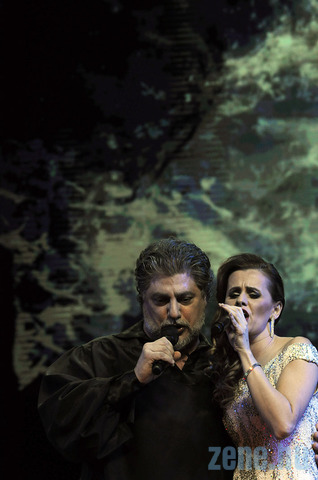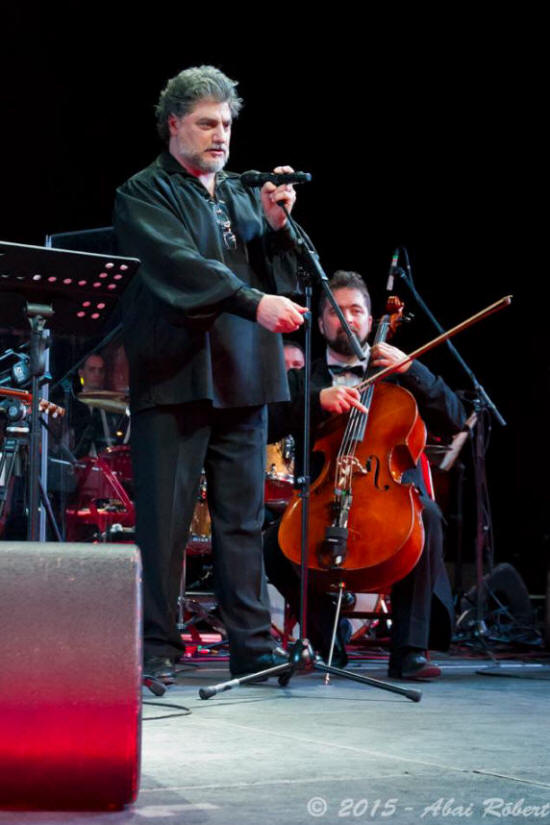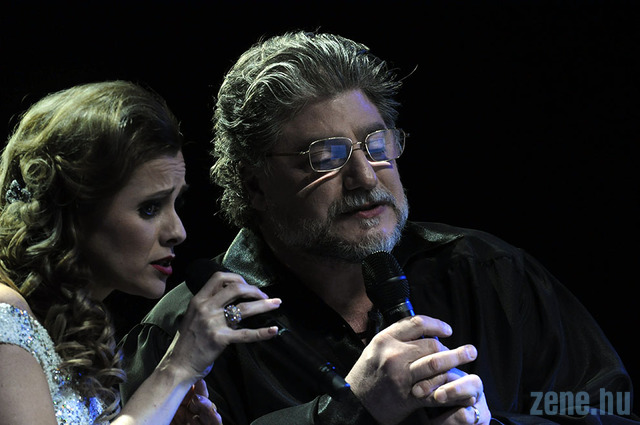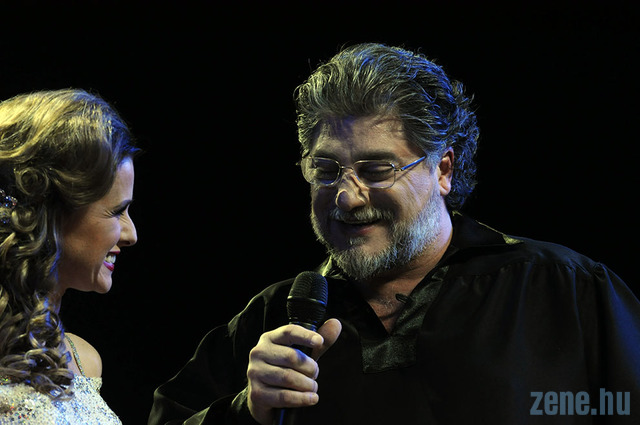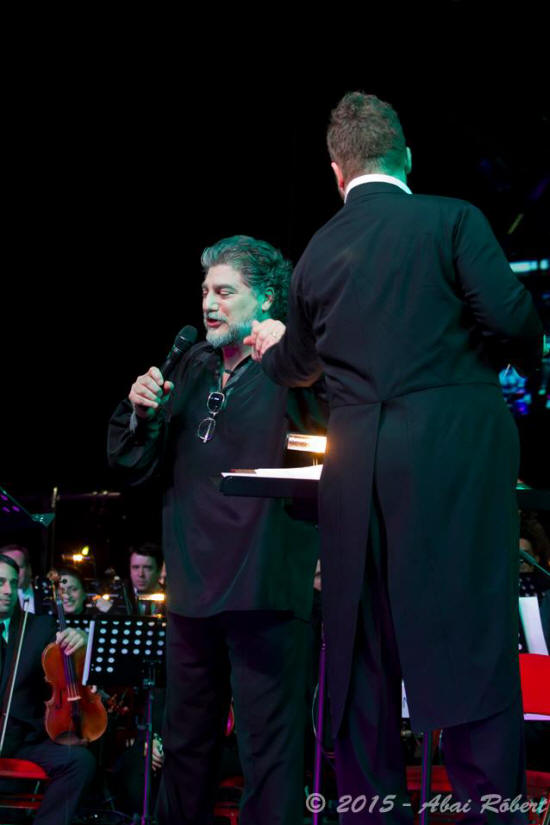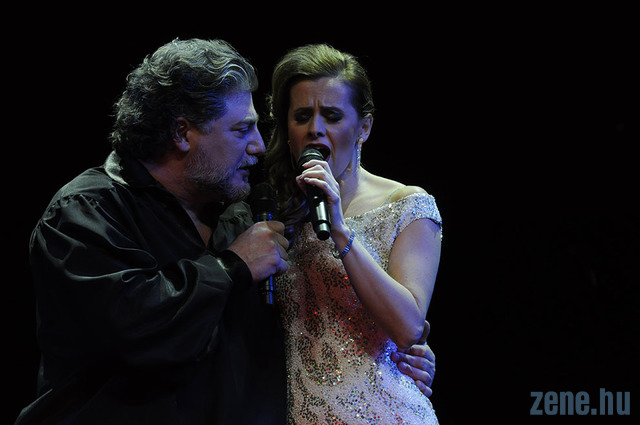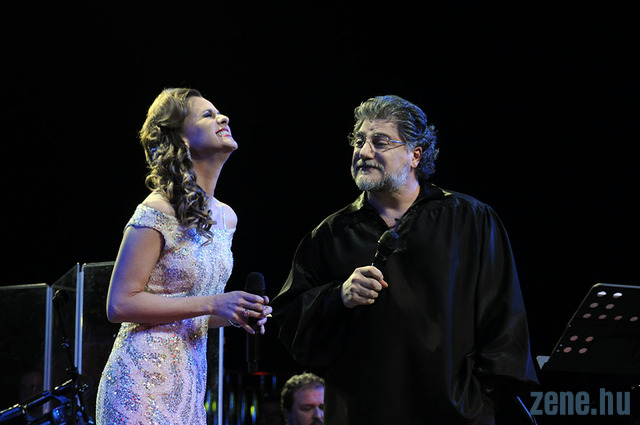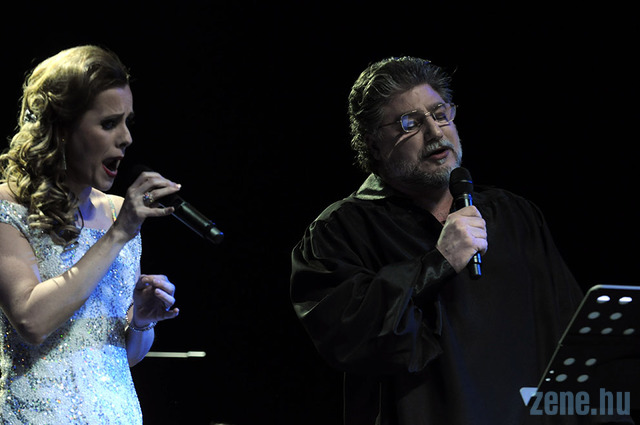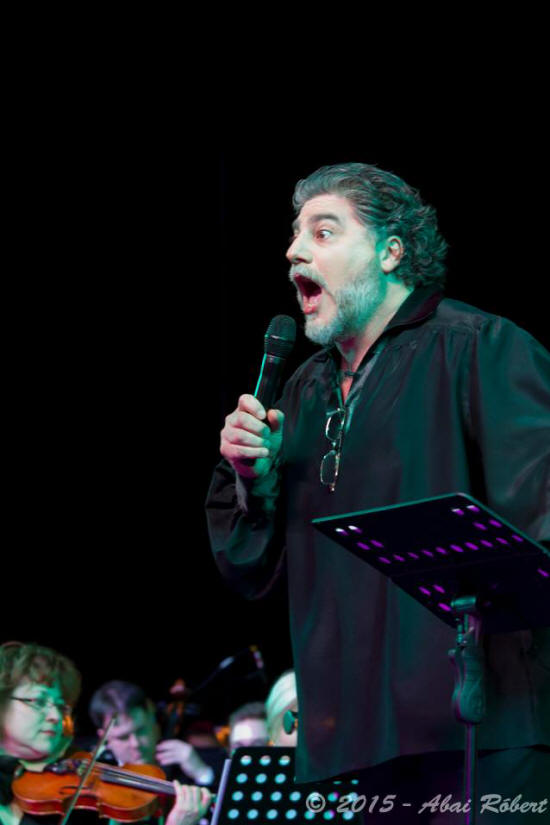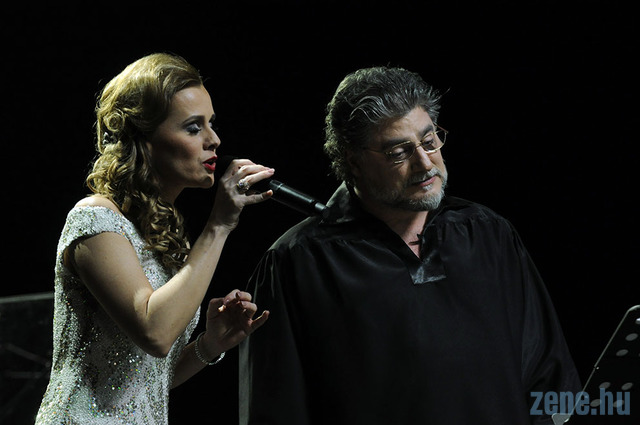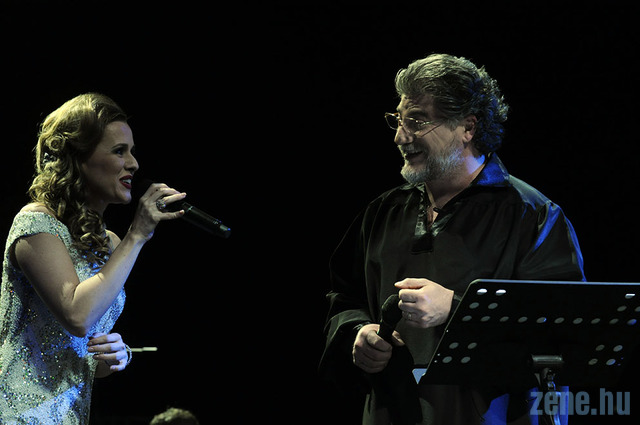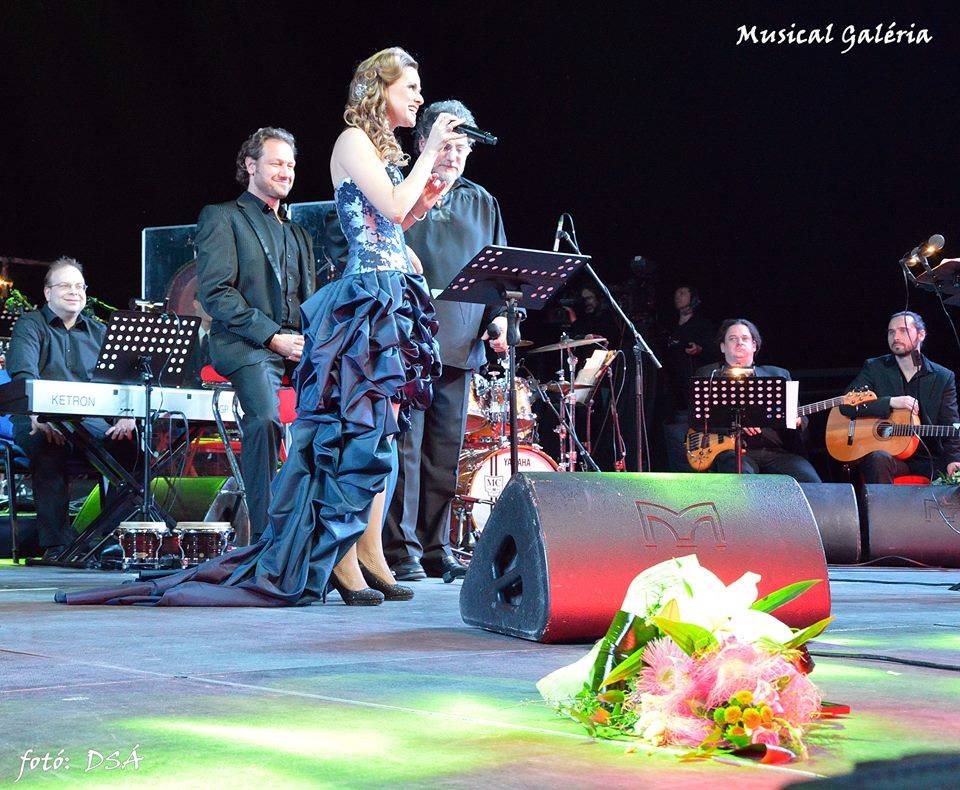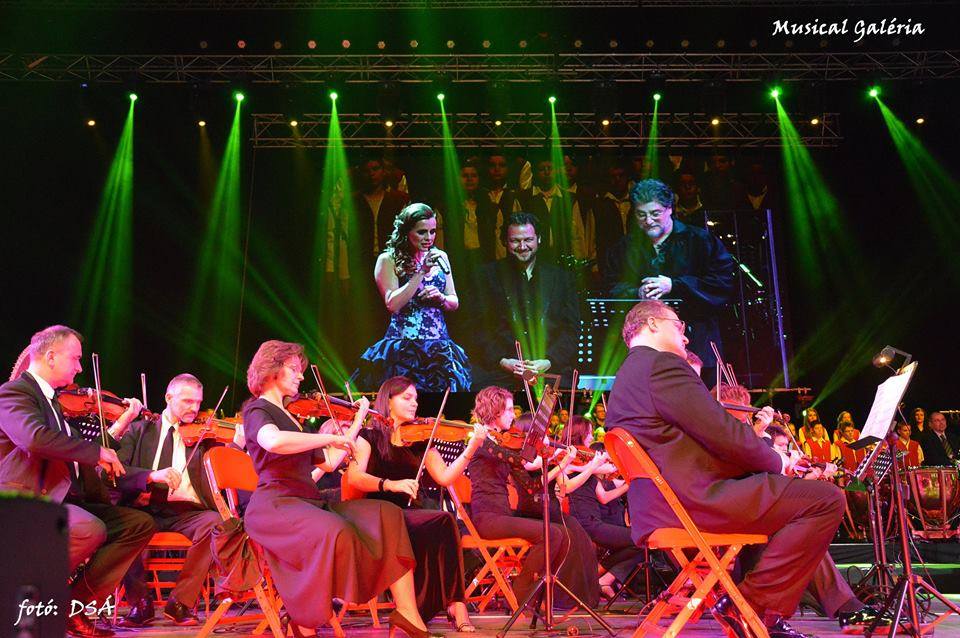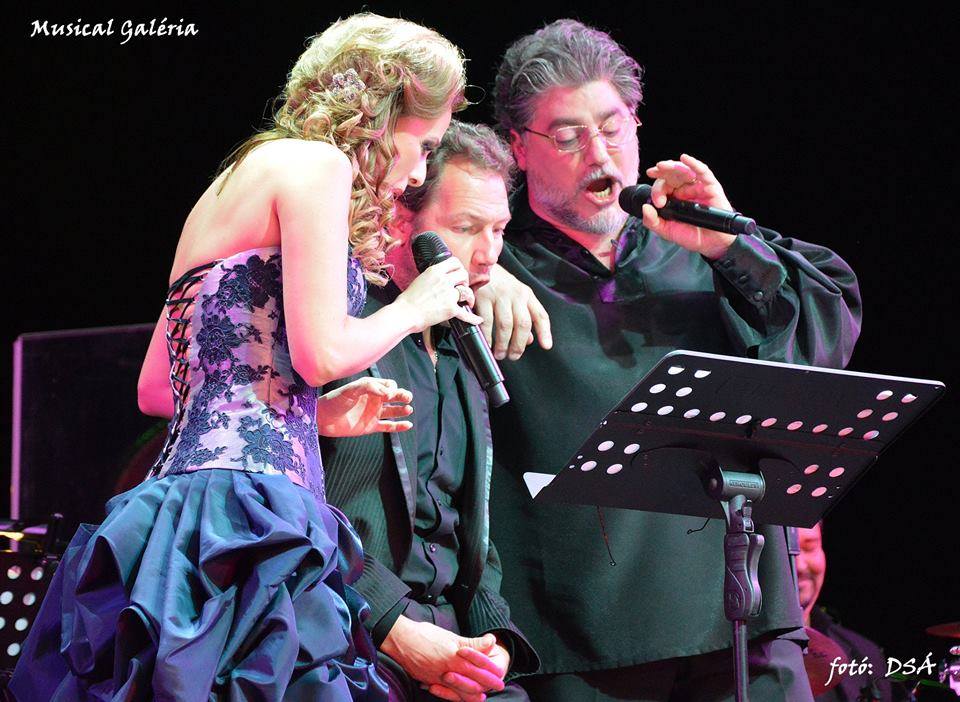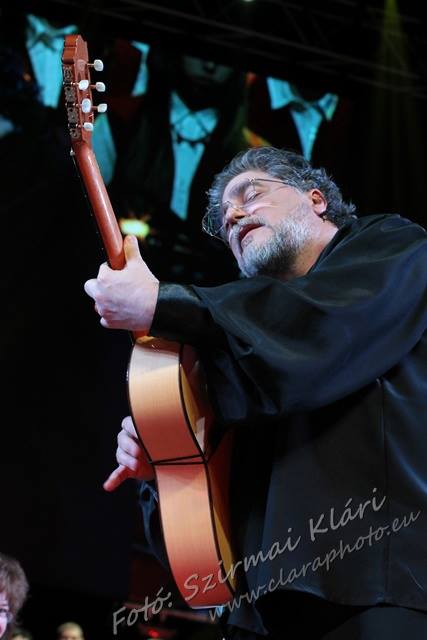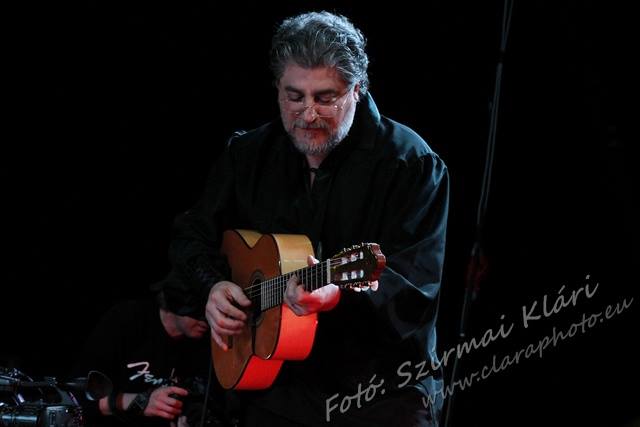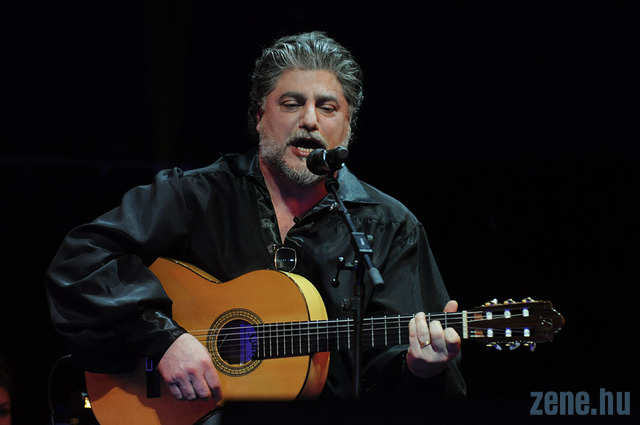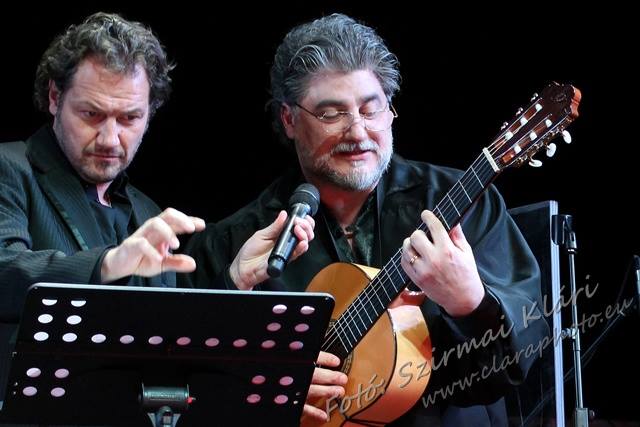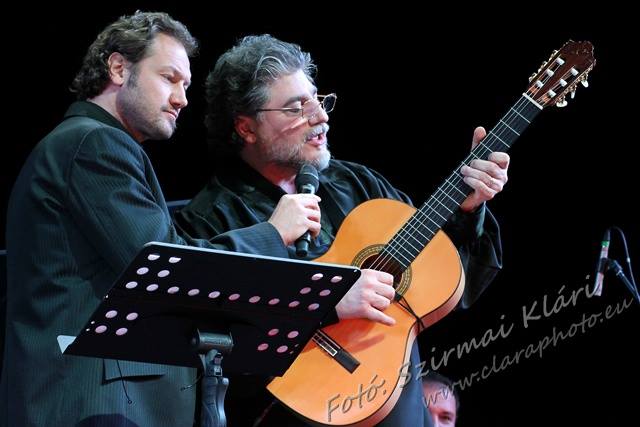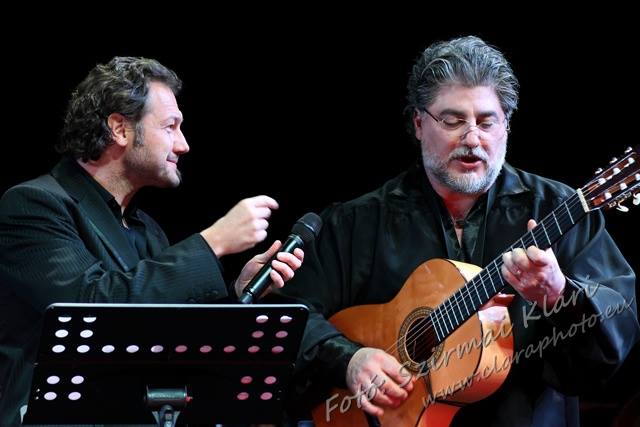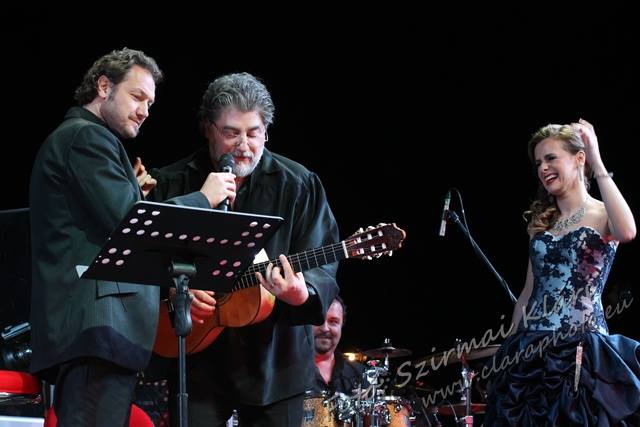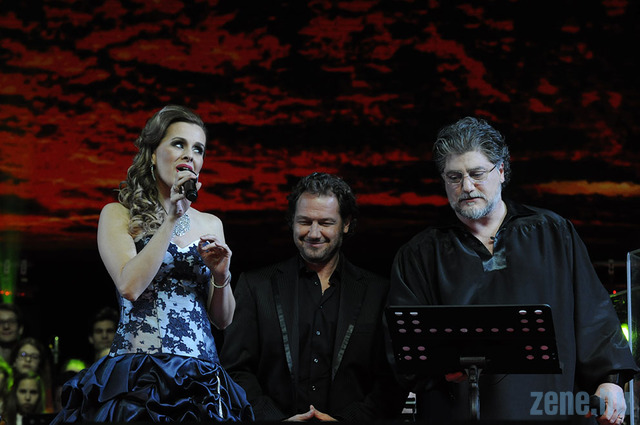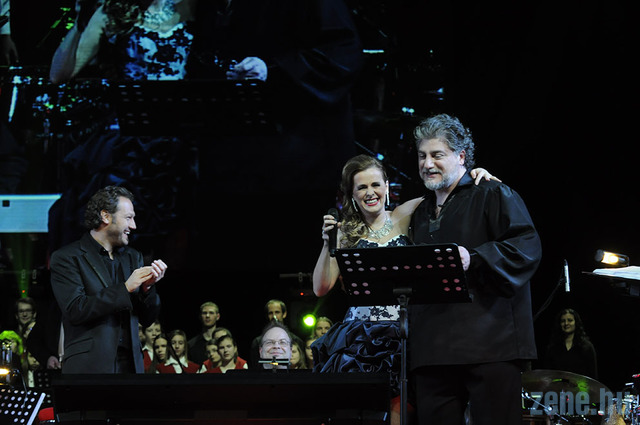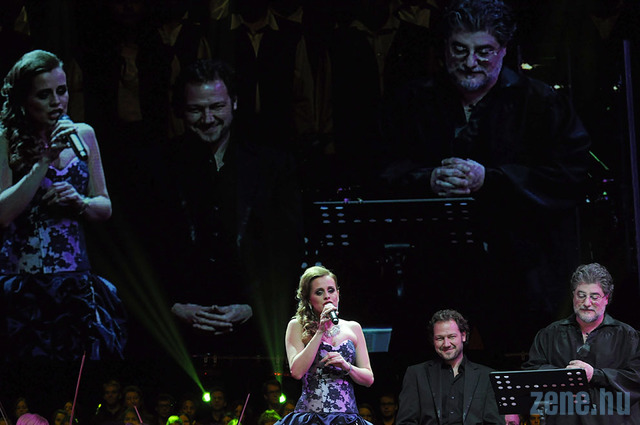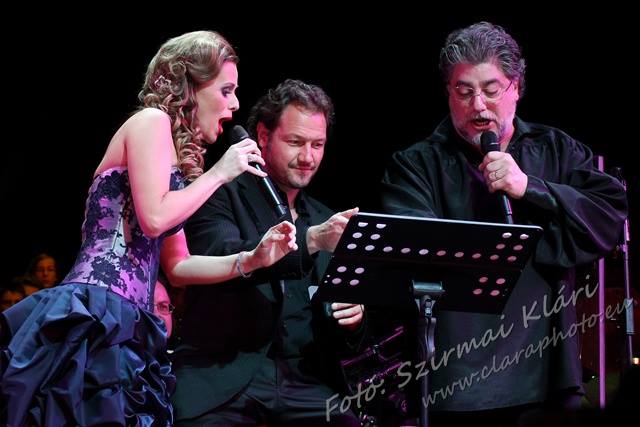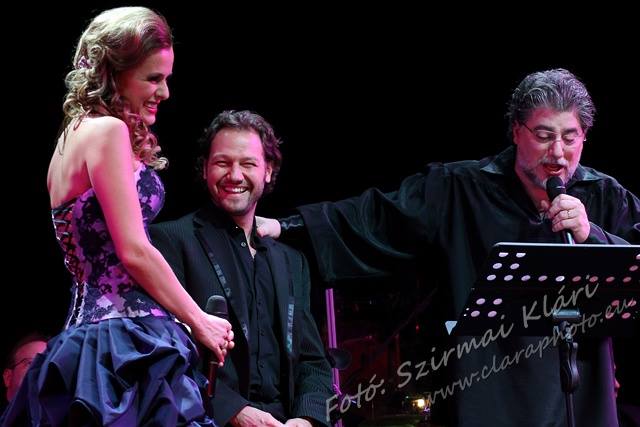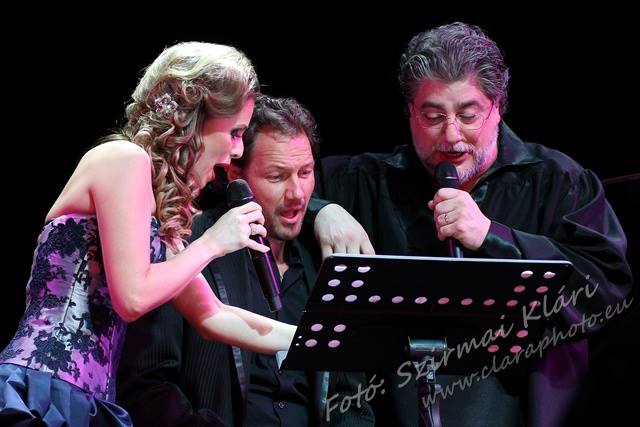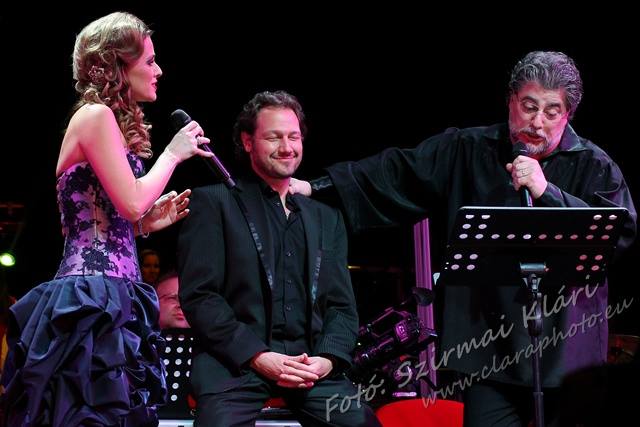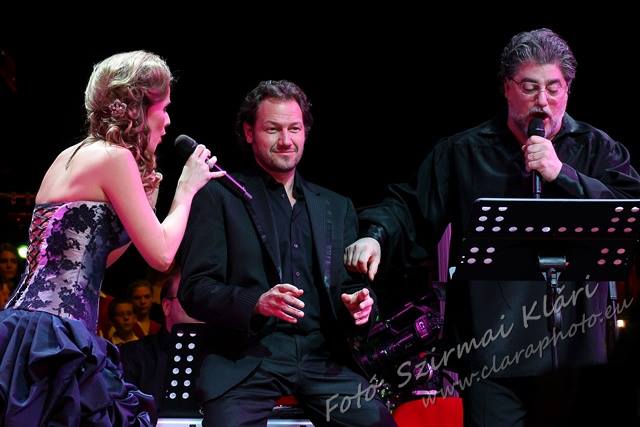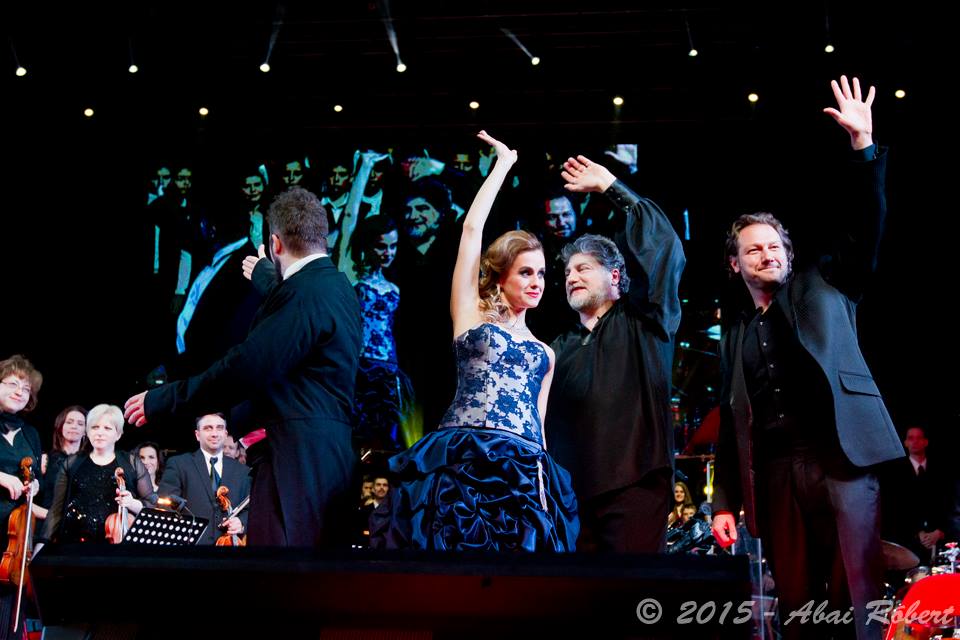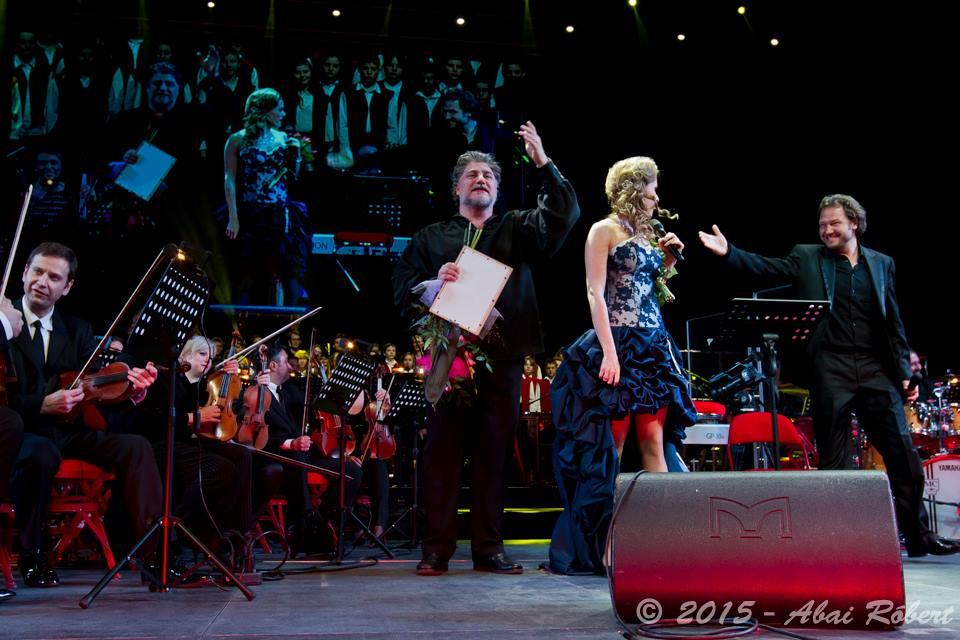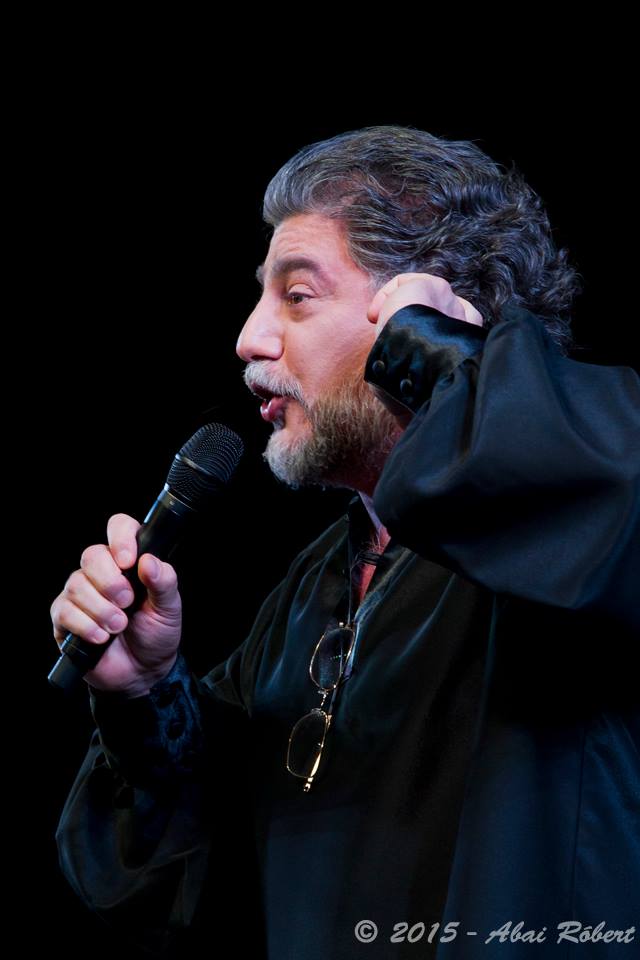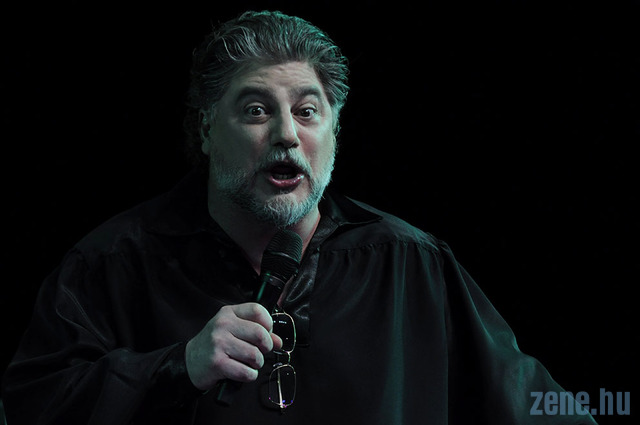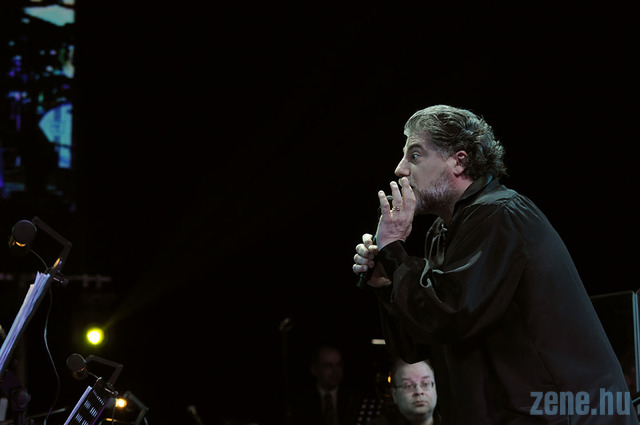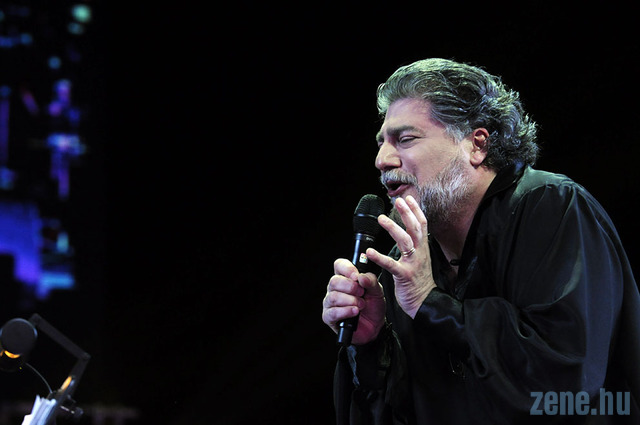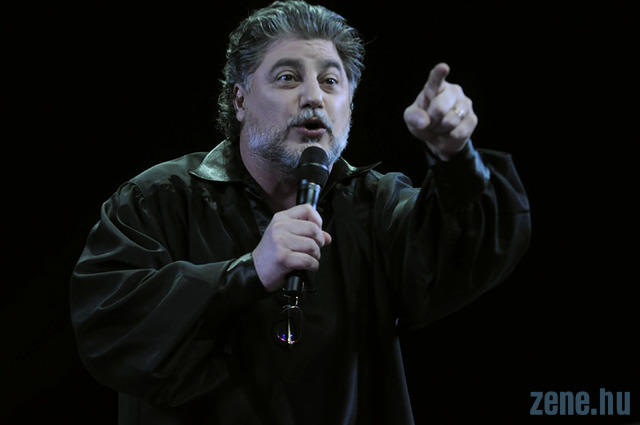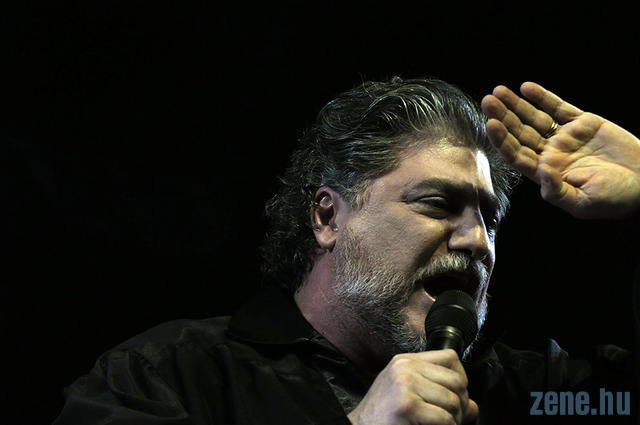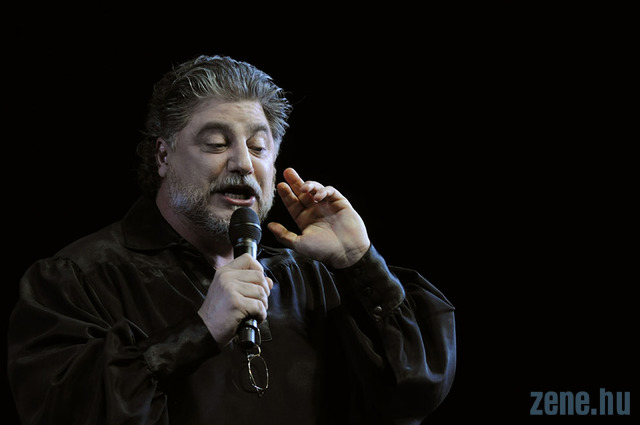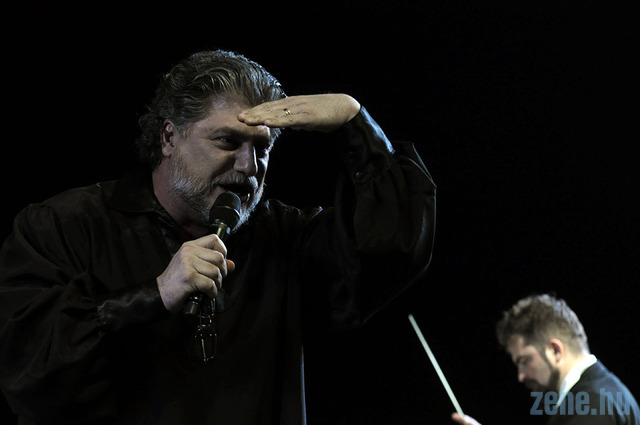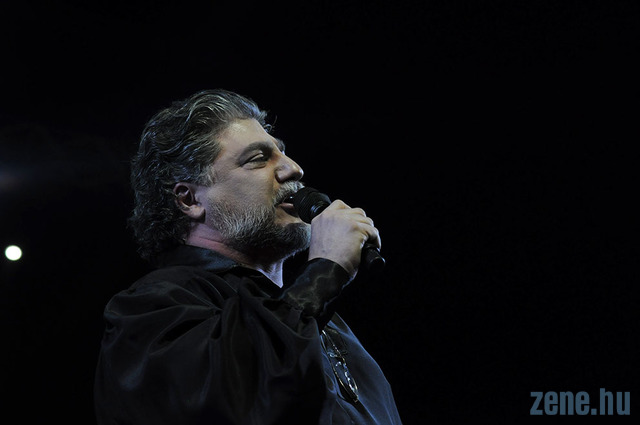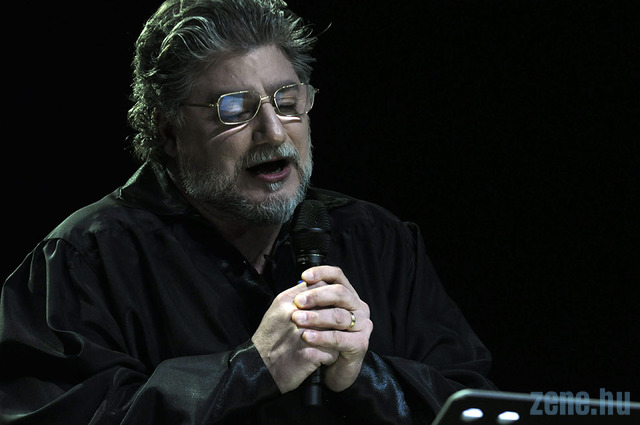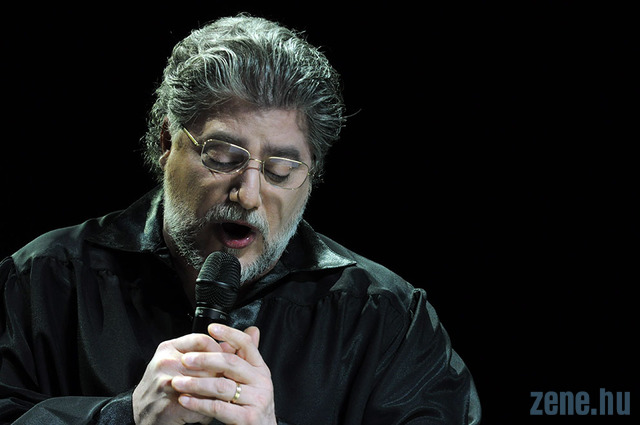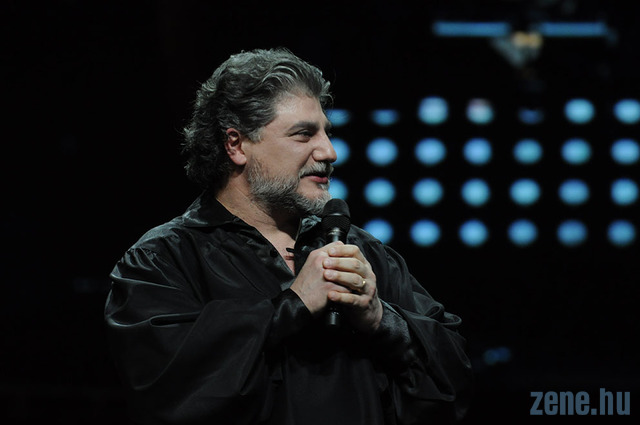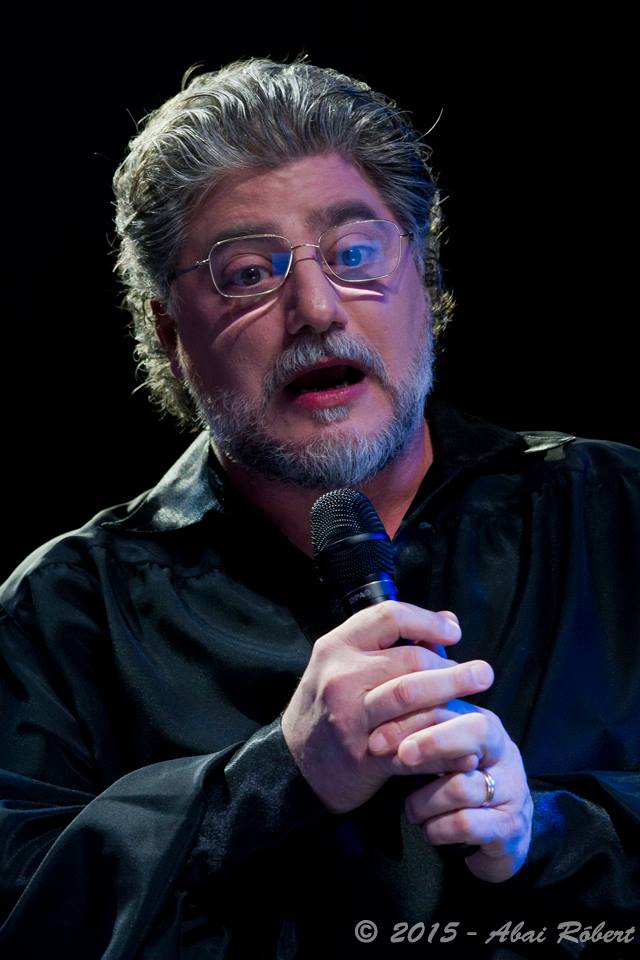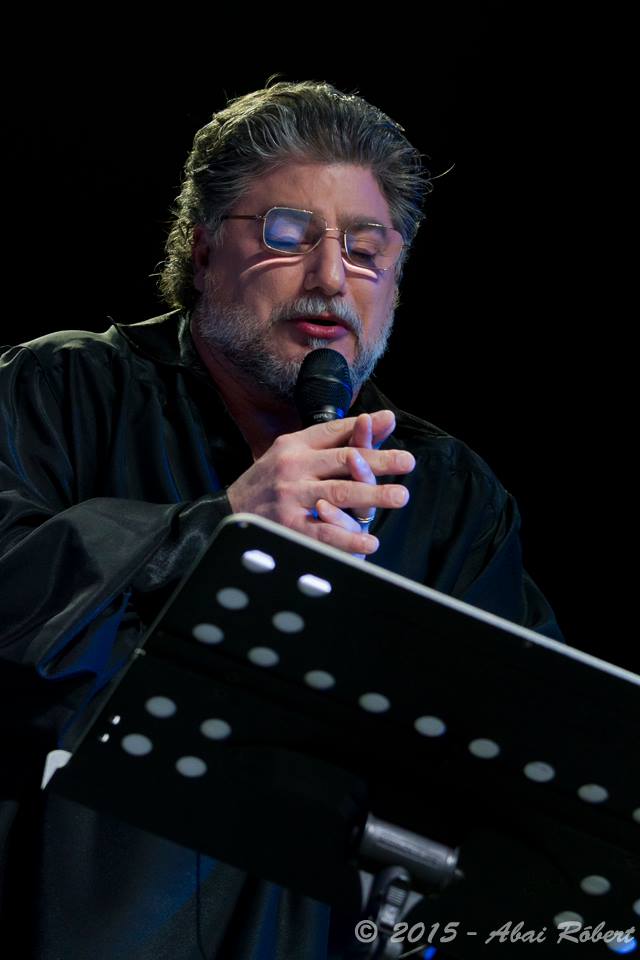-
How did
come the idea to sing
together?
– we
asked Andrea
Mahó.
-
It was my old, youthful dream. I really like his work. Lots of people
should see what he did with opera. I arrive from another genre, the world of
operetta and musicals, but I really like the style of classical singing and
classical music. My manager knew about my dream. He mentioned it somewhere
where they said: what if my dream would be realized? Then they made contacted with his management and it was easy to
get to the point where the idea
was accepted. Of course, he saw my autobiography and he got materials about me.
I thought that we would do a crossover concert, which would take the
classical, pop and musical genres to each other. It was a common
understanding of what should be in the program. Everyone brings those songs
that are close to his/her heart. There will be duets, well-known worldwide
hits. These cases show us that the music is unified. The program contains a
lot of new songs that I did not sing previously. One thing is important,
that the audiences enjoy themselves. Our duets will be international hits,
pop music, musicals, the mixing of styles with the accompaniment of a
symphonic orchestra.
-
Did you hear
Andrea
singing
before?
- we asked
José Cura.
-
No.
My first question
was,
when I heard
about this,
who was this
young girl.
I live
in Spain,
and of course I
do not know the
Hungarian
singers.
And I did not even know
what
“crossover” meant, I did not know this term.
For me,
there are
good music
and bad
music.
If something is
good, it doesn’t
matter if it is pop, rock
or opera.
I also know bad
opera.
Because something is
classical,
it is not necessarily
good.
-
What kind of
music do you
listen to?
-
When
I'm not working,
I do not listen
to music.
I hate that
when I go
to a restaurant
or a shop,
or I get in
the elevator
of the hotel,
there is background
music everywhere. There is
no silence anywhere. If I
listen to music sometimes, then it is Bach.
-
Let's talk
about your life,
your career.
What kind of
kid you were?
-
Uh-oh,
it was already almost
half a century
ago.
My mom says I was a
very temperamental
child, a
leading
personality,
but I do not
dare to confirm this,
because every
mother
thinks that
her child
is special.
-
When did you
start
to deal with music,
and
did you want to do this, or
was it
required?
-
I started
playing the piano
when I was
seven years old,
but a few
months later,
my teacher
said that
he did not see in me
the interest in
music, and
it would be better to find
another
hobby for me
-
How old
you were when it turned out that
your voice is much better than the
average?
- Then
I was
twenty-one.
-
Do you
remember
your
debut?
-
As a
professional
singer I got a small role
in
1984, but as a musician
and as a conductor
I already performed in
an outdoor
concert
in my city in 1978
-
If you were
not a musician,
what will you
deal with
today?
-
I have no
idea.
In other hand,
I am sure that
somehow I
definitely would be a
happy man. I'm an
optimistic
fighter.
-
How much do
you need to practice
in order
to stay
at the forefront?
-
The most
as is essential,
but as little as possible
... I mean
that too much
exercise
is just as
bad as doing
too little.
The preparation is necessary not
only physically,
but also
mentally.
And these
are equally important
-
What
would be your advice
to the
younger generation?
-
"Be
yourself. Everyone else is
already taken, " as Oscar
Wilde said.
-
The one who
sits in the audience
says that he/her has fun.
After all these years,
what does it
mean for you to stand
on the stage
or on
the concert podium?
Is it fun, work,
or a way of life
-
My work is
not my life.
My life is
my family
and my friends.
But I will say
I'm a lucky guy
who earns a living
by what he likes
-
The practice
on
the opera
stage is that they sing Puccini in
Italian,
Wagner in German,
Rimsky-Korsakov's in
Russian and
Bartók
in Hungarian.
Is it easy to
do?
-
It is
difficult,
but it is
not impossible.
I do not take
roles in languages I do not speak
fluently
and can only
repeat
the words
like a
parrot.
I speak
four languages,
so in that sense
I'm lucky,
otherwise my repertoire
would be very narrow. Consistently I sing such
operas,
which was written
in these
languages.
-
Your home,
family and
private
life are in
one scale, and
the tours,
the foreign
cities
and hotels are in the other scale.
How do you keep
this balanced
-
My family receives absolute
priority.
The scales
tip in the personal side’s favor.
I’ve never
missed
a family
meeting because of my job.
Maybe that's why
I live
in a happy marriage for
thirty
years and I
have three
wonderful
kids
-
If you're
not
on tour,
what are you
doing?
-
If I am not
travelling,
I am at home.
Although
the work
never stops,
but the home
is home
-
What do you
do
in your spare time?
How much do you detach yourself from music
-
First, you
should
determine
what spare time means. It is inactivity?
A waste
of time? Vacation
or just free work?
Personally, I
try not
to waste
my time
doing nothing.
I've learned
one thing during 52 years:
all unused
minutes
are lost
forever. Looking back,
I'm proud of what I achieved,
and I'm not worrying
so much
about those many
things
that I still would like to achieve
-
What
was your desire
at the starting point of
your
career, what was realized from
it, and
what would
you like to
achieve
in any case?
-
I’ve
never evaluated my life in the point of view of my desire
or achievements. I’ve never
wanted to be
the "number one",
because I think
it's a
stupid
cliché.
Nobody
can be
the first one.
There always will
be someone who is better
for the others. I
always
struggled for being
as good
as I can be. To
hear that
you're not
as good as
someone
else, is just
one aspect, but to
hear that you're not
as good
as what
you can be, it is
really
disappointing
-
If you
have won
ten million dollars in 1994, how would your career
develop?
-
If
you ask me
about 1990, I would say:
I do not know.
But in 1994,
I have already been
struggling
to survive in
the dirty world of
show business. So if I
have been
ten million dollars,
probably I
give up
the struggle.
I could not
have done any
better
-
Your voice is one of the best in the world. I
guess you also know that many young singers look at
you as an idol singer. What is it like for you?
-
Idolatry is a
negative
feeling.
I prefer to call this as
admiration
or rather as a
respect.
If my example is addressed not
only
to an artist, but
also to the
people
who achieved
this success starting from below, this can be a
good model
for young people,
and I would
proud of
this
